2025 International guide
Undergraduate and postgraduate coursework




Undergraduate and postgraduate coursework



Celebrating a proud 150-year history of teaching and research excellence, the University of Adelaide is part of Australia’s prestigious Group of Eight universities.
Our alumni include five Nobel Laureates, 155 Fulbright recipients and 113 Rhodes Scholars.
Today, ranked in the top 1% of universities worldwide, the University of Adelaide is recognised globally for its research excellence and dedicated staff, many of whom are international leaders in their respective fields.
Our world-class degrees are informed by cutting edge research and technology and a teaching and learning environment that encourages critical thinking, problem solving, teamwork and communication.
Focused on preparing students for their careers, the University also provides relevant industry placement and internship opportunities.
We partner with industry to ensure degree programs are closely aligned with the needs of industry and through our broader research mission, we are committed to tackling the grand challenges of our time.
Our extensive network of international partnerships provides a diverse range of opportunities for global mobility and study experiences to broaden perspectives and gain valuable career connections.
We welcome students from more than 100 countries and provide support for their successful transition to learning and living in South Australia.
A degree at the University allows for study at the forefront of discovery, with access to stateof-the-art research facilities, cross-disciplinary programs, and a connection to a globally integrated and culturally diverse community.
Our goal is to give our students the education, encouragement, support, and opportunity to make their own history through valuable contributions to the world and its future.
We look forward to welcoming you to the University of Adelaide.
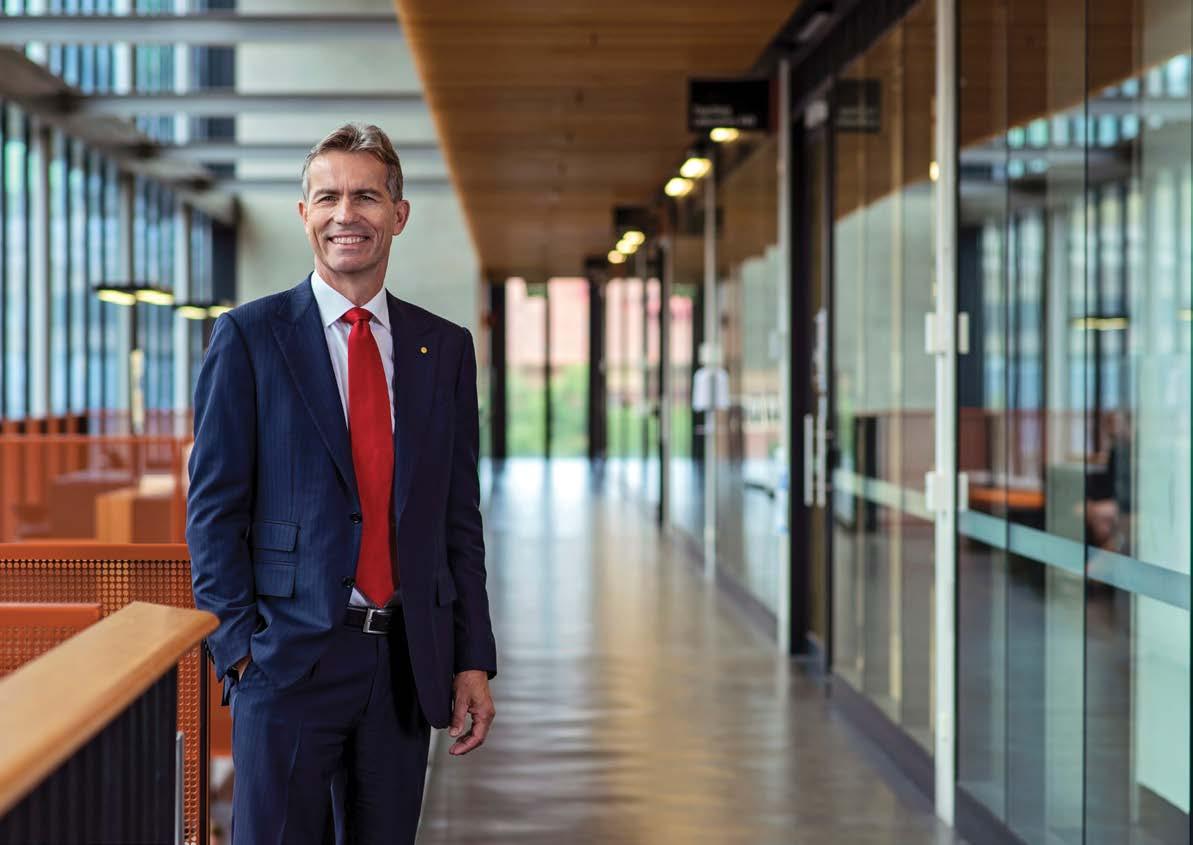
Professor Peter Høj AC Vice-Chancellor and President
At the University of Adelaide, we unite and serve those striving to change the world— and themselves—for the better. This is a place where you can make history.
Established in 1874, we’re home to over 22,700 students and 3,000 staff, all working to create progress. Ours is a university of outstanding quality—ranked among the top-100 in the world*—in the heart of one of Australia’s most liveable cities†.
Relentlessly progressive
Adelaide has always broken new ground. We were Australia’s first university to welcome female students. The first offering science
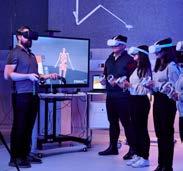

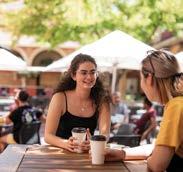
and business degrees. One of the first with a conservatorium of music.
Among those who’ve studied, taught, or conducted research here are Australia’s first: female prime minister; space-walking astronaut; Indigenous Rhodes Scholar; and female Supreme Court judge and state governor. Not to mention five Nobel Prize winners.
Exceptional research and education
As a member of Australia’s prestigious Group of Eight research-intensive universities, we’re rising to global challenges with research universally rated world-standard or above^.
In fact, our output is recognised as ‘well above’ world standard in 41 distinct areas. These range from space sciences, materials engineering and AI, to cardiorespiratory medicine, crop production and environmental science.
As a teaching university, we’re ranked among the top 100 globally in 27 subject areas‡. In eight—including computer science, dentistry and civil engineering— we’re top-50.
We also lead our state in graduate employability**. Our degrees combine deep discipline knowledge with broad, transferable skills, ensuring graduates
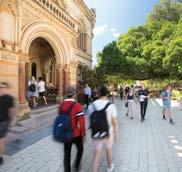

Over 100 countries represented in student population
are well prepared for multidimensional careers in the future workforce.
* Times Higher
† Economist Intelligence Unit, 2022.
^ Excellence in Research Australia, 2018 (the most recent assessment date).
‡ Total
** QS Graduate Employability
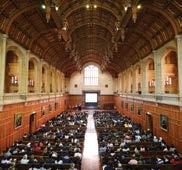
22,700+
Adelaide has a bustling, energetic city centre and is renowned for its festivals, cultural life and sporting events. With great shopping, beaches, a cafe culture, affordable student accommodation and friendly residents, Adelaide offers a relaxed lifestyle with all the convenience of city living. Our innovation precincts, such as Adelaide BioMed City and Lot Fourteen, attract multinationals, nurture entrepreneurship, and foster an everevolving spirit of creativity and invention.
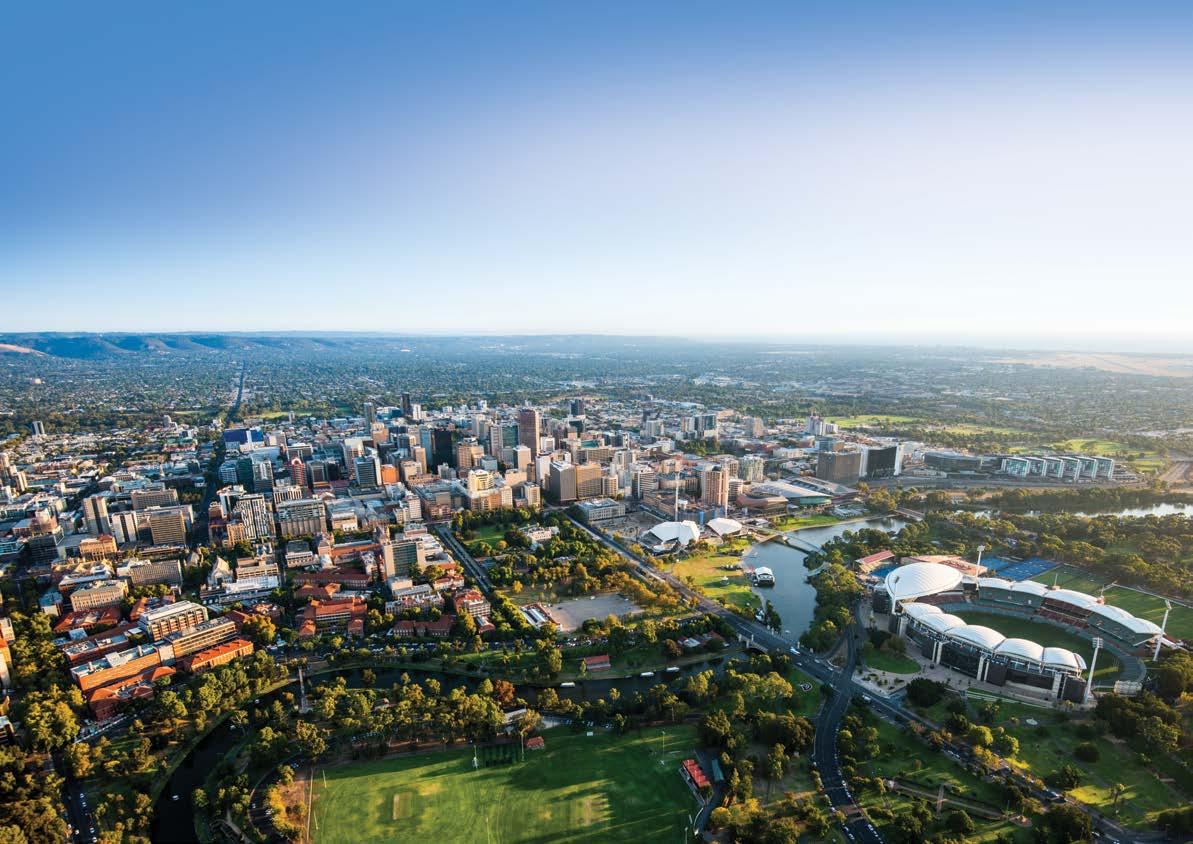
Australia’s most affordable mainland city
Safe and relaxed, Adelaide is ranked as one of the world's most liveable cities*—and with a cost of living up to 14% lower than Sydney or Melbourne, it also comes in as one of Australia's most affordable mainland cities^.
Adelaide is home to a globally impactful innovation ecosystem. Our future industries focused precincts—from Adelaide BioMed City to Lot Fourteen— attract multinationals and nurture entrepreneurship across the city.
Culturally diverse
South Australians hail from over 120 different countries, creating a wonderful mix of cultures and influences. One in five South Australians were born overseas!
Adelaide is a coastal city, with pristine white sandy beaches that attract thousands for relaxation and recreation in the summer. It takes just 20 minutes on the tram to get from the city centre to the beach.
Student accommodation is more affordable in Adelaide than in many other Australian cities, and much of it is in the heart of the Central Business District. Many students can simply walk to their lectures.

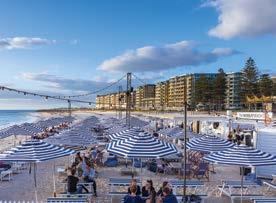


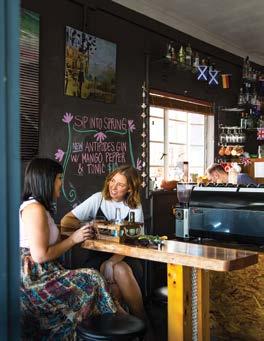
Adelaide boasts a range of shopping experiences comparable to anywhere in Australia. Within the CBD, Rundle Mall has the biggest concentration of department and chain stores, while within walking distance are trendy boutiques, bars and cafés.
Warm, dry summers and short, mild winters. Over 300 days of sunshine per year.

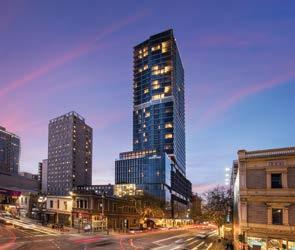
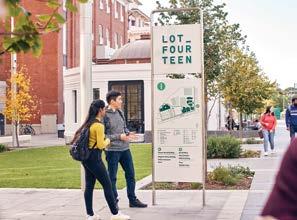
Home to a globally impactful innovation ecosystem, Adelaide is known for cultivating thought leadership in technology, science, and health.
Our innovation precincts—from Adelaide BioMed City to Lot Fourteen—attract multinationals and nurture entrepreneurship across the city. Lot Fourteen alone houses 59 startups and 152 established businesses, with the aim of creating high-value jobs in defence, tech, space, and the creative industries.
Adelaide’s ever-evolving spirit of collaboration and forward-thinking means there are always opportunities for networking, new ideas, and career growth.
Adelaide is a vibrant city that’s easy to navigate. Broad, spacious boulevards accommodate an efficient network of public buses, trains and trams, with international students receiving the same discounts as locals.
South Australia is known as the festival state of Australia because of the large number of national and international cultural and sporting festivals it hosts per year.
The University of Adelaide has three campuses in South Australia North Terrace, Roseworthy and Waite and a campus in Melbourne, Victoria.

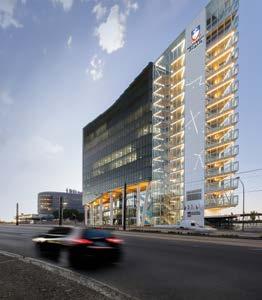
Located within walking distance to our North Terrace campus, the South Australian Health and Biomedical Precinct is the state's highest priority project for health, research and education infrastructure. Here you’ll find the Royal Adelaide Hospital (RAH), South Australian Health and Medical Research Institute (SAHMRI)— and our own Adelaide Health and Medical Sciences (AHMS) building. As our flagship health and medical teaching and research facility, AHMS is home to our medical, dental, nursing, public health schools and Adelaide Health Simulation—the most technologically advanced simulation facility in Australasia.
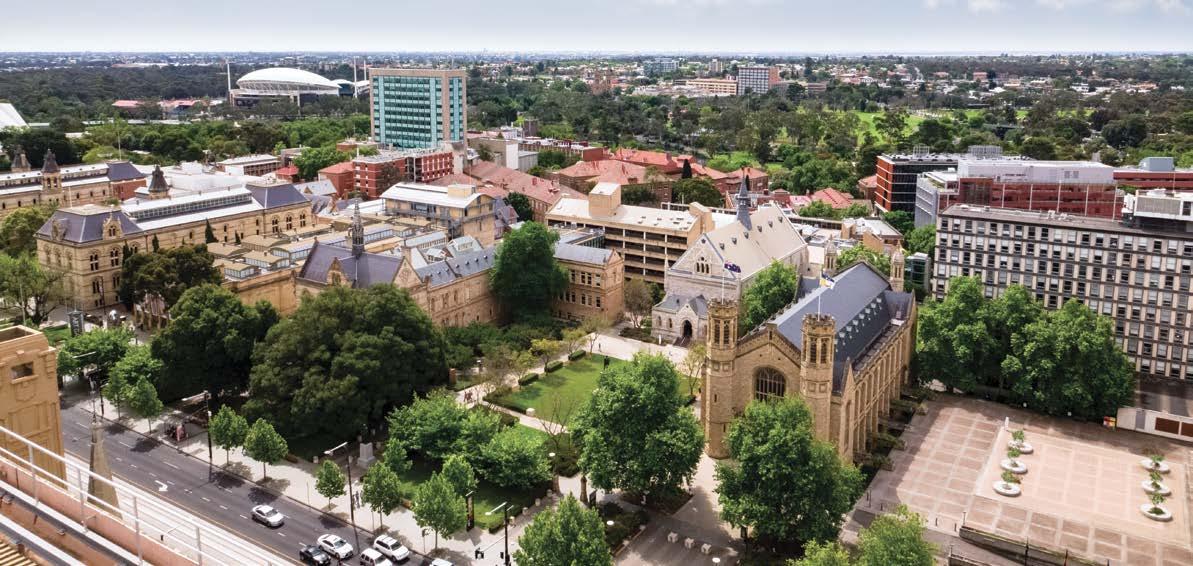


The Waite campus is home to the internationally renowned Waite Research Institute—the largest agricultural research institute in the southern hemisphere and third largest in the world. Our new Food Innovation Laboratory provides a cutting-edge and industrystandard space for food and cooking related teaching and research.
A number of research partners are also co-located there. Staff and students work closely with these organisations, providing a unique opportunity for collaboration on national and international research projects. Research areas include wine, plant biotechnology, plant breeding, sustainable agriculture and food science.
The campus is located eight kilometres south of the city centre and is easily accessible by public transport and a Waite-North Terrace campus shuttle bus service. Campus services include a childcare centre, library, cafe, gym and sporting facilities. adelaide.edu.au/campuses/waite
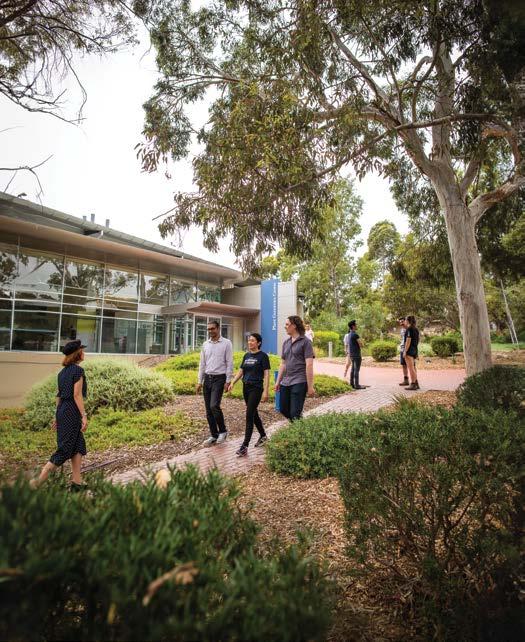

The Food Innovation Laboratory enables a full 'paddock to plate' range of activities
access to a
of equipment to enable work with jams/preserves, confectionery, baking, small-scale fermentation projects, and more.


Co-located partners
Co-located industry and research partners—Australian Wine Research Institute (AWRI); Commonwealth Scientific and Industrial Research Organisation (CSIRO); South Australian Research and Development Institute (SARDI); Plant and Food Research Australia.
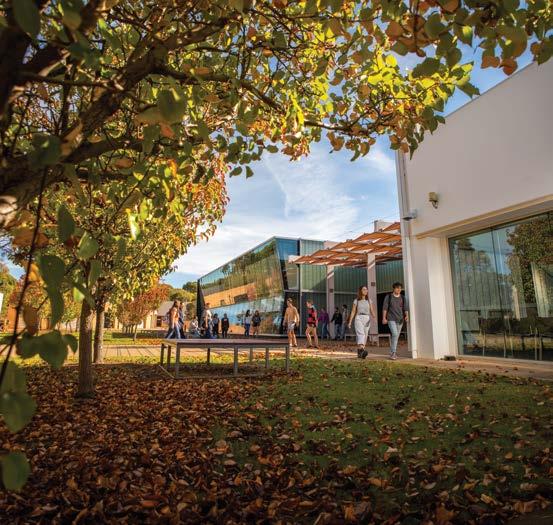
Roseworthy campus is a world-class centre for excellence in dryland agriculture, natural resource management and animal production. Set on over 1,600 hectares of land, it is home to South Australia’s only veterinary school. It features an AUD$37 million veterinary clinic, where students can gain clinical experience while studying. The campus is located 55 kilometres north of Adelaide and 10 kilometres from the town of Gawler (population 24,000). Access is available by a North Terrace-Roseworthy campus shuttle bus. Campus services include student accommodation, a swimming pool, library, cafe and fitness centre. adelaide.edu.au/campuses/roseworthy

Located on our 1600-hectare property 50kms north of Adelaide, our Roseworthy campus is home to a range of specialised facilities including a commercial farm, plant nursery, specialised laboratory facilities for glasshouse and fieldbased studies and more.

Our Roseworthy Veterinary Hospital is open to the public and offers a comprehensive range of veterinary health services and medical treatments for all animals—from cats, dogs, reptiles and everything in between right through to horses and livestock.
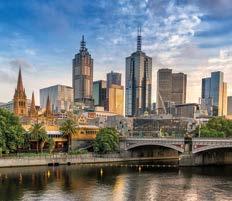

Roseworthy Residential College
Available to students studying on the Roseworthy campus, the college is provides students with access to a range of facilities—including common kitchens and laundromat, study and computer suites, library, gym and recreation facilities. ua.edu.au/roseworthy-college
Our Melbourne campus is located on the western fringe of the city in Docklands. The free city circle tram stops at our front door, and there are high-end shops, cinemas and hotels in the neighbourhood. We offer a selection of degrees at both the undergraduate and postgraduate levels as pathway options as part of our University of Adelaide College offerings. For information about the campus and the services available, visit: adelaide.edu.au/melbourne
The University of Adelaide is renowned as one of Australia’s premier research institutions.
Our areas of greatest strength include:
• agriculture, food and wine
• defence, space and cyber security
• health and medicine
• engineering and technology
• life sciences
• resources and renewable energy
• sustainability and the environment.
In all fields, collaboration drives us. Our researchers (~1472 academic staff and 1,625 research students) work closely across disciplines and in productive partnerships with industry, government and leading research institutions throughout the world.
For more information, visit: adelaide.edu.au/research
In recent years, we were one of just three universities globally involved in the following three landmark physics discoveries: gravitational waves; the Higgs boson elementary particle; and a celestial source of high-energy neutrinos.
We’re also co-leading creation of the world’s definitive legal text on conflict
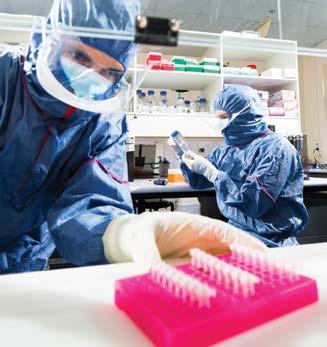
in space, the Woomera Manual. Our robotic-vision teams regularly feature on international challenges’ leader boards.
And University of Adelaide photonics and advanced sensing researchers have created the world’s most precise timepiece, the Sapphire Clock—a cryogenic sapphire oscillator accurate to the femtosecond.
Equally notably, our health researchers led the world’s largest herd immunity study—South Australia’s 2017-18 B Part of It meningococcal B vaccination trial—and are currently leading Australia’s involvement in the international COVID sniffer dogs program.
Our world-class research’s commercial value and impact draws interest and collaborative investment from all over Australia and the world. We have the fifth highest value of contracts, consultancies and collaborations of all Australian universities^^.
Some of the major companies the University’s partnering with to create real-world impact include:
• Silanna Group, in advanced semiconductor manufacturing (co-located with us)
• Trajan, in new-generation science and medical equipment (co-located)
• Lockheed Martin, in defence-related machine learning (co-located)
• Dassault Systems, in digital mining and energy systems (co-located)
• BAE Systems, in defence-related radar technology
• Agilent Technologies Australia, in commercialising products from biomass
• Plant and Food Research Australia, in agri-food and horticultural product development.
We’re recognised as one of the top 50 universities in the world in:
• Agricultural Sciences*
• Automation and Control*
• Civil Engineering*
• Computer Science and Engineering*
• Dentistry^
• Mineral and Mining Engineering*
• Nursing^
• Petroleum Engineering^
• Water Resources*. And among the top 100 in:
• Anatomy and Physiology^
• Clinical and Health†
• Development Studies^
• Earth and Marine Sciences^
• Education†
• Electrical and Electronic Engineering*
• Energy Science and Engineering*
• Geology^
• Mechanical Engineering*
• Pharmacy and Pharmacology^
• Philosophy^
• Public Health*
• Veterinary Science^
Note: Discipline-specific rankings are variously based on a combination of relevant metrics, including: our researchers’ citation numbers and impact (h-index); publications in top-rated publications; volume of international research collaborations; scale of research networks; industry income; and our reputation among international academics and employers.
* ARWU, 2022.
^ QS, 2023.
† Times Higher Education, 2023.
^^ National Survey of Research Commercialisation 2018 Snapshot, Department of Industry, Innovation and Science, based on 2014-16 data
Make history with a PhD
The University of Adelaide has a long tradition of exemplary scholarship provision and ground-breaking research. We are one of the top universities in Australia in terms of research output, research funding and quality of postgraduate research experience.
Adelaide is recognised internationally for its research strengths in an array of areas including:
• Agriculture, Food and Wine
• Creativity and Culture
• Defence, Cyber and Space
• Energy, Mining and Resources
• Environment, Sustainability and Climate Change
• Health and Biotech
• Societal Wellbeing
At the University of Adelaide, we offer PhD and Masters-level research degrees in every discipline under the supervision of globally recognised experts. We can also help broaden your experience and connections through industry-embedded PhDs, internships or a jointly awarded PhD with our fellow world-leading, research-intensive domestic and international partners.
For more information, including a step-by-step guide on how to apply for a Higher Degree by Research program, visit: adelaide.edu.au/publications/ua/ media/455/getting-your-phd.pdf
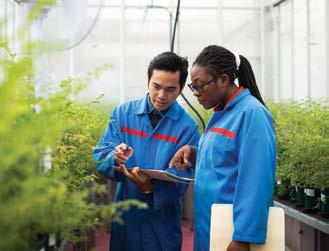


Hickinbotham
Roseworthy Wine Science Laboratory
Built to standard commercial winery size and specification— and the largest teaching winery in Australia—our winery offers unique capabilities and a range of winemaking tools. Operational since the early-1990s, 70% of Australia's wine research and development is conducted through small-scale, proof-of-concept winemaking trials at Waite.

Located in our stunning Adelaide Health and Medical Sciences building you’ll find the most technologically advanced simulation facility in Australasia—and the only Australian simulation facility accredited with the Society for Simulation in Healthcare for excellence in learning and teaching. Designed to enhance the clinical preparedness of our medical, nursing and other health sciences students, our state-of-the-art facility includes:
• 36 assessment rooms, all with high quality sound and video recording
• 22 high-fidelity hospital suites, with functioning oxygen suction and call bells
• simulators covering the entire patient lifespan—from neonatal to the elderly; and
• an outstanding variety of modern medical equipment.
With modern infrastructure and an innovative culture, the University of Adelaide has all the ingredients to help you succeed throughout the duration of your studies.
Whatever your area of study, you’ll have access to a wide range of state-of-the-art facilities and services across our various campuses all designed to support your academic success.

Extraterrestrial Environmental Simulation Laboratory
Designed to simulate off-Earth environments, our EXTERRES facility provides a range of services to support the design, testing and development of technologies and processes destined for the lunar and Martian surface. Science and engineering students can utilise the space to learn and innovate in a representative physical and virtual environment, connecting with world leading engineering and technology—including two rover testing pits, two Regolith Thermal Vacuum Chambers (RTVACs) and a regolith processing zone. The laboratory also houses the most complete off world regolith simulant library available in the southern hemisphere.
Experience what it’s like to present a case in a courtroom in the Adelaide Law School’s fully equipped Moot Court. Our facilities provide law students with a complete experience in legal practice, regularly playing host to moot court competitions, debating, advocacy, mediation and other practical training.

Financial markets lab
Fitted with industry-standard financial database and statistical analytic software, our stock exchange trading simulation room provides business and finance students with access to information about companies and industry sectors—enabling them to analyse investments in real-time. With the experience gained from the realworld environment of the lab, students are equipped with industryrelated skills that make them more attractive to future employers.

VR suites
For students honing their expertise in immersive technologies and all XR has to offer, our VR suites provide the perfect environment.
Equipped with the latest cuttingedge hardware and development software, students learn technical skills in 3D modelling, digital sculpting, rigging/animation, texture painting, game-engine lighting, sound design and more.
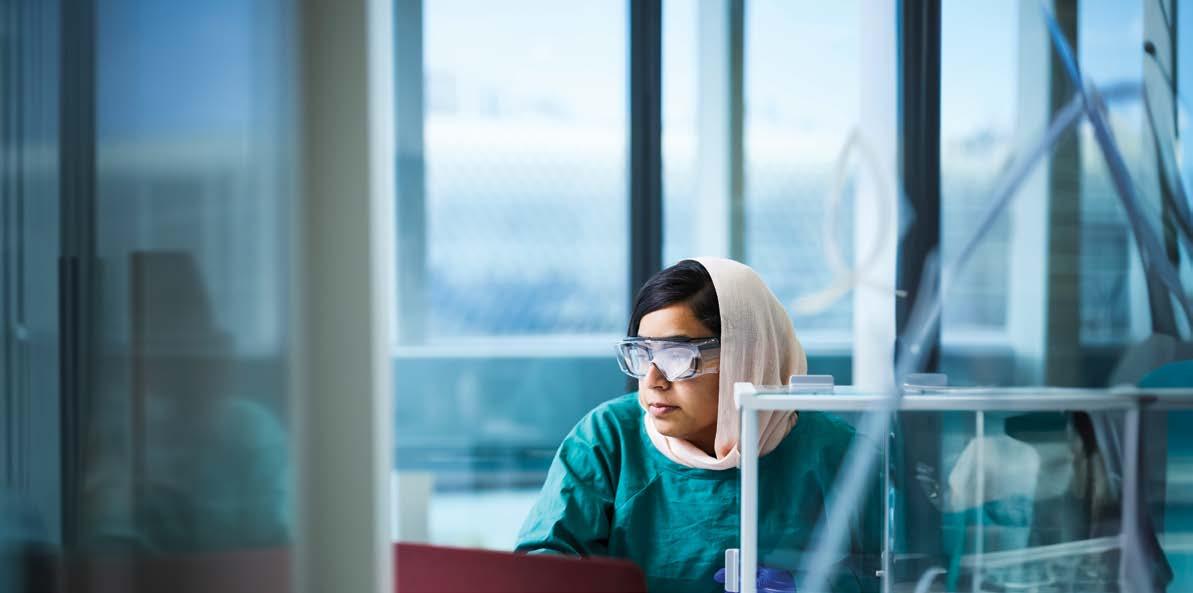
The University offers a range of support services to help international students succeed.
Friendly staff are available to help with a range of issues, from helping students manage their studies to assisting with enquiries relating to visa conditions or academic support. They also support students to address personal issues that may be affecting their studies, or simply help them adjust to their new life in Adelaide. In addition, doctors at our North Terrace campus Health Practice can provide students with year-round health support at a reduced fee.
adelaide.edu.au/student/support
Visit this site to see the full range of support services, both academic and person offered to students at the University.
International Student Support
international.adelaide.edu.au/ international-student-support
Services include: one-on-one support from International Student Advisors for help with personal or financial issues; orientation and social programs to encourage engagement with other students and the broader community; and assistance with Confirmation of Enrolment (CoE) and student visa-related queries.
adelaide.edu.au/student/careers
The service provides individual advice and employability workshops to help students develop career management skills; an extensive database of employment opportunities and resources known as CareerHub; and annual career-related events including the Careers Expo and employer-oncampus sessions. The service also offers expertise in locating graduate vacancies based offshore and within Australia.
set.adelaide.edu.au/women-in-stem
WiSC provides professional development opportunities for young women studying a STEM degree at the University of Adelaide.
adelaide.edu.au/writingcentre
Support with writing academic English through one-on-one advice from writing mentors, workshops and comprehensive support resources.
adelaide.edu.au/mathslearning
Help for all students to develop mathematics skills at every level, with drop-in sessions, lectures, games and resources.
adelaide.edu.au/pass
Regular extracurricular sessions led by student mentors to help students improve their grades in specific courses.
adelaide.edu.au/childcare
Full-time and part-time care for children of students and staff is available for a fee, with locations at our North Terrace and Waite campuses.
adelaide.edu.au/counselling
Support is free, confidential and available to onshore enrolled students seeking to address issues that may affect their study or life.
adelaide.edu.au/disability
The Disability Support team provide personalised advice and assistance to students who have a diagnosed disability or ongoing medical condition, to help them identify relevant reasonable adjustments to help with their studies.
adelaide.edu.au/eliteathletes
Support to help elite student athletes balance their academic and sporting commitments, by providing a flexible and responsive approach to study.
adelaide.edu.au/student/wellbeing
An online resource to provide information and support to students on a range of health and wellbeing topics, campaigns and events.
universityhealthpractice.com.au
Comprehensive health care is available at a reduced fee for all students and staff, with male and female doctors (GPs) offering health checks, immunisations and mental health support.
Library
adelaide.edu.au/library
One of the state’s most extensive research collections, also offering quiet study spaces, and support from specialist research librarians.
The University of Adelaide offers a stimulating environment where students are encouraged to take part in a wide range of extracurricular activities.
international.adelaide.edu.au/life-oncampus/social-programs-clubs-and-sports
The University offers a variety of social programs to help international students adjust to their studies and make new friends. These include ongoing English conversation practice (Talking with Aussies), regular culturally-themed social nights (Language and Cultural Engagement program), a chance to improve intercultural and employability skills (Global IQ Connect) and opportunities to develop leadership and employability skills (Peer Mentor program).
studyadelaide.com
StudyAdelaide provides information and support to students both before they arrive in Adelaide and after they settle into life in their new home. It conducts a busy schedule of events and activities each year. These include everything from a welcome ceremony with the Lord Mayor, international student awards, career advancement workshops, wine education functions and regional trips to social events, such as sports days.
Facebook: facebook.com/studyadelaide
Twitter: @studyadelaide
Instagram: @studyadelaide
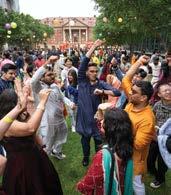
Life on campus
• YouX youx.org.au
Student services
• Student Care youx.org.au/support/studentcare
• Employment youx.org.au/support/employment
• Special-interest and social clubs youx.org.au/interests/clubs
Sporting clubs and facilities
• Adelaide University Sport adelaide.edu.au/sports
• The Fitness Hub adelaide.edu.au/sports/the-fitness-hub
With knowledge backed by hands-on industry experience, Adelaide graduates emerge career-ready and highly sought-after by employers.
From our industry-informed curriculum and partnerships to professional placements and internship opportunities, we ensure you’ll have every opportunity to enhance your employability alongside your academic learning throughout the duration of your studies.
Our industry links. Your advantage.
Not only will you learn from our worldclass academic staff—many of whom are practising industry professionals themselves—you’ll also benefit from our strong industry connections and partnerships through work-integrated
learning opportunities. Depending on your area of study, you could be sharpening your professional skills in our full-service Adelaide Dental Hospital, five legal advice community clinics, veterinary health centre, fully functional livestock farm or any number of other professional organisations and workplace environments.
Students studying practically any degree at the University of Adelaide can undertake an internship—either as part of, or in addition to, their studies. Internships are a great way to develop industry
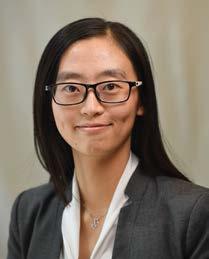
We’re developing a tiny 3D-printed camera, the size of a single hair, to detect patients at high-risk of heart attack. It provides images of blood vessels with such high resolution and molecular insight that is not possible with existing technologies. We recently received Federal grant funding to test and commercialise the device^. Clinical adoption of this novel device would have significant impact on patient outcomes, filling an unmet need in cardiology to reliably detect highrisk plaques before they are life-threatening.”
Dr
Jiawen Li
Senior Lecturer, School of Electrical and Mechanical Engineering
^ Australian Government National Health and Medical Research Council, ‘3D-printed device for cardiovascular health project to share in $15 million translation of research grant funding’, December 2022.
Combining the University of Adelaide’s futureready education expertise and position as a world top-100 university, with Deloitte’s standing as a globally influential, multi-industry market leader, The Academy integrates academic learning with practical application and experience in the workplace.
Open to undergraduate students, the program includes tailored, professionally-aligned electives; immersive development activities; a paid internship; advanced learning through the Professional Certificate; and networking events—each complementing and adding to your university learning.
For more information, visit: adelaide.edu.au/the-academy

connections and networks, prepare you for graduate work environments, and provide you the opportunity to apply knowledge and skills into real-life situations.
Students undertaking certain degrees will be required to complete an internship or clinical placements as part of their studies to meet professional accreditation requirements. Our Allied Health students, for example, complete over 800 hours of work-based training in a wide variety of healthcare settings and our Engineering students complete practical placements under the supervision of qualified, practising engineers.
Many of our degrees satisfy the requirements for registration with a range of professional accrediting bodies and organisations. For further details on the specific professional accreditation information of your chosen degree, visit: adelaide.edu.au/degree-finder
Dr Hong Cai Senior Lecturer, School of Social Sciences
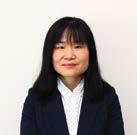
2023 recipient of Australian Awards for University Teaching {AAUT) Citation for outstanding contribution to student learning
Dr Hong Cai’s approach to teaching and learning has positively impacted a large number of students over the last six years—both at the University of Adelaide and beyond, as other institutions have adopted her innovations. Her initiatives provide students with real-world experiences, foster friendships and connections between students from different cultural backgrounds, and increase their cultural intelligence, which in turn enhances their employability.
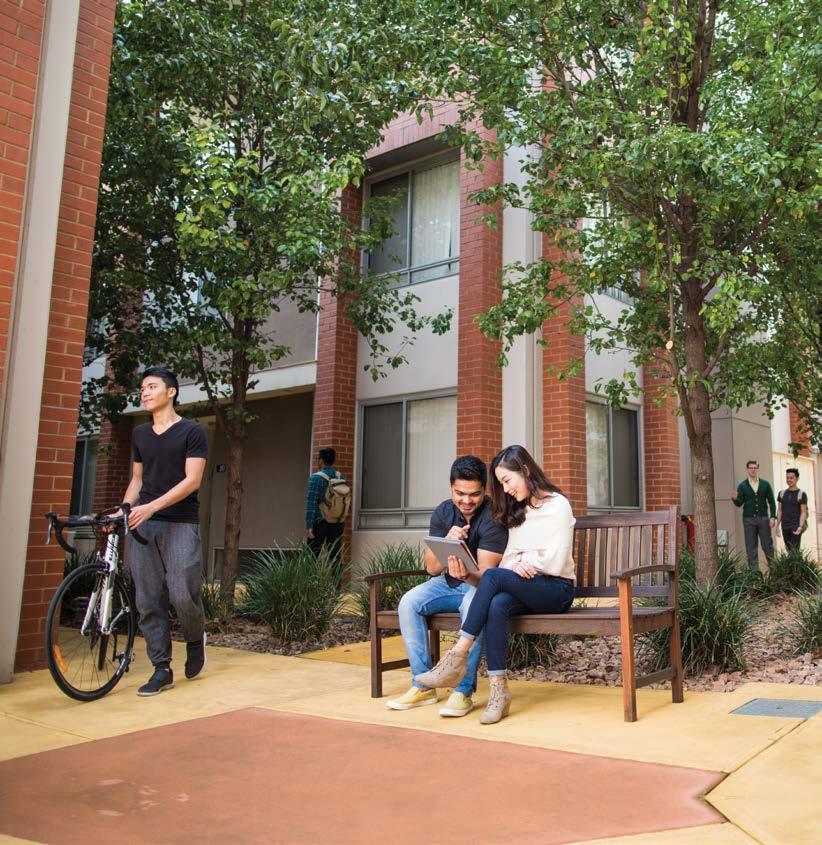
How you live will affect how you study, which is why the University has an Accommodation Service dedicated to assisting students to find accommodation to suit each individual’s particular needs and circumstances.
Students traditionally choose one of three accommodation options:
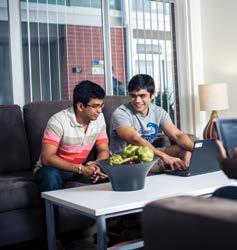
• For the lucky ones there may be the option of living with family members.
• More affordable accommodation is generally found in the share or private rental market.
• There is managed student accommodation offering all student residential environments, fully furnished accommodation with staff on site, situated in convenient locations to university.
The Accommodation Service works hard to help students to avoid the possibility of being distracted from their studies by a challenging accommodation arrangement.
Disruption to study can be caused by:
• Relationships—with landlords, property agents and housemates.
• Conflicting lifestyles—studying at night vs. studying during the day.
• Distance—distance from university equals time.
Students are encouraged to consider a managed student accommodation option in their first year of study. By doing so, you will have time to settle into your academic routine, get used to the public transport network, identify your ideal location and amenities, and find a landlord committed to your safety and wellbeing.
If you choose private rental accommodation we encourage you to:
• Access the University’s rental database (adelaide.edu. au/accommodation) to view options from providers associated with our university community
• Book temporary accommodation for your arrival in Adelaide, and give yourself plenty of time to inspect a number of rental properties before making a selection
• Refrain from committing to a share or private rental option unless it’s underpinned by a written agreement ensuring that you will receive a receipt for all payments, including security bonds.
We generally find that students who choose a managed student accommodation in their first year are better prepared to thrive in share or private rental accommodation in subsequent years.
More information about managed student accommodation can be found on the Accommodation Service website.
The University of Adelaide provides students and their families, our network of valued school counsellors and international education agents access to a dedicated Accommodation Service.
Our professional team of accommodation specialists are available to assist our university community to provide general accommodation information, tenancy support and to apply for an accommodation place in student accommodation.
Book an online appointment with a specialist accommodation officer or meet one in person at the Accommodation Service on North Terrace campus.
Specialist accommodation support made available to our students through the Accommodation Service includes:
• access to NPAS accredited student accommodation and other student accommodation options
• access to the rental database (students and providers) for private and shared accommodation.
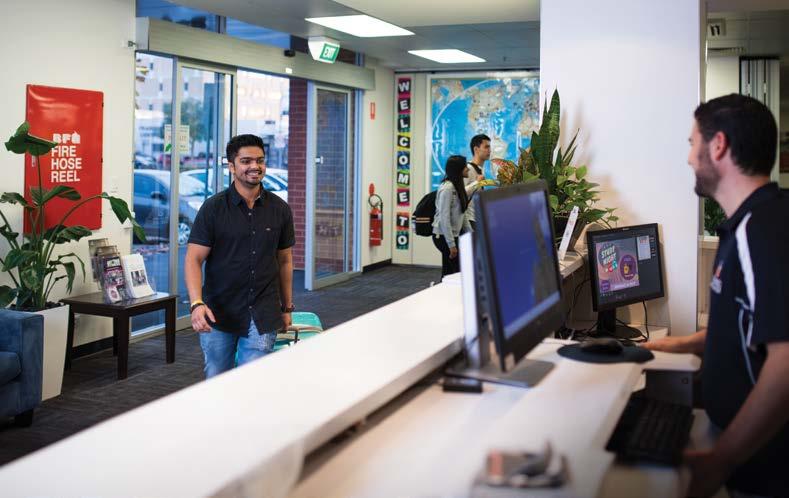
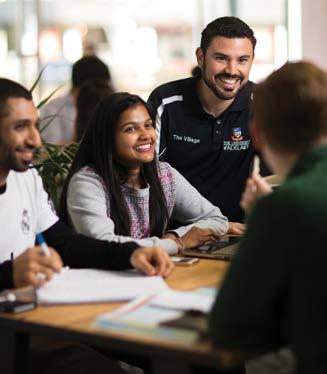
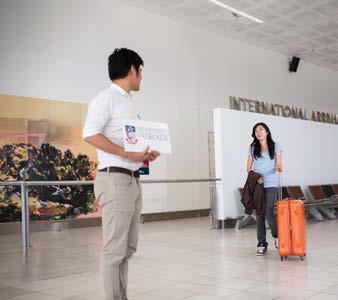
As part of planning, applicants need to consider the financial requirements before applying to the University, and are advised to set a realistic budget.
There are financial requirements you must meet to receive a student visa for Australia and you may need to provide evidence of your ability to cover living costs. As a guide, the recommended 12-month living cost for a single student is AUD $24,505.
For more information, visit: immi.homeaffairs.gov.au/visas/ getting-a-visa/visa-listing/student-500
Living in Adelaide is more affordable than many other major cities, however accommodation remains students’ largest variable expense. For information and advice, see page 27.
An application fee of AUD$150 must be paid with the University of Adelaide undergraduate online application. An exemption may apply for some governmentor externally-sponsored students.
Prospective students should allow at least AUD$500 per year for textbooks and basic study materials. Depending on the degree, other costs may include: specialist equipment (e.g. laboratory coats, microscopes, stethoscopes); optional supplementary reading and academic program materials; field trips; and expenses such as thesis preparation, printing and binding.

International students are required to pay international student tuition fees, which cover the cost of teaching and many student support services. The indicative annual tuition fee quoted in this prospectus is based on the standard full-time enrolment load of 24 units per year, or 12 units per semester.
The quoted fee is reviewed annually and may increase in future years. Fees may also vary depending on enrolment load.
New international students are required to pay a tuition fee deposit when accepting an offer of admission. After enrolment, students are then invoiced for the balance of their fees in that enrolment period.
The University invoices students (or their sponsor) each enrolment period according to students’ enrolment load.
Fees listed in the back of this publication are 2024 fees and should be considered indicative only. Fees are subject to change, so students should check our website for the most up-to-date information: international.adelaide.edu.au/ admissions/university-fees
International students commencing in 2025 will be required to pay an annual Student Services and Amenities Fee. This covers activities such as clubs, sporting and recreational activities, and many other services. The fee was AUD$351 for 2024 and is indexed annually. For more information, visit: adelaide.edu.au/student/finance/ssaf
All applicants must read the University's policy on refunds included in the offer of admission before accepting. The policy complies with all requirements for tuition fee refunds stipulated in the Education Services for Overseas Students Act 2000 (ESOS), associated Australian Government regulations, and the ESOS National Code of Practice (2018). For refund policy details, visit: adelaide.edu.au/policies/4343
For information about refund administration and refund amounts, visit: adelaide.edu.au/student/finance/refunds
Student visa holders and their dependants are required to have health insurance for the duration of their student visa through the Overseas Student Health Cover (OSHC) scheme. The University’s preferred OSHC provider is Medibank. Visit: medibank. com.au/overseas-health-insurance/oshc
For additional information, please refer to: international.adelaide.edu.au/ international-student-support
International students who bring their families to Australia will need to take into account the additional costs associated with health cover, housing, food, transport, childcare and education. For advice, visit: internationalstudents.sa.edu. au/en/students/dependants
The University of Adelaide is committed to providing educational opportunities for international students by offering a range of scholarships. For full details on each of our scholarships visit: international.adelaide.edu. au/admissions/scholarships
A selection of scholarships are also available from the Australian Government. For information on these, visit: australiaawards.gov.au
All scholarship details are subject to change, so interested students are encouraged to check these websites regularly.
Many international students and their dependants hope to obtain part-time work to supplement funds for living costs. While this may be possible, we recommend that students do not rely on it for essential expenses.
Obtaining a job is not guaranteed and can take time. Students should also be aware that the workload for many degrees is intense, so they may not have time to undertake employment.
International students who do find part-time work should be aware that they have the same workplace rights as all other workers in Australia. International students on a student visa are limited to 48 hours per fortnight while studying.
Additional information and advice about your workplace rights and obligations is available at: fairwork.gov.au
For more information related to student visa conditions, visit: homeaffairs.gov.au/trav/stud
Find out how to apply for one of our undergraduate or postgraduate coursework degrees if you are an international student.
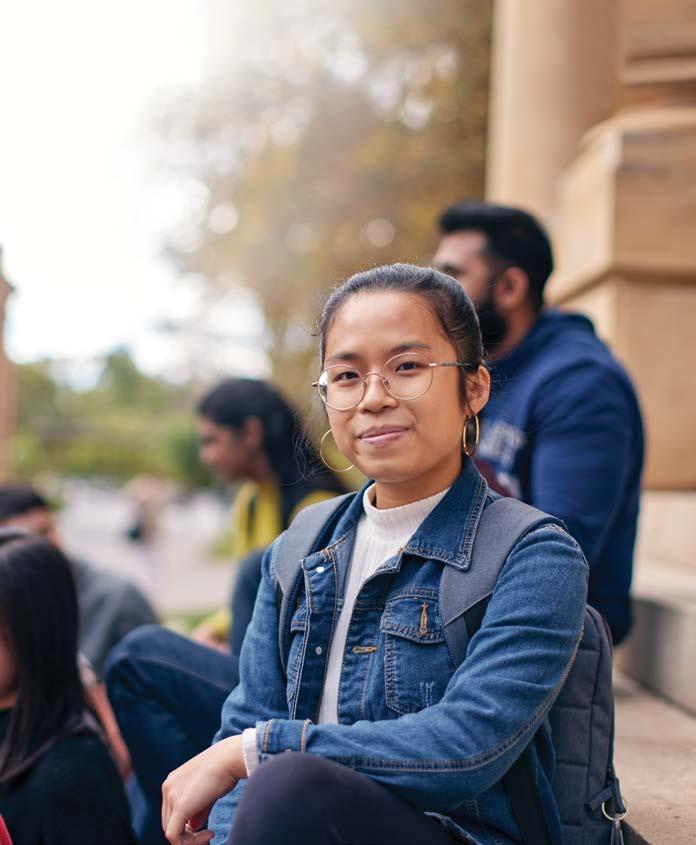
In the following pages you’ll find:
• information on English language proficiency requirements, including details of our Pre-enrolment English Program (PEP) and General English for Academic Purposes (GEAP) program
• application information, along with entry requirements, additional selection criteria and application closing dates
• 2025 academic year calendar, including key dates.
English is the language of instruction at the University of Adelaide, therefore proficiency in speaking, reading, writing and listening to English is essential. The University accepts the following English language tests (except where otherwise specified):
• IELTS (International English Language Testing System) Academic Test
• TOEFL (Test of English as a Foreign Language)
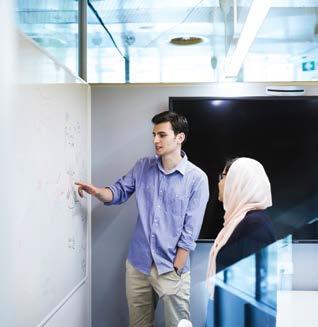
• Pearson Test of English (Academic)
• C1 Advanced, formerly known as Cambridge Certificate in English: Advanced (CAE)
• Occupational English Test (Health Sciences only).
Other evidence of English proficiency may be accepted* such as:
• successful completion of an Australian Year 12 qualification with pass or better in Universityrecognised English language subject
• completed International Baccalaureate Diploma in a University-recognised English language subject
• successful completion of a pathway program, such as the University of Adelaide College Foundation Studies Program.
In most cases, evidence of English proficiency must be less than two years old from class start date of intended commencing intake.
The majority of students with English test scores just below the University’s minimum English language requirements can choose to undertake an intensive language program at the University of Adelaide.
An offer to the Academic Pre-enrolment English Program (PEP) (refer to page 34) will be included for eligible students. This program provides an alternative entry pathway for prospective students who have received offers to the University conditional upon English proficiency. Upon successful completion of the PEP at the required level, students can be granted entry into most degrees at the University.
Other methods of English Language Proficiency (ELP) may be accepted into select programs. For more information about other means of demonstrating English language proficiency, please visit: international.adelaide.edu.au/admissions/ how-to-apply/admission-requirements# english-language-requirements
* Subject to external accrediting body requirements.

The University’s English Language Centre (ELC) provides outstanding academic and general English programs, and English teacher training services for international students and groups.
The University of Adelaide offers an academic English pathway for students who have not met their degree’s minimum English language entry requirements.
This is a direct-entry pathway into further studies at the University of Adelaide. The
length of the program depends on the applicant’s English proficiency test score.
Students who successfully complete the Pre-enrolment English Program (PEP) at the required level do not need to sit another English test before entering their University degree.
The PEP is offered in lengths of 10, 15, 20 and 25 weeks. For more information on the PEP, visit: adelaide.edu.au/elc/our-courses/ pre-enrolment-english-program-pep
The PEP Extended 30 and 35-week courses combine General English for Academic Purposes (GEAP) classes and Pre-enrolment English Program (PEP) classes.
Commencing in the GEAP allows students to develop the fundamental linguistic building blocks of grammar and vocabulary for academic-level study, before progressing to English classes specifically tailored for students entering an award program.
• PEP Extended 30-week students will complete 5 weeks of GEAP before commencing 25 weeks of PEP classes.
• PEP Extended 35-week students will complete 10 weeks of GEAP before commencing 25 weeks of PEP classes.
To find out which PEP they are eligible for, students should refer to the diagram on page 35.
General English for Academic Purposes (GEAP)
Our General English for Academic Purposes (GEAP) program is for students wishing to develop effective oral and written communication skills—and boost their learning confidence—at one of the most prestigious universities in Australia.
Delivered in the University of Adelaide’s academic environment and attracting students from all around the world, GEAP is offered in five levels of language proficiency —from elementary through to advanced.
All levels focus on developing speaking, listening, reading and writing skills, with academic tasks added as the student’s proficiency increases.
There are no entry requirements and students can choose to enrol for anywhere from 5 to 45 weeks.
For more information on the GEAP, visit: adelaide.edu.au/elc/our-courses/generalenglish-for-academic-purposes-geap
Customised Short Courses for Groups offer an ideal mix of academic excellence and cultural experience for groups of international students or professionals looking for a rewarding study experience.
Programs are customised to each group’s specific needs and can be for any length of time. They can be delivered online, face-to-face in Adelaide, or a combination of both. Homestay accommodation can also be included.
Academic sessions can focus on general English tuition or a specific discipline or interest, while cultural activities include exploration of destinations of cultural, historical, geographical and social interest.
In addition to the fees (see page xx), an enrolment fee of AUD$295 will apply to Academic English Pathway programs.
For trimester dates and fees, please visit: adelaide.edu.au/elc/our-courses/ pre-enrolment-english-program-pep/ dates-and-fees
For more information on the English Language Learning Centre, visit: adelaide.edu.au/elc
For students applying for degrees with higher English language requirements, or with an English test score other than IELTS.
Please note that, as well as the IELTS test, the ELC accepts the TOEFL iBT, Pearson and C1 Advanced for entry into the PEP.
For more information on scores required, visit: adelaide.edu.au/ elc/our-courses/pre-enrolmentenglish-program-pep/howmany-weeks-of-pep-do-i-need
This diagram shows: the IELTS scores required for entry into PEP programs of various lengths; and the amount of time it takes most students to become proficient enough to enter either undergraduate or postgraduate degrees requiring an overall IELTS score of 6.5, with no band less then 6.0 (or equivalent). TOEFL, Pearson and C1 Advanced tests are also accepted.
Applicants should be aware of their specific degree’s admission and student visa requirements before applying to the University. For more information about deadlines, visit: international.adelaide.edu.au/ admissions/apply/application-deadline
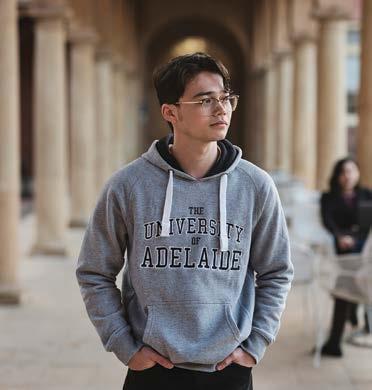
For entry information on specific degree requirements, consult the relevant degree descriptions on Degree Finder: adelaide.edu.au/degree-finder
Qualifications recognised for undergraduate entry are shown on this page, and a table listing all degrees, prerequisites, and the minimum entry requirement for students completing these qualifications can be found on page 104.
Students with some qualifications obtained in the South Pacific islands, Japan, or Saudi Arabia are advised to complete a Foundation Studies program (see page 101) to prepare for entry into the University’s undergraduate degrees. International students must also meet English language requirements (page 98).
Entry is competitive—the minimum academic entry requirement for most postgraduate coursework degrees is an Australian bachelor degree or equivalent qualification, from a recognised institution, at a level of academic achievement specified by the relevant faculty or school.
Entry requirements vary between degrees.
Some of the graduate certificates and graduate diplomas offered may be accepted as a requirement for entry to a master degree, or as professional qualifications in their own right.
For information on particular degree requirements, please refer to the list of academic programs and minimum entry requirements on page 118.
For some University of Adelaide degrees, other selection criteria are considered in addition to academic qualifications.
For example, our music degrees require applicants to undertake an audition. Medicine, dentistry and oral health applicants are required to undertake a University Clinical Aptitude Test (UCAT) and—if successful—attend an interview. Information about additional selection criteria can be found by referring to the Entry Requirements tab on the Degree Finder page for your chosen course: adelaide.edu.au/degree-finder
Applicants who have been offered a place in a degree may apply to defer their enrolment for up to one year from their original date of admission. Exceptions apply to some degrees, such as music degrees, teaching degrees and some degrees in the Faculty of Health and Medical Sciences. Applicants should be aware that entry requirements and fees may change, and with any deferral request applicants will be required to meet any revised entry requirements prior to commencing their degree.
In some cases, international students may be credited with advanced standing (status/ exemptions) on the basis of previous studies at another institution. Applicants seeking advanced standing must submit detailed syllabuses (course outlines) of the subjects they’ve completed with their application.
Under Australia’s strict privacy laws there are very limited circumstances in which the University can release personal or
Event
Summer school January 6 – March 8
Recommended arrival date for international students commencing study in semester 1, 2025 February 20 – 21
International student orientation and enrolment for semester 1, 2025 February 20 – 21
Special arrangements are required for students under 18 who hold, or intend to hold, a student visa. Students who have not turned 18 before their studies commence must either:
• live with a parent
• live with an eligible relative in Adelaide, or
• have their parents agree to accommodation and welfare arrangements organised by the University (additional fees apply).
Arrangements include prescribed housing placements and compulsory welfare monitoring services up until the student’s eighteenth birthday. (Available only to students who will be 17 years of age upon commencement of studies.)
For more information, visit: international.adelaide.edu.au/admissions/ students-under-the-age-of-18
University Orientation Week (including preliminary lectures) February 24 – 28
Semester 1 lectures commence March 3
Mid-semester break April 14 – 25
Study leave / exam preparation June 16 – 20
Mid-year exams June 21 – July 4
Replacement exams July 21 – 26
Mid-year break / Winter school July 7 – 25
Recommended arrival date for international students commencing study in semester 2, 2025 July 17 – 18
International student orientation and enrolment for students commencing study in semester 2, 2025 July 21
Semester 2 lectures commence July 28
Mid-semester break September 22 –October 6
Study leave / exam preparation November 3 – 7
End-of-year exams November 8 – 22
Replacement exams December 10 – 16
academic information about a student. Such information will usually only be released to Australian government departments where legislatively required or in a health or safety emergency. The University cannot release any information about a student’s results, attendance, application status or any other matters to their parents.
For more information on the University’s Privacy Policy and Management Plan, visit: adelaide.edu.au/policies/62
Apply through one of the University’s official international representatives, or via our online application system at: international.adelaide.edu.au/ admissions/how-to-apply/apply-now
Payment and documents required
• A non-refundable application fee.
• Personal details page of passport or birth certificate.
• Original or certified copies of student academic qualifications, transcripts, English language test results (if applicable) and any other supporting documents.
Australian Year 12 applicants and International Baccalaureate applicants
International students currently completing an Australian Year 12 qualification (in Australia or in any other country) or International Baccalaureate in Australia—and who will complete this qualification at the end of the year (Nov/Dec)—must apply through the South Australian Tertiary Admissions Centre (SATAC) via Uniweb, at: satac.edu.au
Specific application open and closing dates are available via the SATAC website.
International Baccalaureate applicants who are studying overseas and Australian Year 12 applicants completing mid-year (Apr/July)
Must apply via our online application system: international.adelaide.edu.au/admissions/ how-to-apply/apply-now
Medical Studies, Dental Surgery and Oral Health degree applicants
All applicants for these degrees must register and book in for the University Clinical Aptitude Test (UCAT ANZ) and lodge their applications via the online application system before 30 June 2024.
The UCAT ANZ booking deadlines can be viewed via: ucat.edu.au/ucat-anz/dates-and-fees
Applicants are liable for the UCAT ANZ fees.
Copies can be certified by an authorised staff member of the University of Adelaide, Justice of the Peace, Notary Public, consular official, commissioner for taking affidavits, registrar of the University from which the transcript or parchment is issued, police officer or examining authority. Information on document certification can be found at international.adelaide.edu. au/admissions/how-to-apply/document-certification
Further information and contact details
Further information and contact details: future.ask.adelaide.edu.au/app/ask_a_question
To apply directly to the University, visit: international. adelaide.edu.au/admissions/how-to-apply/apply-now
Find an agent
For a full listing of our international representatives and their contact details, visit: international.adelaide.edu. au/admissions/find-an-international-study-agency
All applications will be assessed. Applicants will be emailed directly (if they applied directly), or via their official representative.
Successful applicants will receive the following:
• Offer of Admission
• Acceptance Form
• Terms and Conditions
• Refund Information
• Advanced Standing Plan (if applicable)
Students studying an Australian Year 12 qualification or IB in Australia and applying via SATAC
Examination results will be sent directly to SATAC by all relevant examining boards. When results are available, SATAC will email offer details directly to the email address nominated on the student’s SATAC application.
Accept offer
• Complete and sign Offer of Admission Acceptance Form.
• Arrange payment of tuition fee deposit as per instructions in Offer of Admission. Payment must be made by the International Admissions System portal.
• Arrange for payment of Overseas Student Health Cover (OSHC) for duration of visa. This can be paid to the University where the University will arrange this on your behalf or you can arrange the OSHC yourself.
Obtain international student visa
• Arrange for payment of English language program fees (if applicable).
• Provide a copy of the Personal Details and signature pages section of the passport.
• Read and agree on all Terms and Conditions.
Conditional offers
Students who receive a conditional offer must provide documentary evidence that they’ve met any outstanding conditions. A new Offer of Admission will be issued once all conditions on the offer have been met.
Applicants should lodge a complete student visa application as soon as practical after receiving their CoE. This can be done with the assistance of a recognised University of Adelaide agent or representative. Or, by applying online directly to the Department of Home Affairs. For more information visit: immi.homeaffairs.gov.au/ check-twice-submit-once/student-visa
Prior to orientation, students will receive information about obtaining their University username and password. Then, when enrolments open, students will be able to log in to the Access Adelaide section of the University website and enrol.
After receiving the complete acceptance documentation, the University sends applicants a Confirmation of Enrolment (CoE). Students should use the CoE to apply for an Australian student visa. Applicants that hold an alternative visa which allows study rights do not require a CoE to apply for an Australian Student Visa, this can be confirmed at time of acceptance.
After making travel arrangements, students should consider their accommodation options by visiting: adelaide.edu.au/accommodation While there, they can also book an airport pickup and temporary accommodation if required (fees apply).
Students should aim to arrive in Adelaide in time to attend the international student orientation program. Participation in this program will help familiarise students with the city and campus, and provide a chance to meet staff and other students and make friends before commencing studies. For more information, visit: international.adelaide.edu.au/ welcome-new-students/orientation/

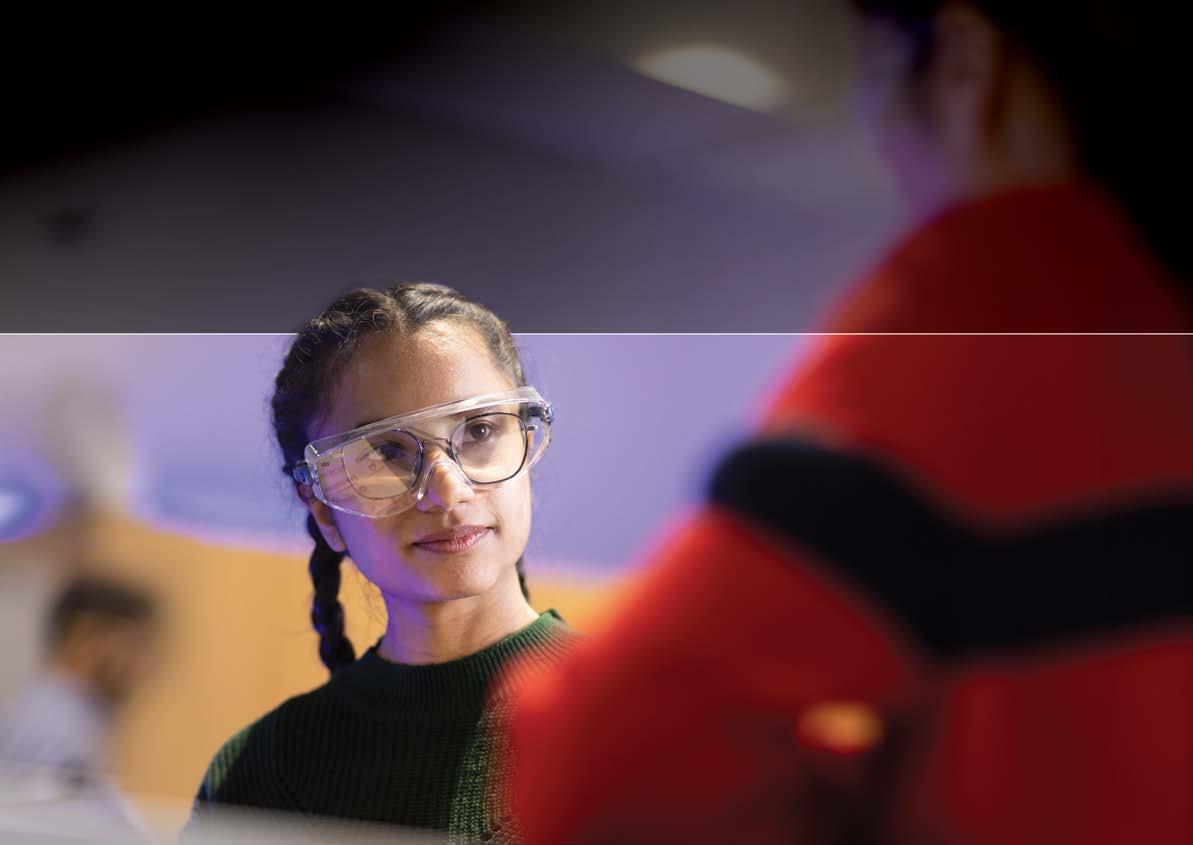
Do you feel sure of where your career interests lie, but unclear about which degrees can help you get you started? Then this section is for you.
What you'll find in the following pages
Brief descriptions of 28 broad career and study areas that you can pursue at the University of Adelaide, arranged in alphabetical order
Some of the key reasons why our university is one of the best places in the world to study in those fields.
QR codes that will take you to Degree Finder, enabling you to explore the specific undergraduate or postgraduate coursework degrees of interest to you in greater depth.
Learn to manage the generation and productive use of money at all scales—from the individual right up to multinationals and governments.

Gain industry ready skills in our state-of-the-art Financial Markets Lab
As a University of Adelaide accounting and finance student, you’ll learn to use the same systems that practising finance professionals use, in our state-of-the-art Financial Markets Lab.
Utilising the Lab’s real-time connections to all major global finance markets, you will:
• construct investment portfolios
• stress-test their performance in specific market conditions
• observe live market performance
• monitor real-time financial news feeds, via the powerful LSEG database.
You’ll graduate with the experience and confidence to immediately contribute in a professional finance environment.
Ranked top-150 globally in Accounting and Finance*
As the only Australian university with ACEEU accreditation^, we'll ensure virtually everything you do in your business studies builds your capacity to innovate and make things happen.
• All our business degrees include an entrepreneurship course, to boost your personal development and professional growth.
• All business degrees give you the flexibility to pursue areas of particular interest or passion.
• You’ll also have the opportunity to hone your new-venture-building skills in our eChallenge program, and ThincLab business incubators.
• And you’ll get the chance to gain priceless realworld experience through industry internships.
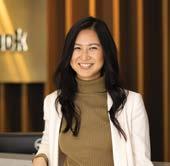
The Academy by Deloitte
Students undertaking an eligible undergraduate degree are able to be part of The Academy by Deloitte. To find out more, visit: adelaide.edu.au/the-academy
Career prospects
Employment growth for the majority of accounting and finance roles ranges broadly from moderate to strong†.
• Finance programs provide excellent grounding for pursuing a Chartered Financial Analyst program.
• Graduates of accounting programs can gain associate membership with CPA Australia and CA ANZ.
* QS World University Rankings by Subject, 2023
^ Accreditation Council for Entrepreneurial and Engaged Universities (ACEEU).
† Australian Government, Labour Market Insights, 2023.
Degrees
Undergraduate
• Bachelor of Commerce
• Bachelor of Finance and Banking Postgraduate coursework
• Master of Accounting
• Master of Accounting and Finance
• Master of Applied Finance
• Master of Business Analytics
• Master of Finance
• Master of Finance and Business Economics
• Master of Professional Accounting
"I enjoyed the entire university experience— not just academically, but the student societies I was involved in and the people around me."
Zaw Yananar Htoo Bachelor of Commerce
Learn how to sustainably feed the world in the face of a changing climate, using leading-edge techniques and technology.
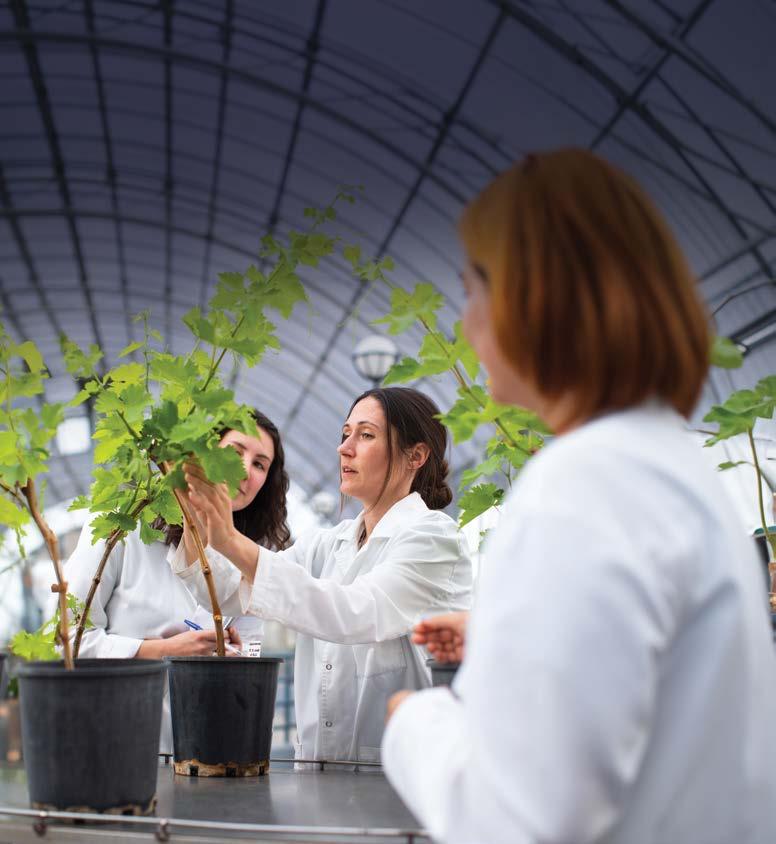
70% of all wine research in Australia is conducted at our Waite campus
Ranked #72 globally for Agricultural Sciences* 72
Australia’s largest teaching winery
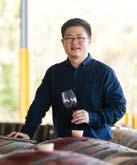
I had heard the University of Adelaide offers one of the best wine degrees in the world when I was doing my bachelor study in Viticulture and Oenology. After I completed my second internship in California, I made up my mind to continue my career in this industry and the University of Adelaide became my first choice to expand my knowledge before stepping further.”
Lester Yang
Master of Viticulture and Oenology Winemaker, Pernod Ricard Winemakers
New Food Innovation Laboratory facilities

The majority of the University of Adelaide's agriculture, food and wine degrees are taught at our Waite campus—the largest agricultural teaching and research precinct in the Southern Hemisphere, and third largest in the world. The campus is also renowned for:
• generating 70% of all wine research conducted in Australia
• operating Australia's largest commercialgrade teaching winery
• industry-standard teaching and research Food Innovation Laboratory.
The knowledge and skills you'll acquire from our agriculture, food and wine degrees are highly informed by industry needs - current, emerging and predicted. Depending on your chosen degree, you could:
• build practical, hands-on skills through multiple internships with industry partners
• learn how to design, formulate, produce, package and market food or wine under real industry conditions
• get experience designing and using industrytransforming technology, like drones, advanced sensing equipment, and electronic apps.
The agriculture, forestry and horticulture industry will see a 10.6% increase in employment by 2026‡.
Employment growth in most agriculture, food and wine roles ranges from stable to moderate, with strong growth predicted for nutrition professionals.
* QS World University Rankings by Subject, 2023 ‡ Australian Government, Labour Market Insights, 2023.
Undergraduate
• Bachelor of Agricultural Sciences
• Bachelor of Food and Nutrition Science
• Bachelor of Food and Nutrition Science (Honours)
• Bachelor of Science
• Bachelor of Science (Honours)
• Bachelor of Science (Advanced)
• Bachelor of Science (Advanced)(Honours)
• Bachelor of Science (Animal Science)
• Bachelor of Viticulture and Oenology Postgraduate coursework
• Master of Economics and Resource Policy
• Master of Food and Nutrition Science
• Master of Global Food and Nutrition Science
• Master of Viticulture and Oenology
• Master of Wine Business
Empower individuals by enhancing their ability to move freely, communicate clearly, and engage more fully in life.
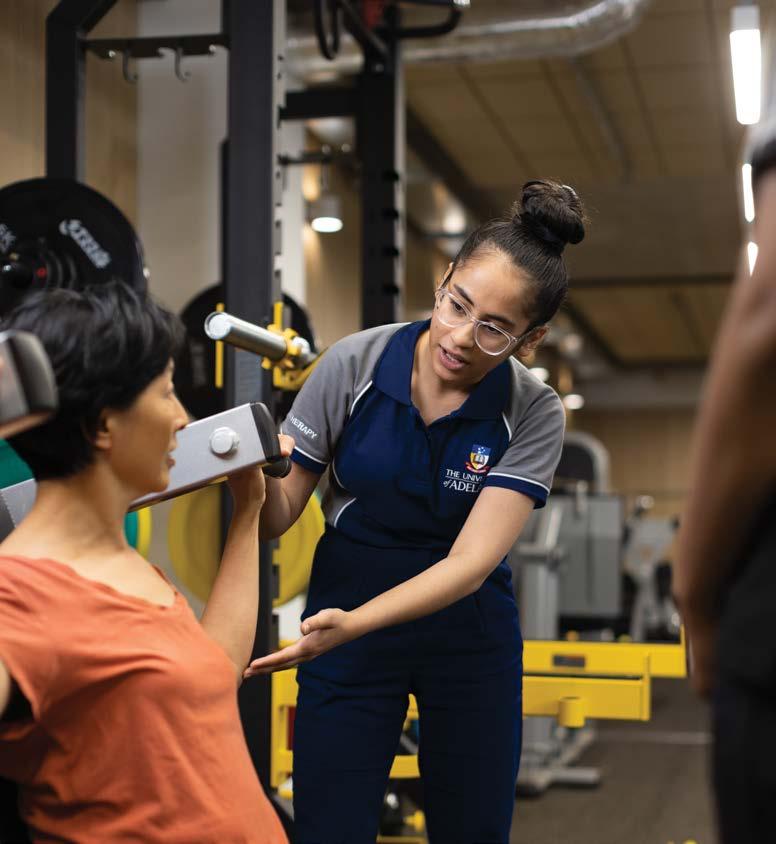
Very strong employment growth predicted (up to 35% by 2026)*
750–1000+ hours of placements

Simulation-led teaching and brand-new facilities

As a student of physiotherapy, speech pathology, or occupational therapy at Adelaide, you’ll study alongside your peers from our other allied health programs. This collaborative study environment will prepare you for future workplaces, where it is common for different disciplines to collaborate and share their unique expertise.
Working with students from the different allied health disciplines will also help you to develop a well-rounded understanding of health care. You’ll approach patient care from a holistic perspective and be a valuable asset in any health care team.
Developed and taught by practising health professionals, our allied health degrees are designed to equip you with the latest knowledge, skills and experience that industry demands.
You’ll perfect your clinical skills in premium facilities that accurately reflect the real-world environments in which you’ll work.
• A state-of-the-art simulation hospital
• Dedicated speech pathology facilities including a voice and sound room
• A fully equipped rehabilitation gym and plinth rooms, including brand-new neuro plinth facilities
• Specialised occupational therapy facilities including a training kitchen, fully furnished sensory room and simulated bathroom.
You’ll spend more than 750 hours honing your skills in a wide variety of real health care settings—including clinical, community and
private practice-based environments—equipping you for careers in a broad range of areas.
Upon completion of their studies, graduates are eligible to register with their relevant professional accrediting body:
• Bachelor of Occupational Therapy (Honours) graduates are eligible to register with the Australian Health Practitioner Regulation Agency (AHPRA) to work as a registered occupational therapist in Australia.
• Bachelor of Physiotherapy (Honours) graduates are eligible to register with the Australian Health Practitioner Regulation Agency (AHPRA) to work as a registered physiotherapist in Australia.
• Bachelor of Speech Pathology (Honours) graduates are eligible for membership with Speech Pathology Australia, and to apply for Provisional Certified Practicing Speech Pathologist status (CPSP).
Physiotherapists, speech pathologists and occupational therapists are currently among the most in-demand professionals by industry, with employment growth in these fields predicted to increase up to 35% by 2026*.
* Australian Government, Labour Market Insights, 2023.
Undergraduate
• Bachelor of Occupational Therapy (Honours)
• Bachelor of Physiotherapy (Honours)
• Bachelor of Speech Pathology (Honours) Degrees
Turn your passion for animals into a rewarding career working with them, whether production animals, wildlife, pets or marine life.
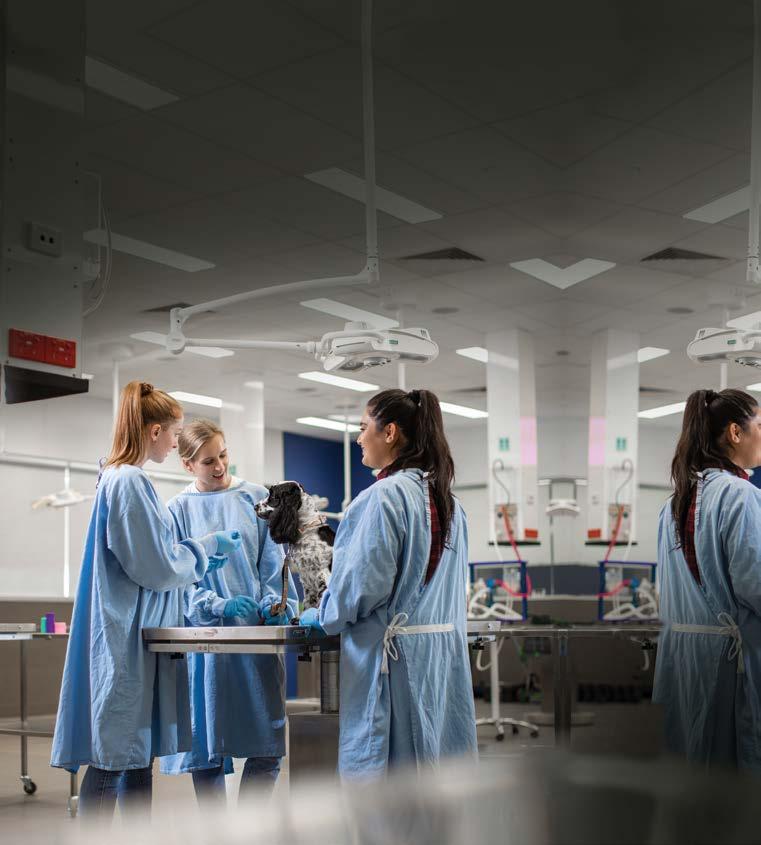
Only university in South Australia offering a degree in Veterinary Bioscience
19% industry growth predicted by 2026*
Ranked in top 51-70 globally in Veterinary Sciences^ 51-70
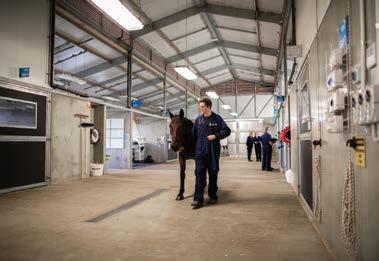

Premium quality, personal attention
Our animal and veterinary sciences degrees are among the world's best, as indicated by our Veterinary Sciences and Marine Sciences programs' global rankings—top-70 and top-100 respectively^.
You’ll join a tight-knit community of high-calibre students in the School of Animal and Veterinary Sciences—the only one of its kind in South Australia. Our educators use real-world experience and practical training in their teaching, with many currently practicing in the veterinary industry.
Learn in stunning, multimillion-dollar facilities
Our animal and veterinary sciences degrees place a strong emphasis on practical, hands-on experience.
Naturally, this includes time spent honing skills externally in real-world industry settings—including on farms, in intensive production facilities, and out in the field. But the exceptional quality of our own facilities ensures you'll also have continual opportunities to master your craft on campus.
These state-of-the-art facilities include our:
• $37M Veterinary Health Centre which services small animals, horses, farm animals and herds
• fully functional livestock farm with cattle, sheep, horses, alpacas, pigs and chickens
• 1600 hectare commercial farm
• $12M Equine Health Centre.
Career prospects
Employment growth ranges from moderate to very strong for professionals working with animals, including veterinarians and veterinary technologists, animal behaviourists, marine biologists and wildlife conservation biologists*.
* Australian Government, Labour Market Insights, 2023.
^ QS World University Rankings by Subject, 2023.
† Good Universities Guide, 2022-23 (Postgraduate Veterinary Science).
Undergraduate
• Bachelor of Agricultural Sciences
Degrees
• Bachelor of Marine and Wildlife Conservation
• Bachelor of Science (Animal Behaviour)
• Bachelor of Science (Animal Science)
• Bachelor of Science (Veterinary Bioscience)
• Bachelor of Veterinary Technology
Postgraduate coursework
• Doctor of Veterinary Medicine
Enhance lives by creating dwellings, buildings, landscape spaces and/or major structures that deliver function, beauty and sustainability.
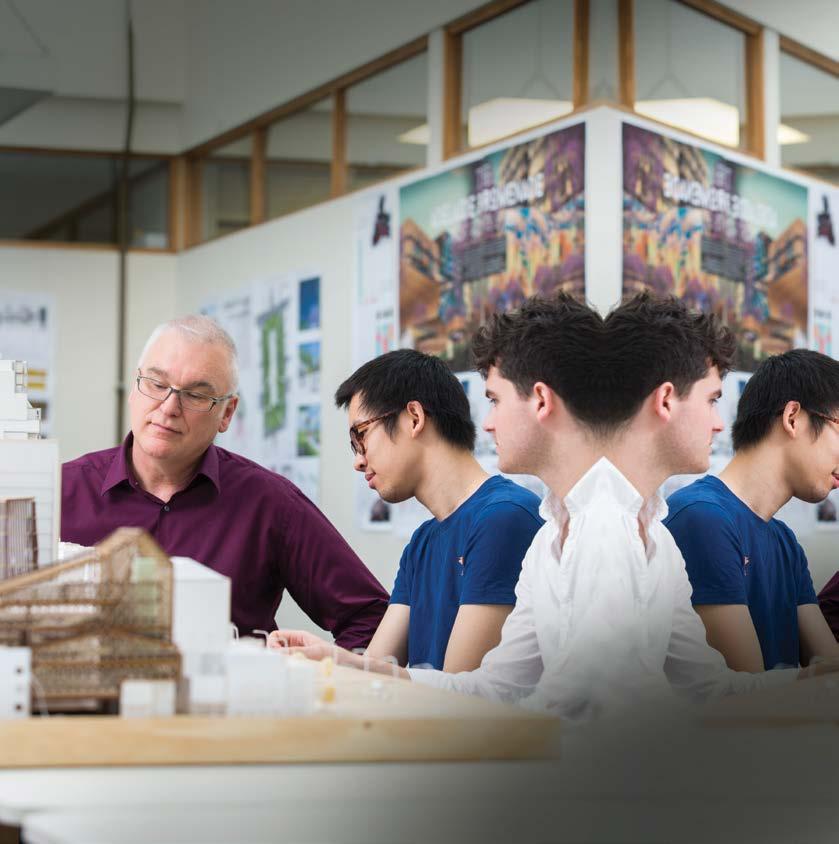
State-of-the-art technology
Employment for Architects and Landscape Architects projected to grow 17% by 2026* Four professional accreditations†
Studying architecture, landscape architecture or construction management at the University of Adelaide will ensure you're highly proficient in the use of all critical technologies driving those industries. The cutting-edge facilities you'll have access to include:
• computer-aided architectural design (CAAD) studios
• a model-making laboratory with laser and foam cutters
Rated five stars for student support^ 5

• 3D scanners/digitisers and modelling systems
• BIM (building information modelling)
• 3D printers.
Many forms of 'experience' will come together during your time with us to ensure that you gain an education—and contemporary, real-world skills—of the highest calibre:
• You'll learn from practising, highly experienced and award-winning industry professionals.
• Your teachers themselves will draw from and pass on to you educational insights gained from our proud history of 60-plus years of experience in architectural training.
• You will travel interstate and overseas as part of your degree to observe and study outstanding structures first-hand.
• And you'll have multiple opportunities throughout your studies to hone your developing skills on real-world projects, including through industry internships.
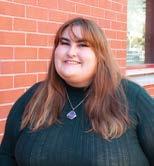
Employment growth for architects, landscape architects, construction managers and architectural engineers ranges from strong to very strong*.
Please note, however, that if you aspire to become a registered architect or landscape architect, you'll need to complete additional postgraduate study. Our Master of Architecture and Master of Landscape Architecture satisfy this requirement.
* Australian Government, Labour Market Insights, 2023.
^ Good Universities Guide, 2022-23 (Undergraduate architecture).
† Australian Institute of Architects; Australian Institute of Landscape Architects; Architectural Practice Board of South Australia; Royal Institution of Chartered Surveyors.
Undergraduate
• Bachelor of Architectural Design
• Bachelor of Construction Management
• Bachelor of Construction Management (Honours)
• Bachelor of Engineering (Honours) (Architectural and Structural)
Postgraduate coursework
• Master of Architecture with Master of Landscape Architecture
• Master of Architecture by coursework
• Master of Construction Management
• Master of Landscape Architecture
• Master of Property
I like being able to design places that people will use on a personal level little things like the placement of a door, or the light switch or window, can change the entire space and feeling of a building. Choosing to study my Masters at the University of Adelaide has become one of the best choices I've made in a while. I'm really happy about the connections I've made here, as well as the environment where I get to learn.”
Katherine Queen Master of Architecture
Careers that fall within the arts and humanities banner are concerned with how society works; how we communicate; and how we can thrive.
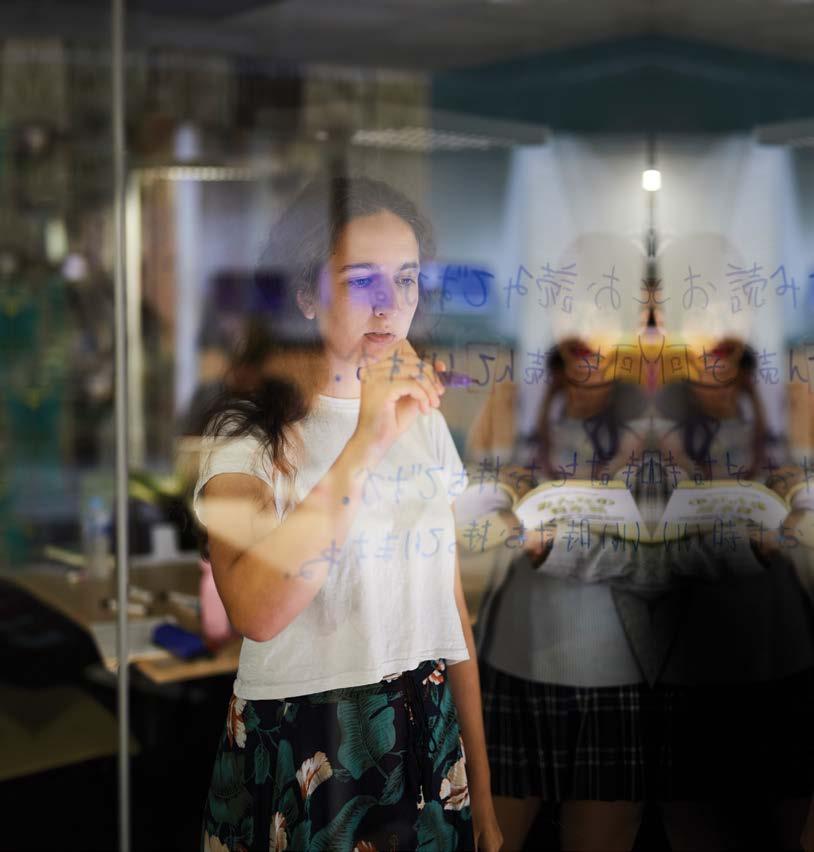
Ranked 51-90 globally in Classics and Ancient History*
Internships for real-world experience
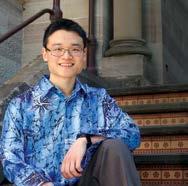
Employment in ‘Arts and Recreation Services’ projected to grow 10% by 2026^

Our arts and humanities degrees cover a huge range of interests and human activity—from the creative arts, languages, history and media, to criminology, international development, environmental policy and politics. They can equip you to succeed in a wide variety of valuable and rewarding roles, such as in:
• government and public service
• social planning and policy development
• foreign affairs and diplomacy
• festival management and cultural curation
• crime prevention
• humanitarian work
• the creative industries
• journalism.
The University of Adelaide presents an ideal location for arts study. Our main campus' position in the heart of our city's central business district and cultural precinct puts a vast number of related bodies and organisations—government, private sector and not-for-profit—within an easy walk.
Capitalising on this advantage, you'll have ample opportunity to deepen your real-world understanding through hands-on experience with one of these organisations in an extended internship.
Studying at the University of Adelaide enables me to attain a high quality of education while making meaningful connections. The friendliness of staff and the comfortable environment of the University help me to excel in my studies.”
Jamie Ling Bachelor of Arts
Employment growth for arts- and humanities-related roles range broadly from stable to very strong^.
* QS World University Rankings by Subject, 2023.
^ Australian Government, Labour Market Insights, 2023.
Undergraduate
• Bachelor of Arts
• Bachelor of Arts (Advanced)
• Bachelor of Criminology
• Bachelor of Environmental Policy and Management
• Bachelor of International Development
• Bachelor of International Relations
• Bachelor of Languages
• Bachelor of Media
• Bachelor of Philosophy, Politics and Economics
• Bachelor of Sociology
Postgraduate coursework
• Master of Curatorial and Museum Studies
• Master of Environmental Policy and Management
• Master of Immersive Media Technologies
• Master of International Security
• Master of Media (Strategic Communication)
• Master of Public Policy
Combining science, engineering and technology, biomedical scientists and biotechnologists create new ways to feed, fuel and heal the world.
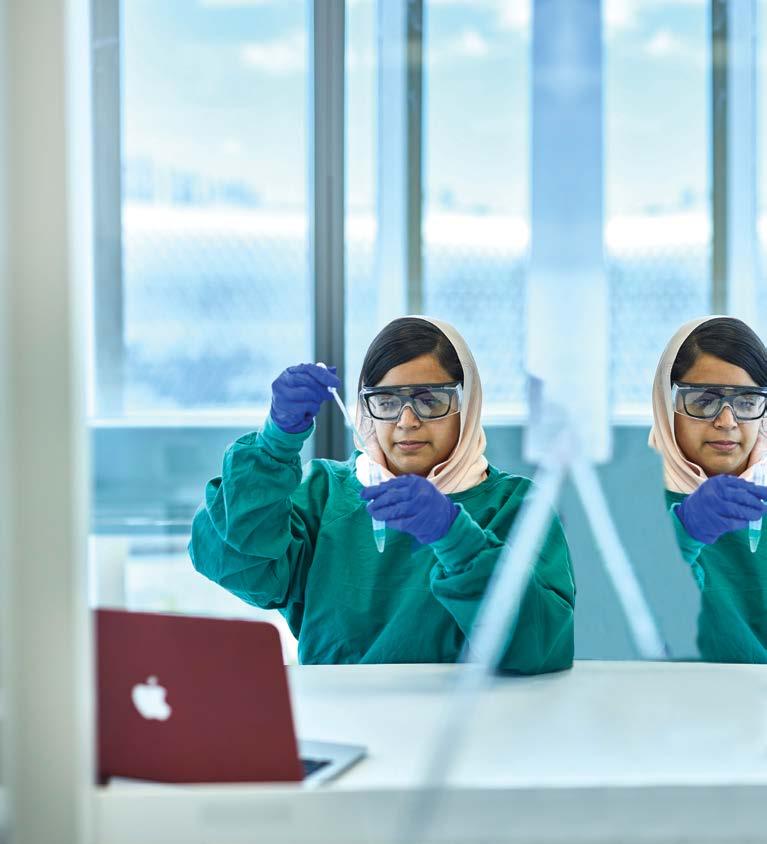
Ranked #92 globally for Life Sciences and Medicine*
Australian biotechnology sector has grown by 43% since 2019^
Rated five stars for student support† 5

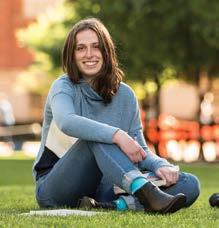
Studying biomedical science and/or biotechnology at the University of Adelaide will give you access to world-leading technology and subject matter experts, including Australia’s first CRISPR genome editing facility—which is helping our researchers understand the pathology of genetic diseases and disorders, such as muscular dystrophy and epilepsy.
Be surrounded by world-class research
The University's biological sciences research has been rated world standard or above in the Australian Government's last four consecutive Excellence in Research for Australia assessments**.
This means you'll have the opportunity to learn from—and potentially be involved in— explorations at the forefront of discovery. This could include, for example:
• vaccine and pharmaceutical development
• 3D bioprinting innovations
• AI-assisted microbiological diagnosis.
It’s exciting to be a first year and already contributing to research projects at the forefront of discovery.”
Lucinda Duxbury Bachelor of Science (Advanced)
Employment growth for roles in biomedical science and biotechnology ranges from moderate to strong^^.
* QS World University Rankings by Subject, 2023
^ AusBioTech, 2022
† Good Universities Guide, 2023 (Postgraduate Sciences)
** Excellence in Research for Australia, Australian Government, 2018
^^ Australian Government, Labour Market Insights, 2023.
Degrees
Undergraduate
• Bachelor of Biotechnology
• Bachelor of Biotechnology (Honours)
• Bachelor of Engineering (Honours) (Electrical and Electronic)
• Bachelor of Engineering (Honours)(Mechanical)
• Bachelor of Science
• Bachelor of Science (Honours)
• Bachelor of Science (Advanced)
• Bachelor of Science (Advanced)(Honours)
• Bachelor of Science (Biomedical Science) Postgraduate coursework
• Master of Biopharmaceutical Engineering
• Master of Biotechnology (Biomedical)
• Master of Biotechnology (Biomedical)(Advanced)
Only Australian University with ACEEU accreditation^
Business leaders have the skills and judgement to successfully commercialise new ideas, run organisations, and drive meaningful change.
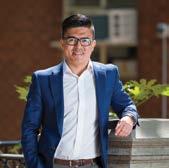
My degree significantly strengthened my analytical, research and problemsolving skills, as well as being able to communicate effectively. These are exactly the types of skills highly sought-after by employers.”
Yahdullah Haidari Bachelor of Economics (Honours)
In top 5% of business schools in the world**
In 1902, the University of Adelaide became the first university in Adelaide to offer degrees in business.
This means your education here will be enriched by our 120 years of collective learnings and insights, and a focus on quality that still has us ranked among the world's top 150 universities for accounting and finance*. We're also ranked #1 in South Australia for economics, accounting and finance*.
Build the mindset to chart your own path
91% of graduates employed full-time†
Kickstart your entrepreneurial journey with our ThincLab


As Australia’s #1 ranked university for entrepreneurship and engagement^, we’ll ensure virtually everything you do in your business studies builds your capacity to innovate and make things happen.
• All our business degrees include an entrepreneurship course, to boost your personal development and professional growth.
• All business degrees give you the flexibility to pursue areas of particular interest or passion.
• Gain expertise in management, international business or digital marketing and communications.
• You’ll also have the opportunity to hone your new-venture-building skills in our eChallenge program, and ThincLab business incubators.
• And you’ll get the chance to gain priceless realworld experience through industry internships.
Employment growth for the majority of business and management roles ranges broadly from stable to strong, with very strong growth predicted for ICT (information and communications technology) business and systems analysts†.
* QS World University Rankings by Subject, 2023.
^ Accreditation Council for Entrepreneurial and Engaged Universities.
** Association to Advance Collegiate School of Business (AACSB).
† QILT GoS-L, 2022 – UG and PG graduates employed 3 years after graduating, Business School-specific data.
Undergraduate
• Bachelor of Business
• Bachelor of Commerce
• Bachelor of Economics
• Bachelor of Economics (Advanced)
• Bachelor of Finance and Banking
• Bachelor of Philosophy, Politics and Economics
• Bachelor of Project Management
Postgraduate coursework
• Executive Master of Business Administration
• Master of Accounting
• Master of Accounting and Finance
• Master of Business Administration
• Master of Business Administration (International)
• Master of Business Analytics
• Master of Economics and Resource Policy
• Master of Finance
• Master of Finance and Business Economics
• Master of International Management
• Master of Marketing
• Master of Professional Accounting
• Master of Project Management
• Master of Project Management (Complex Systems)
• Master of Technology Innovation and Leadership
• Master of Wine Business
Ranked #7 in the world for Artificial Intelligence*
Work in the defence, cyber and space industries offers a highly rewarding blend of challenge, discovery and purpose.
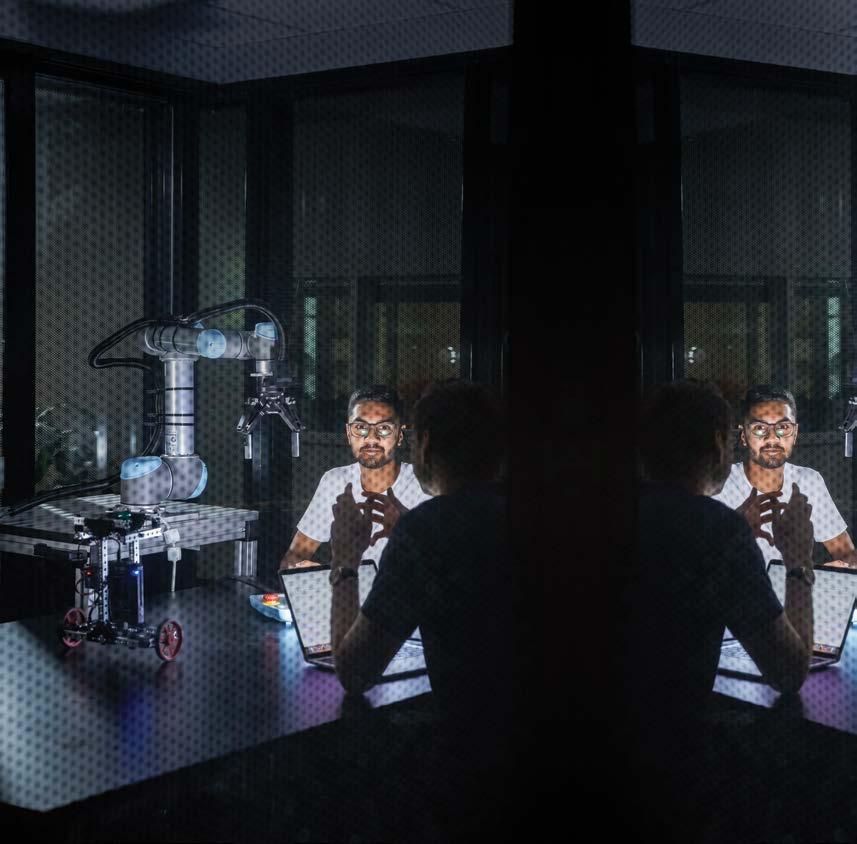
Strong employment predicted (16.8% by 2026)**
An incredibly industryconnected environment
The University of Adelaide provides one of the most stimulating environments in the world for study related to the defence, cyber or space industries. Our main city campus stands literally next door to Lot Fourteen, Adelaide's thriving innovation and technology precinct, which includes:
• Our University's own world-leading Australian Institute of Machine Learning (AIML), the largest machine learning research centre in Australia
Ranked in top 75 globally for Automation and Control^
Australian Space Agency to generate 20,000 jobs by 2030†

• The Australian Cyber Collaboration Centre (A3C), in which we collaborate with the Australian Government's Defence Science and Technology group and others
• The Australian Space Agency, Space Discovery Centre, and Mission Control Centre.
Other organisations with a Lot Fourteen presence include Microsoft Azure Space, Amazon, Inovor Technology, and the Massachusetts Institute of Technology (MIT) bigdata Living Lab—all of whom our AIML partners with in ongoing real-world research.
Huge range of degrees to choose from
Making the most of this remarkable environment, we offer a number of different degrees that can start you on your path in the defence, cyber or space industries. These range from data analytics, computer science and information technology programs, to engineering, space science and astrophysics, and mathematical sciences. We also offer South Australia's only specialist aerospace engineering degree. And whatever direction you choose, you'll have multiple opportunities to gain practical experience through workplace projects and internships.
Employment growth for the majority of defence, cyber and space roles range broadly from stable to very strong**.
Additionally, Adelaide holds the highest share of Australia’s overall civil space pipeline and, as such, our city is home to one of the highest concentrations of space and defence-related organisations in the country‡.
* US News Best Global Universities Rankings, 2022-23.
^ Academic Ranking of World Universities by Subject, 2023.
† Australian Space Agency, 2021.
** Australian Government, Labour Market Insights, 2023. ‡ Invest SA, 2023.
Undergraduate
• Bachelor of Applied Data Analytics
• Bachelor of Computer Science
• Bachelor of Computer Science (Advanced)
• Bachelor of Engineering (Honours)(Civil)
• Bachelor of Engineering (Honours) (Electrical and Electronic)
• Bachelor of Engineering (Honours)(Mechanical)
• Bachelor of Engineering (Honours)(Software)
• Bachelor of Information Technology
• Bachelor of Mathematical Sciences
• Bachelor of Mathematical Sciences (Advanced)
• Bachelor of Mathematical Sciences (Honours)
• Bachelor of Mathematical and Computer Sciences
• Bachelor of Science
• Bachelor of Science (Honours)
• Bachelor of Science (Advanced)
• Bachelor of Science (Advanced)(Honours)
• Bachelor of Science (High Performance Computational Physics)(Honours)
• Bachelor of Science (Space Science and Astrophysics)
Postgraduate coursework
• Master of Artificial Intelligence and Machine Learning
• Master of Computer Science
• Master of Computing and Innovation
• Master of Cyber Security
• Master of Data Science
• Master of Engineering (Aerospace)
• Master of Engineering (Chemical)
• Master of Engineering (Civil and Environmental)
• Master of Engineering (Civil and Structural)
• Master of Engineering (Electrical)
• Master of Engineering (Electronic)
• Master of Engineering (Mechanical)
• Master of Engineering (Mechatronic)
• Master of Engineering (Mining)
• Master of Materials Engineering
• Master of Maritime Engineering
Australia's #1 Dental School*
Enhance people's confidence and quality of life by keeping their teeth and gums healthy.

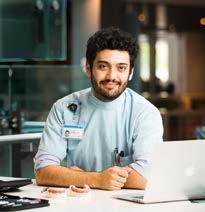
I chose to study at the University of Adelaide because the Dental School is ranked 33rd in the world. I knew that if given the opportunity to study at the University, the high standard of clinical education would set me up well for a career in oral health."

Adelaide is one of the top 33 universities in the world in which to study dentistry and oral health.
We have the #1 dental school in Australia and deliver an unrivalled learning experience backed by more than 100 years' teaching and research expertise—giving our graduates a competitive edge in a flexible and rewarding profession.
Our world standing in dentistry and oral health ensures you will be learning side-by-side with students of the highest calibre. But that's only the start. You'll be guided by educators and researchers who are international leaders in their fields. You’ll have access to state-of-the-art technology in our simulation training facilities.
You’ll build your skills working with real patients in multiple clinical settings—including our on-site Adelaide Dental Hospital. And you’ll benefit from our strong relationships and partnerships with the dental and oral health industry.
Dental and oral health professionals are well paid and in demand, and job prospects are only expected to increase† There are also some exciting technological advances on the industry's horizon. These include the use of:
• AI, augmented reality and virtual reality
• Laser treatment, promising little-to-no pain, faster healing and reduced infection risk
• 3D-printed dental prosthetics.
* QS World University Rankings by Subject, 2023.
† Australian Government, Labour Market Insights, 2023.
Undergraduate
• Bachelor of Dental Surgery
• Bachelor of Oral Health
Postgraduate coursework
• Doctor of Clinical Dentistry
• Graduate Diploma in Forensic Odontology
• Graduate Diploma of Oral Health Science
Economics is a dynamic study which unveils the forces driving the behaviour of individuals and firms, government policies, and markets. It empowers you to navigate a complex and interconnected world.

Only Australian university with ACEEU accreditation*
Work-integrated learning with industry experience
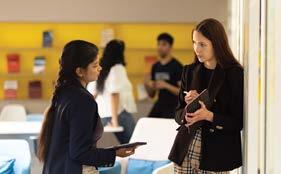
Be surrounded by world-class research
Economics teaching at the University of Adelaide began in 1901, making us one of the world’s earliest providers of tertiary economics courses*.
as complex problem-solving, critical and logical thinking, strong numeracy, and analytical skills.
Strong employment growth predicted (10.7% by 2026)^

Your economics experience at the University of Adelaide will be informed and supported by world-class research in the discipline. We explore a diverse range of areas across economic and public policy; economic growth development and trade; people, behaviour, and choices; agrifood water and environmental systems; and econometric methods and applications.
In the Australian Government’s most recent Excellence in Research for Australia assessment**, our research was rated ‘above world standard’ in:
• Economic Theory
• Applied Economics
And it was recognised as ‘well above world standard’ in:
• Mathematical Sciences
• Statistics
• Philosophy.
Our staff bring their fundamental and applied research topics and skills to the classroom and our extensive government, industry, and disciplinary networks ensure our students receive ample visibility and abundant opportunities to succeed in the professional world.
Build the skill set to excel in diverse fields
Economics is a unique discipline that allows you to understand how the world works as an intricate system. Studying economics at the University of Adelaide helps you develop integral skills such
At the School of Economics and Public Policy, we equip our students with a comprehensive skill set that is applicable to various professions and industries. With a strong emphasis on analytical thinking, critical reasoning, and data analysis, our graduates possess highly soughtafter abilities in today's job market. These skills empower you to explore diverse fields including international trade and finance, food and natural resources, health and education, growth and development, money and banking, as well as environment and energy.
Economics graduates develop analytical thinking and quantitative skills which are highly rewarded in the labour market. The earnings of economics graduates are higher than in most other fields of study, including business studies†. An economics degree is a gateway to success in a diverse range of sectors.
* Accreditation Council for Entrepreneurial and Engaged Universities (ACEEU).
^ Australian Government, Labour Market Insights, 2023.
** Excellence in Research Australia, 2018-19.
Undergraduate
• Bachelor of Economics
• Bachelor of Economics (Advanced)
• Bachelor of Philosophy, Politics and Economics
Postgraduate coursework
• Master of Economics and Resource Policy
• Master of Public Policy Degrees
These critical sectors underpin all areas of society—from powering our cities and vehicles, to the smartphones in our pockets.
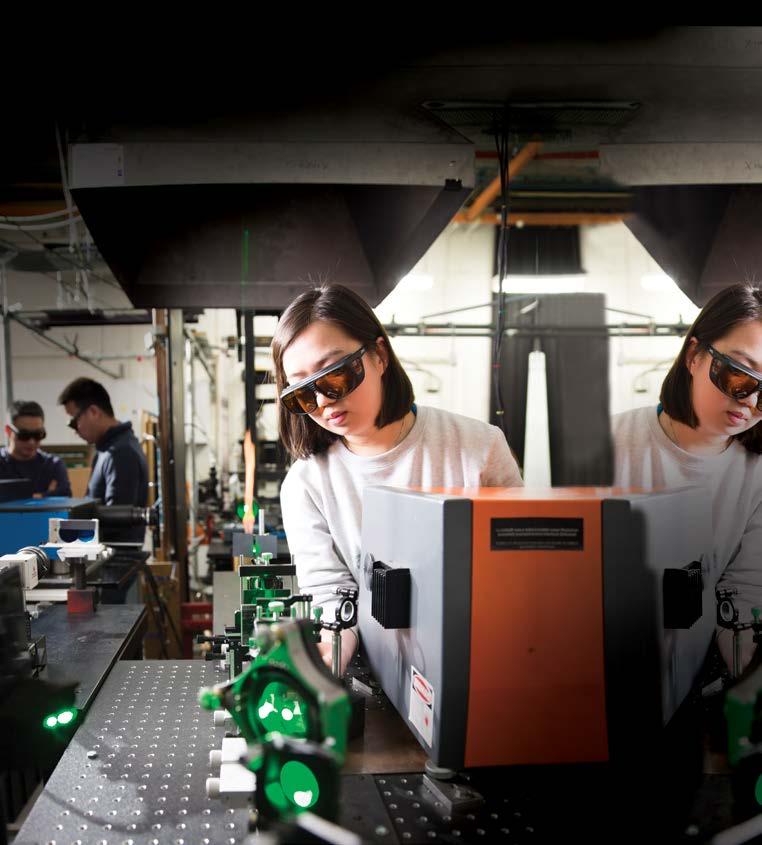
Ranked #15 globally for Mineral and Mining Engineering*
Steady employment predicted (5.9% by 2026)†
Australia’s only university teaching mine automation
Through our Institute for Sustainability, Energy and Resources, the University of Adelaide has led Australia in the development of fully integrated, AI-driven resource value chains. We're helping many energy, mining and resources companies incorporate or enhance self-learning extraction-and-processing control systems to extract greater value from increasingly complex resources - faster, safer and at lower cost. And we can pass that knowledge on to you.
Our recent industry experience includes collaborating with:
• BHP, OZ Minerals and others on mining and processing control platforms
• Boart Longyear, a global drilling giant, to allow generation of geological information in close to real time, directly at the drill site
• Orica, an Australia-based multinational commercial explosives and blasting systems specialist, to apply digitally integrated AI to their blast mode.
Full-spectrum energy expertise
We also have significant, proven expertise in all areas of the energy sector, with experience advising on—and leading—projects relating to:
• optimal power system and resources planning, modelling and operation
• renewable energy generation and hybrid systems
• energy storage, including advanced batteries and underground hydrogen
• critical minerals, advanced energy materials and catalysts
• microgrids and electric vehicles infrastructure.
We're highly capable in the areas of environmental sustainability and social licence. And again, we can pass on all this knowledge to you.
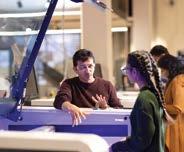
Employment growth for the majority of energy, mining and resources roles range broadly from moderate to very strong, with the industry projected to grow by up to 5.9% by 2026†.
^ QS World University Rankings by Subject, 2023.
* Academic Ranking of World Universities by Subject, 2023.
† Australian Government, Labour Market Insights, 2023.
Undergraduate
• Bachelor of Engineering (Honours)(Civil)
• Bachelor of Engineering (Honours) (Electrical and Electronic)
• Bachelor of Engineering (Honours) (Environmental and Climate Solutions)
• Bachelor of Engineering (Honours)(Mining)
• Bachelor of Engineering (Honours)(Petroleum)
• Bachelor of Engineering (Honours)(Petroleum) with major
• Bachelor of Science
• Bachelor of Science (Honours)
• Bachelor of Science (Advanced)
• Bachelor of Science (Advanced)(Honours)
• Bachelor of Science (Mineral Geoscience) Postgraduate coursework
• Master of Engineering (Aerospace)
• Master of Engineering (Chemical)
• Master of Engineering (Civil and Environmental)
• Master of Engineering (Civil and Structural)
• Master of Engineering (Electrical)
• Master of Engineering (Electronic)
• Master of Engineering (Mechanical)
• Master of Engineering (Mechatronic)
• Master of Engineering (Mining)
• Master of Materials Engineering
• Master of Petroleum Engineering Degrees
From the massive infrastructure supporting our cities to the technology that heals, protects and connects us, engineers make modern life work.
Ranked #25 globally for Electrical and Electronic Engineering*
Four engineering disciplines ranked in the world’s top 50^

As a University of Adelaide engineering student you'll be part of an incredibly high-achieving community. The overall quality of our broad suite of engineering programs is recognised by Times Higher Education (2023) as being among the top 100 in the world**. And we've achieved that same level of global recognition from Academic Ranking of World Universities (2023) in no fewer than four individual disciplines, with our Mining and Mineral Engineering subject area ranked #15 globally^.
Employment growth for the majority of engineering roles ranges broadly from stable to very strong††, with STEM jobs predicted to grow nearly twice as fast as other occupations‡.
* US News Rankings of Best Global Universities by Subject, 2023.
^ Academic Ranking of World Universities by Subject, 2023.
** THE World University Rankings by Subject, 2023.
†† Australian Government, Labour Market Insights, 2023.
‡ Department of Employment and Workplace Relations, Australian Government, 2020
Undergraduate
• Bachelor of Construction Management
Based at our main campus in the heart of the city, our engineering facilities are state-of-theart, and include our:
• Collaborative Design Facility
• Creation and Fabrication studios
• 3D Prototyping Lab
• Control, Automation, Robotics and Mechatronics Lab
• Chemistry and Pharmaceutical engineering labs
• Acoustic and Vibrations labs.
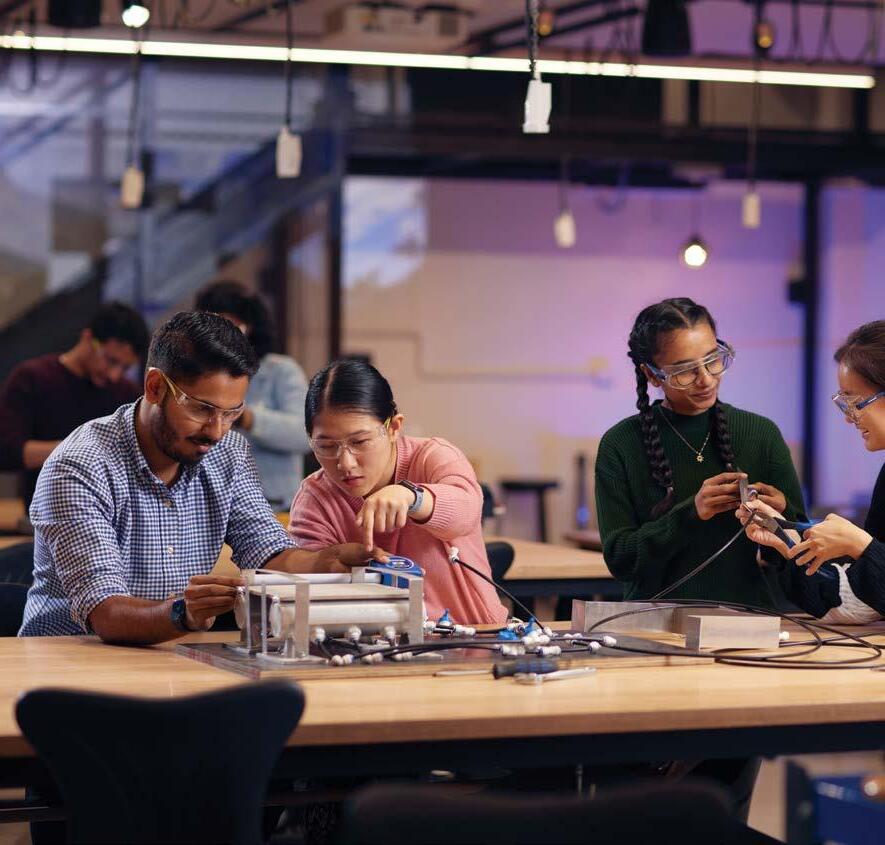
• Extraterrestrial Environmental Simulation (EXTERRES) laboratory.
Additionally, our deep industry connections will link you to the professional world. You’ll have exciting internship opportunities; key industry figures will guide in-class projects; and leading employers will join you on campus for networking events.
Plus, in your final year, you’ll complete a major project relevant to your specialisation to showcase at Ingenuity—South Australia’s largest STEM expo.
Graduates of our Engineering programs can apply for professional membership with Engineers Australia—the peak body for engineering in Australia, and whose mutual recognition agreements with reciprocal organisations overseas ensure your qualifications can be recognised wherever your career takes you.
• Bachelor of Engineering (Honours) (Architectural and Structural)
• Bachelor of Engineering (Honours)(Chemical)
• Bachelor of Engineering (Honours)(Civil)
• Bachelor of Engineering (Honours) (Electrical and Electronic)
• Bachelor of Engineering (Honours)Engineering Pathway
• Bachelor of Engineering (Honours) (Environmental and Climate Solutions)
• Bachelor of Engineering (Honours)(Mechanical)
• Bachelor of Engineering (Honours)(Mining)
• Bachelor of Engineering (Honours)(Petroleum)
• Bachelor of Engineering (Honours)(Petroleum) with major
• Bachelor of Engineering (Honours)(Software) Postgraduate coursework
• Master of Biopharmaceutical Engineering
• Master of Engineering (Aerospace)
• Master of Engineering (Chemical)
• Master of Engineering (Civil and Environmental)
• Master of Engineering (Civil and Structural)
• Master of Engineering (Electrical)
• Master of Engineering (Electronic)
• Master of Engineering (Mechanical)
• Master of Engineering (Mechatronic)
• Master of Engineering (Mining)
• Master of Maritime Engineering
• Master of Materials Engineering
• Master of Petroleum Engineering
Environment and sustainability professionals work to preserve planetary health, tackle climate change and secure water and energy supplies.
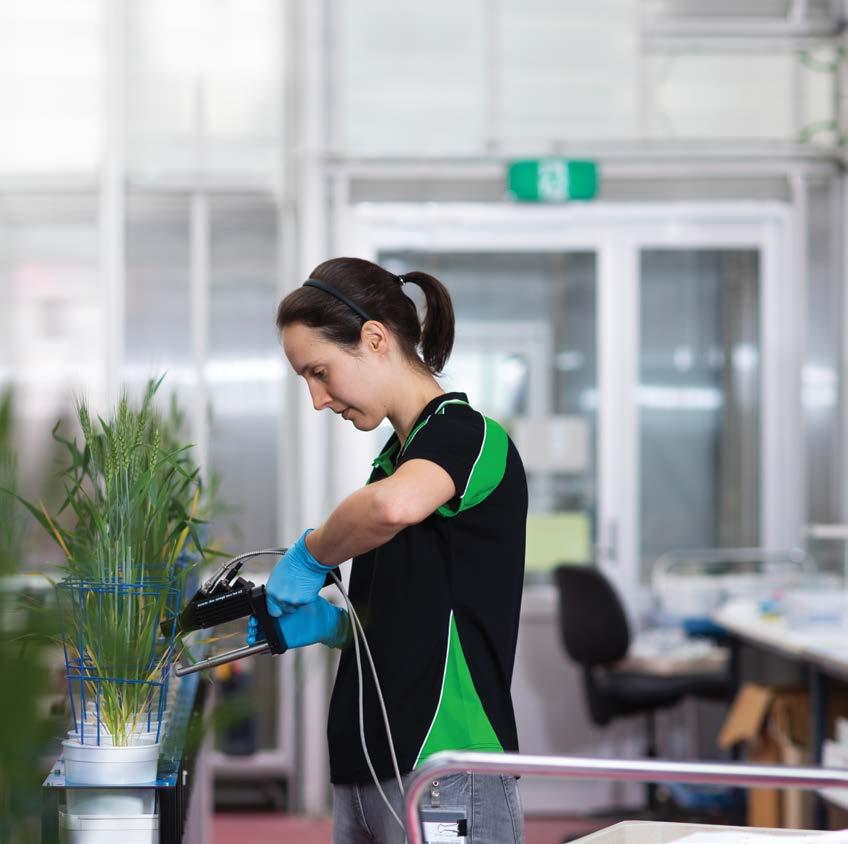
The University of Adelaide is internationally renowned for its capability in all scales of spatial imaging and environmental management, from unmanned aircraft to satellites and spatial big-data analysis.
Here you'll learn how to use advanced technology such as remote sensing, geographic information systems, ecological modelling tools and multi-objective decision support systems to understand and manage any environment—natural or managed, landbased, aquatic or marine.
We're also widely recognised for our multidisciplinary expertise in water systems management. Our world-leading researchers are highly experienced in developing bespoke technology and scientific solutions to optimise— both environmentally and commercially—water use, supply and treatment. Immersed in this learning environment, you could build valuable knowledge and skills in:
• water supply and distribution system planning, design and operation
• rainfall runoff modelling
• river health prediction and management
• predicting, modelling and testing water demand, quality and availability
• soil settlement prediction and microbiology studies
• wastewater treatment and contaminant removal
• environmental remediation.
Employment growth for the majority of environment- and sustainability-related roles ranges broadly from stable to very strong†, with STEM jobs predicted to grow nearly twice as fast as other occupations**.
* Academic Ranking of World Universities by Subject, 2023.
^ QS World University Rankings by Subject, 2023. † Australian Government, Labour Market Insights, 2023.
**Department of Employment and Workplace Relations, Australian Government, 2020.
Undergraduate
• Bachelor of Architectural Design
• Bachelor of Construction Management
• Bachelor of Construction Management (Honours)
• Bachelor of Engineering (Honours) (Architectural and Structural)
• Bachelor of Engineering (Honours)(Chemical)
• Bachelor of Engineering (Honours)(Civil)
• Bachelor of Engineering (Honours) (Electrical and Electronic)
• Bachelor of Engineering (Honours) (Environmental and Climate Solutions)
• Bachelor of Engineering (Honours)(Mechanical)
• Bachelor of Environmental Policy and Management
• Bachelor of Marine and Wildlife Conservation
• Bachelor of Science
• Bachelor of Science (Honours)
• Bachelor of Science (Advanced)
• Bachelor of Science (Advanced)(Honours)
• Bachelor of Science (Mineral Geoscience) Postgraduate coursework
• Master of Architecture with Master of Landscape Architecture
• Master of Architecture by coursework
• Master of Construction Management
• Master of Engineering (Chemical)
• Master of Engineering (Civil and Environmental)
• Master of Engineering (Civil and Structural)
• Master of Engineering (Electrical)
• Master of Engineering (Electronic)
• Master of Engineering (Mechanical)
• Master of Engineering (Mechatronic)
• Master of Environmental Policy and Management
• Master of Landscape Architecture
• Master of Property

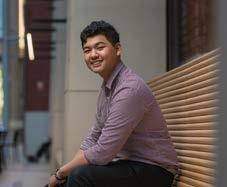
Health and medical science professionals work to improve individuals' and populations' health by preventing disease and promoting wellbeing.
Ranked 71 globally for Clinical and Health*
92
Ranked 92 globally for Life Sciences and Medicine^
The University of Adelaide provided me so many opportunities to find my passion and drive for future endeavours. From the wide range of courses and topics to learn, studying at university has been a great life experience.”
Adrian Duran
Strong employment growth predicted (16% by 2026)†

The University of Adelaide's rich history of world-class health education and research spans more than 135 years. We conduct breakthrough health research—consistently ranked in the top 1% of universities internationally—that leads to new treatments, new ways of thinking, and the development of new health policies.
Our health and medical science degrees are the perfect place to start—or advance— your career in health.
The University of Adelaide has robust and extensive partnerships across the South Australian health and medical sector. Our programs are designed in-line with industry best-practice and requirements, providing you with relevant and up-to-date knowledge. Networking opportunities allow you to establish valuable professional connections, and some programs also provide industry or research placements. For example, our undergraduate degrees in health and medical sciences have formal placement partnerships with respected institutions including SA Health, CMAX, Kidsafe SA, Safework SA, Sonder, GPEx, the Royal Australasian College of Surgeons and others.
These partnerships cultivate a dynamic learning environment and empower our students to emerge as well-rounded health care professionals, ready to navigate the ever-evolving health landscape.
Health is one of Australia's largest and fastest growing industries, with 16% industry growth predicted by 2026†. With a degree in Health and Medical Sciences, you’ll gain extensive, readily transferable, and highly sought-after skills— preparing you for a wide variety of health careers.
This includes in:
• medical research
• public health
• nutrition science
• health policy
Bachelor of Health and Medical Sciences (Honours) Undergraduate
• diagnostics and pathology laboratory work
• pharmaceutical and biotechnology companies.
* Times Higher Education World Rankings by Subject, 2024.
^ QS World University Rankings by Subject, 2023.
† Australian Government, Labour Market Insights, 2023.
Degrees
• Bachelor of Health and Medical Sciences
• Bachelor of Health and Medical Sciences (Advanced) Postgraduate coursework
• Graduate Certificate in Alcohol and Drug Studies
• Graduate Diploma in Addiction and Mental Health
• Master of Biostatistics
• Master of Minimally Invasive Surgery
• Master of Public Health
• Master of Science in Addiction Studies
Understand humanity's complex and fascinating mix of cultures, values and beliefs to enhance contemporary and future society.
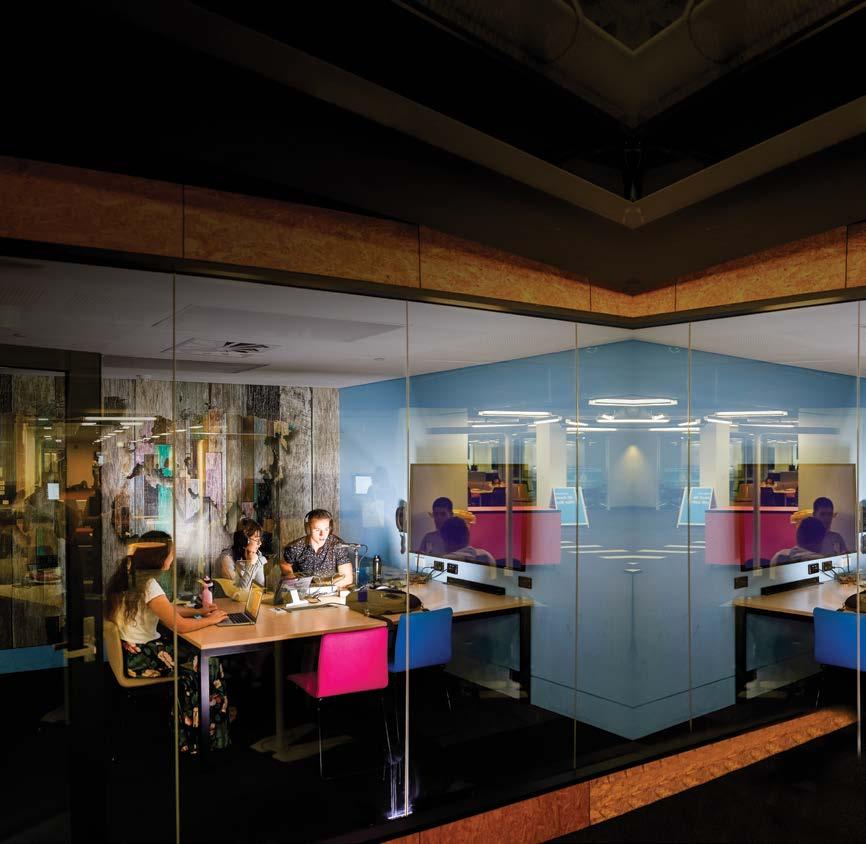
Ranked top 51-100 globally in Development Studies*
Ranked top 150 globally in Anthropology*
Whether you’re looking to explore human experience through creative expression, critical analysis and interpretation of cultural artifacts and texts. Or investigate how people create and live in social structures, institutions, and how these interact with the world across time, space, and cultural, political, and social contexts.
Both Humanities and Social Sciences offer a diverse range of subjects for you to explore, including: philosophy, history, literature, media and languages, sociology, anthropology, geography, politics, gender and work studies, criminology, and development studies.
The University of Adelaide presents an ideal location for your study. Our main campus's position in the heart of our city's central business district and cultural precinct puts a vast number of related bodies and organisations—government, private sector and not-for-profit—within an easy walk.
Ranked top 200 globally in Geography*

You’ll be able to explore the ideas, values and practices that shape the world—including deep insights into social justice, equality, crime, political practice and cultural and social membership—and how to apply this knowledge to gain deep understanding of the past, the present, and the future of our kind.
Our humanities and social sciences degrees can equip you for wide range of valuable and rewarding roles, tackling some of society's great challenges.
This includes in:
• social policy impact assessment and planning
• natural resource management
• corrections systems
• immigration and foreign affairs
• fraud investigation
• housing and health services
• disability advocacy and support
• youth development.
Careers in the humanities and social sciences are predicted to grow by almost 9% by 2026†.
These roles involve developing solutions to humanity’s most pressing challenges—and many are only just emerging. These include dealing with climate change, resource scarcity, pandemics, international terrorism, securing global health and cybersecurity, how we handle artificial intelligence, and making the world safe for human difference.
* QS World University Rankings by Subject, 2023. † Australian Government, Labour Market Insights, 2023.
Degrees
Undergraduate
• Bachelor of Arts
• Bachelor of Arts (Advanced)
• Bachelor of Criminology
• Bachelor of Environmental Policy and Management
• Bachelor of International Development
• Bachelor of International Relations
• Bachelor of Languages
• Bachelor of Media
• Bachelor of Philosophy, Politics and Economics
• Bachelor of Sociology
Postgraduate coursework
• Master of Curatorial and Museum Studies
• Master of Environmental Policy and Management
• Master of Immersive Media Technologies
• Master of International Security
• Master of Media (Strategic Communication)
• Master of Public Policy
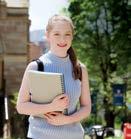
Studying the Bachelor of Criminology at the University of Adelaide has allowed me to learn about different areas of crime and deviance from both a social and scientific perspective. My degree has increased my knowledge in an area which I’m fascinated in, making my life at university enjoyable and rewarding.”
Gabriella Ker Bachelor of Criminology (minor in Psychology)
Legal professionals build outstanding critical thinking and leadership qualities, equipping them for success throughout society.
Ranked in top 125 globally for Law*
8 partnerships with top overseas universities^

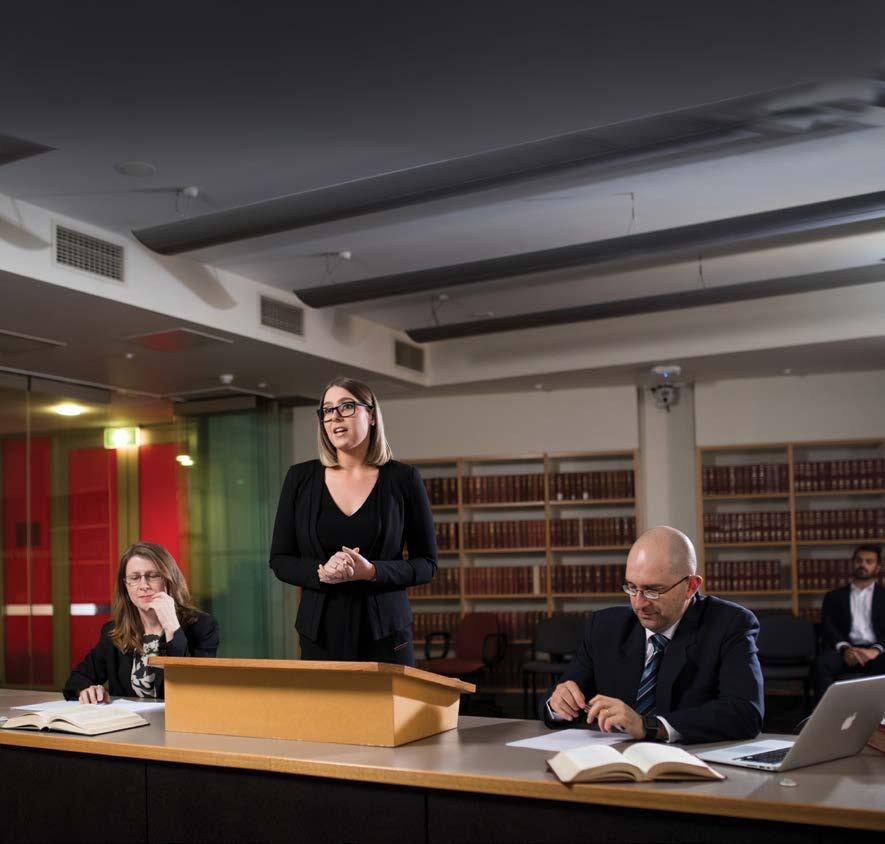
Join a rich culture of success
The Adelaide Law School was established in 1883, making it Australia’s second-most experienced law educator. In our 140 years of history we’ve shaped countless future leaders who’ve gone on to enjoy success not only in the legal profession, but politics, international business, diplomacy, health, policy and the media. Our alumni include:
• Australia’s first female Supreme Court judge and state governor, Dame Roma Mitchell, AC
• Australia’s first female Foreign Affairs Minister, the Hon. Julie Bishop, MP
• former Premier of South Australia the Hon. Jay Weatherill, AO.
Gain vast real-world experience
Adelaide Law School operates five free legal advice clinics for use by the local community, providing fantastic opportunities for you to sharpen your skills working on real legal matters in your final year of study. Places in these clinics are limited and are subject to an application process. These include the:
• Adelaide Legal Outreach Services, advising on child support, family matters, fines, contract issues, and criminal law
• Magistrates Court Legal Advice Service, assisting with minor civil disputes
• Equal Opportunity Commission Legal Advice, advising on discrimination, harassment and victimisation
• Entrepreneur and Venture Advice Clinic, providing legal support to individuals and small-to medium enterprises related to their businesses
• Administrative Appeals Legal Advice Service, supporting clients wishing to appeal decisions at the Administrative Appeals Tribunal (a national body), and the South Australian Civil and Administrative Tribunal.
And in all cases, you’ll work under the supervision of qualified solicitors.
prospects
Employment growth for the majority of law-related roles ranges broadly from moderate to very strong†.
Our Bachelor of Laws is accredited by the Legal Practitioners' Education and Admission Council in South Australia; and provides the academic foundation for admission to legal practice throughout Australia. To be admitted to practice in Australia, however, you must complete further practical legal training. Our Graduate Diploma in Legal Practice satisfies this requirement.
Similarly, our criminology graduates work in settings such as the criminal justice system, policing, security, intelligence, corrections, court administration and welfare. Their unique expertise is instrumental in roles that involve policymaking, research, education or training.
* Times Higher Education World University Rankings by Subject, 2024.
^ University of Oxford, Faculty of Law, UK; Queen Mary University of London, School of Law, UK; University of Southern California, Gould School of Law, USA; University of California Davis, School of Law, USA; Peking University Law School, China; Shanghai Jiao Tong University, Koguan Law School, China; University of Montreal, Faculty of Law, Canada; University of Alberta, Faculty of Law, Canada.
† Australian Government, Labour Market Insights, 2023.
Undergraduate
• Bachelor of Criminology
• Bachelor of Laws
Postgraduate coursework
• Graduate Diploma in Legal Practice
• Master of International and Security Law
• Master of Laws
• Master of Public Policy
• Professional Certificate in Arbitration
• Professional Certificate in Space Law
• Professional Certificate in Defence Contracting Law
•
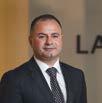
The GDLP team includes personnel from the Law Society of South Australia and University of Adelaide. Their guidance and assistance is of immense value, especially when you start juggling work, studies and life.”
Mario Pegoli GDLP (student), LLB (graduate)
Mathematical scientists drive progress in everything from biomedical research and finance to cybersecurity, animation and space travel.

Ranked top-125 globally for Mathematics*
The University of Adelaide's mathematical sciences degrees are renowned for providing outstanding training in rigour and logical thinking. You'll graduate with exceptional problem-solving and research skills, making you highly soughtafter by employers in a wide range of fields.
These include:
• engineering and technology
• pharmaceuticals
• telecommunications
Research ‘well above world standard’ in Pure and Applied Mathematics^
Research ‘well above world standard’ in Statistics^

• banking, finance and insurance
• meteorology
• scientific research
• video game development
• teaching.
The knowledge and experience of our researchers provides the foundation of our teaching and is only further highlighted by our long, distinguished history of achievement in research and education.
We have an exceptional track record in attracting research funding, and several of our academics hold prestigious Australian Research Council research fellowships. We are also home to the Adelaide node of the Australian Centre of Excellence for Mathematical and Statistical Frontiers.
As a result, our students have the opportunity to work on cutting-edge projects with leading senior researchers in an inspiring and nurturing environment.
With a reputation for providing a stimulating and supportive learning environment, we prepare students for rewarding careers through majors in Applied Mathematics, Pure Mathematics and Statistics.
Our graduates have secured high-level jobs with many leading organisations, such as Australia's: Commonwealth Scientific and Industrial

Research Organisation (CSIRO); Defence Science and Technology Group (DSTG); Bureau of Meteorology; and Bureau of Statistics.
Employment growth for the majority of mathematical sciences-related roles ranges broadly from moderate to very strong†, with STEM jobs predicted to grow nearly twice as fast as other occupations††.
* Times Higher Education World University Rankings by Subject (Life Sciences), 2024.
^ Excellence in Research for Australia, 2018.
† Australian Government, Labour Market Insights, 2023. ††Department of Employment and Workplace Relations, Australian Government, 2020.
Undergraduate
• Bachelor of Applied Data Analytics
• Bachelor of Information Technology
• Bachelor of Mathematical Sciences
• Bachelor of Mathematical Sciences (Honours)
• Bachelor of Mathematical Sciences (Advanced)
• Bachelor of Mathematical and Computer Sciences
• Bachelor of Teaching (Secondary) with Bachelor of Mathematical and Computer Sciences
Postgraduate coursework
• Master of Artificial Intelligence and Machine Learning
• Master of Computer and Innovation
• Master of Cyber Security
• Master of Data Science
• Master of Mathematical Sciences
Media professionals are at the forefront of creativity and innovation in communication, education and entertainment.
Ranked top-176 globally for Arts and Humanities*
South Australia’s widest range of media industry internships for real-world experience
Learn from world-leading academics and industry experts

Our media-related degrees offer enormous scope to follow your individual interests and passions. There are 8 different specialisations to choose from in our Bachelor of Media alone, including:
• Social Media and Digital Promotion
• Immersive Media (including virtual and augmented reality)
• Visual Design
• Story Production (including for TV, cinema and online)
• Journalism
• Marketing
• Digital Humanities
• Film Studies.
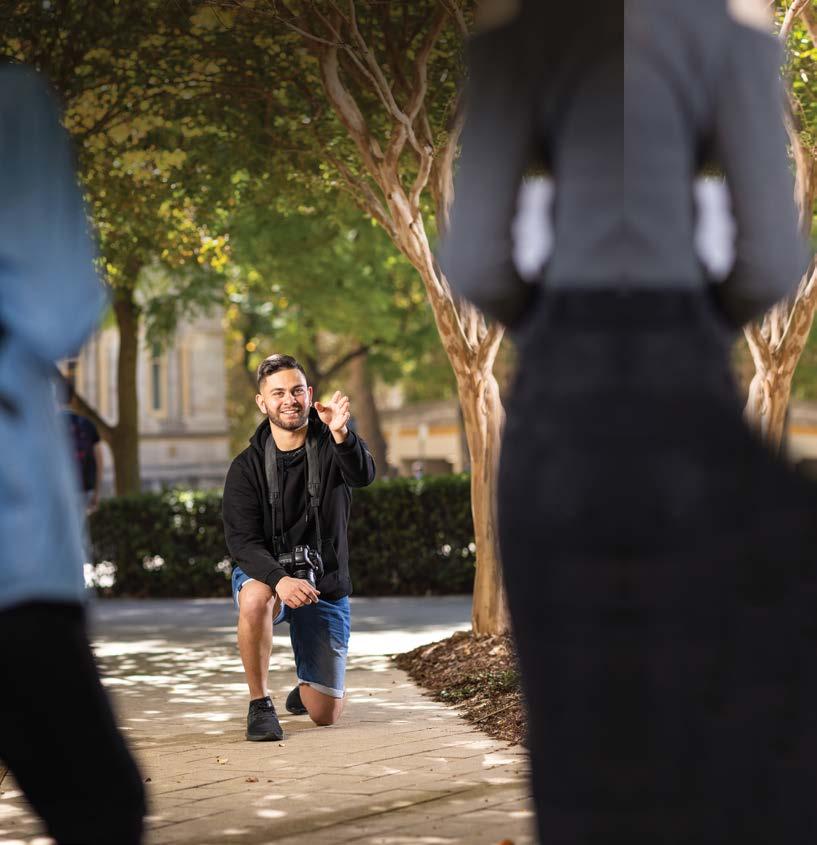
Our industry links, your advantage
The University of Adelaide presents an ideal location for media study. Our main campus’s position in the heart of our city’s central business district and cultural precinct puts a vast number of related bodies and organisations—government, private sector and not-for-profit—within an easy walk.
Capitalising on this advantage, you’ll have ample opportunity to deepen your real-world understanding through hands-on experience with one of these organisations in an extended internship. Internships are a great way to develop industry connections and networks and provide you with the opportunity to apply knowledge and skills into real-life situations. All Media students—both undergraduate and postgraduate—have the opportunity to undertake one, or many, industry internships throughout the duration of their studies.
With knowledge backed by hands-on industry experience, our media graduates emerge careerready and highly sought-after by employers.
Employment growth for the majority of mediarelated roles ranges broadly from moderate to very strong†.
* QS World University Rankings by Subject, 2023. † Australian Government, Labour Market Insights, 2023.
Undergraduate
• Bachelor of Media
Postgraduate coursework
• Master of Immersive Media Technologies
• Master of Media (Strategic Communication) Degrees

University has played a fundamental part in my professional development and has allowed me to gain a strong insight into the media industry. It has shaped my learnings and allowed me to understand the expectations and standards across various sectors of the media."
Carina Stathis Bachelor of Media with Bachelor
of Arts
Protect and promote health and wellbeing, alleviate pain and suffering, and help people live full and active lives.
Ranked 71 globally for Clinical and Health*
Ranked 92 globally for Life Sciences and Medicine^
Specialist facilities for anatomy and surgical training

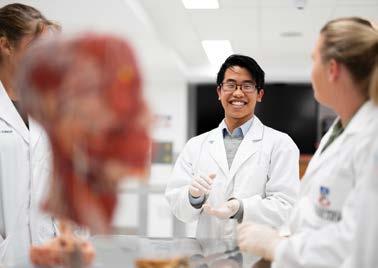
Be part of a remarkable health culture
By studying medicine at the University of Adelaide you'll become part of a rich history of world-class health education and research that stretches back over 135 years. During that time, we've educated 24 health-focused Rhodes Scholars and been associated with four health-related Nobel Laureates. This includes Howard Florey, whose contribution to penicillin's development has helped save hundreds of millions of lives all over the world.
With a strong emphasis on productive research and teaching partnerships, Adelaide Medical School provides the high-level medical knowledge and clinical skills you need to succeed, and the advanced research and innovation capabilities that industry demands.
Health excellence is written in our DNA— and we'd be delighted to share it with you.
Gain an incredible depth and breadth of experience

Throughout your time with us you will have continual opportunities to develop and apply the medical knowledge and skills you're building. You'll experience clinical placements in real health care settings. And you’ll learn in facilities that are second-to-none, including:
• Adelaide Health and Medical Sciences building, our flagship teaching and research facility in the heart of the Adelaide Biomed City precinct
• The Ray Last laboratories, our specialist facilities for anatomy and surgical skills training
• Adelaide Health Simulation, the most technologically advanced health simulation facility in Australasia.
Employment growth for the majority of medical roles is expected to grow strongly†.
* Times Higher Education World University Rankings by Subject, 2024.
^ QS World University Ranking by Subject, 2023.
† Australian Government, Labour Market Insights, 2023.
Undergraduate
• Bachelor of Medical Studies / Doctor of Medicine
Postgraduate coursework
• Graduate Certificate in Alcohol and Drug Studies
• Master of Minimally Invasive Surgery
Mental health professionals help people understand their emotions and behaviours and manage their lives in constructive way.

Ranked #92 globally for Life Sciences and Medicine*
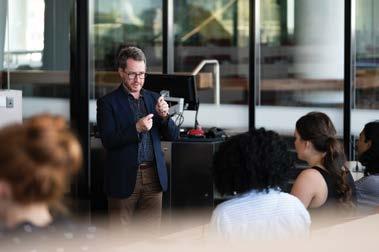

With around 1 in 5 people experiencing challenges with their mental health**, the focus on mental health and wellbeing has never been more important.
If you’d like to make a real difference to the health and wellbeing of individuals and populations, now is the time—and our degrees, majors and specialisations will provide the tools.
Our mental health- and wellbeing-related degrees can get you started on countless rewarding career paths.
You might work in mental health planning, administration or research. You could play an important role in community wellbeing services. Or perhaps you'll turn your hand to market research or health communication and community engagement.
And if you complete one of our masters-level psychology programs, you can become a practising clinical, health or organisational psychologist.
Employment growth for the majority of mental health- and wellbeing-related roles range from strong to very strong*.
* QS World University Rankings by Subject, 2023.
^ Australian Government, Labour Market Insights, 2023. † Times Higher Education World Rankings by Subject, 2024.
Undergraduate
• Bachelor of Health and Medical Sciences
• Bachelor of Health and Medical Sciences (Advanced)
• Bachelor of Psychological Science
• Bachelor of Psychology (Advanced)(Honours)
• Bachelor of Sociology
Postgraduate coursework
• Master of Counselling and Psychotherapy
• Master of Psychology (Clinical)
• Master of Psychology (Health)
• Master of Psychology (Organisational and Human Factors)
• Master of Science in Addiction Studies
Music professionals use the medium of sound to entertain and convey emotion, to engage our minds and feed our souls.
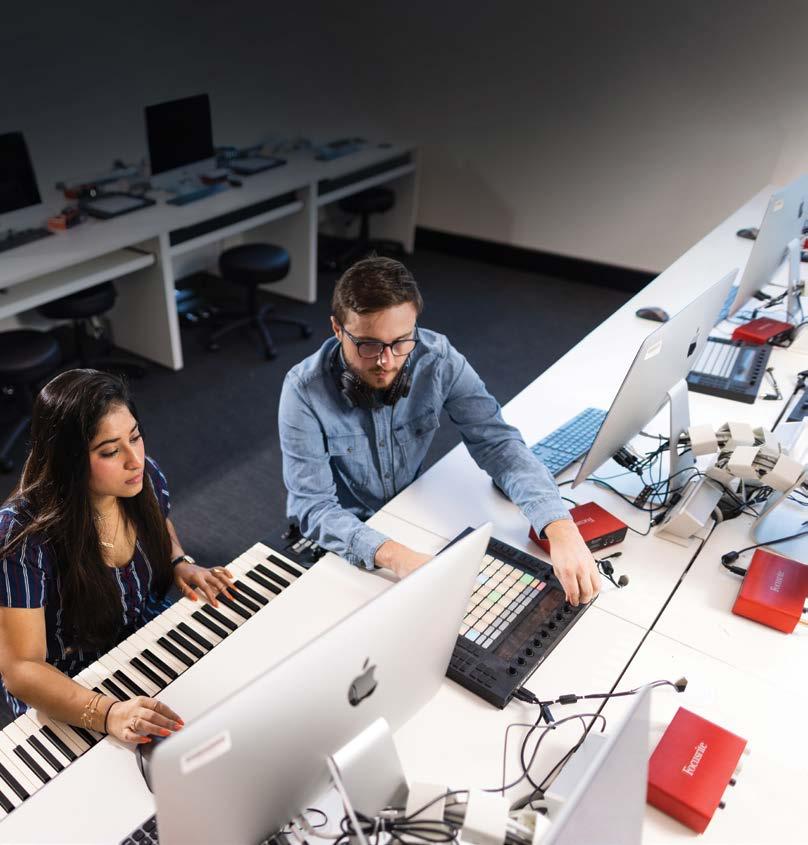


The Elder Conservatorium of Music has a long history and a good reputation for providing students with a wide range of learning subjects and practical opportunities. I can always get the support and help of teachers and peers when I encounter difficulties in my study. There is a friendly and positive learning environment and a strong academic atmosphere.”
Lin Tong
Bachelor of Music (Classical Performance)
As a University of Adelaide music student you'll be part of an incredibly rich history. Our Elder Conservatorium was established in 1898 as one of the first conservatoriums of music in Australia.
We've built close ties with other leading musical institutions around the world, including in the UK, USA, Canada, Asia and Europe. Our graduates have gone on to hold positions of national and international influence throughout the industry. This includes as performers, composers, educators, scholars and administrators.

Whichever musical path you choose with us— and we offer many—you'll benefit from a breadth and depth of industry connections that only an institution of our standing can provide. Your opportunities will include:
• exciting industry internships
• guest instruction and mentoring from leading professionals
• frequent networking opportunities with potential employers at student performances and other on-campus events.
Your learning will be enriched even further through the industry partnerships our Elder Conservatorium of Music has forged both nationally and internationally—including our major partnership with the Australian String Quartet (ASQ).
Through their position as the University’s Quartetin-Residence, the ASQ undertake vital work on campus, providing world-class engagement opportunities for students and the wider community through a diverse annual schedule of concerts, masterclasses, open rehearsals and string musician coaching, and support innovation and research outputs in the creative and cultural sectors.
Employment growth for music-related roles is predicted to remain stable†.
Your passion for music could take you anywhere from being a session musician, composer or recording artist, to a songwriter, musical theatre performer, producer, sound engineer or music teacher.
* Good Universities Guide, 2022-23 (Undergraduate creative arts).
† Australian Government, Labour Market Insights, 2023.
• Bachelor of Music (Classical Performance)
• Bachelor of Music (Creative Practice)
• Bachelor of Music (Jazz Performance)
• Bachelor of Music (Music Education)
• Bachelor of Music Advanced (Classical Performance)
• Bachelor of Music Advanced (Creative Practice)
• Bachelor of Music Advanced (Jazz Performance)
• Bachelor of Music Advanced (Music Education)
• Bachelor of Music Theatre
Postgraduate coursework
• Master of Music (Performance and Pedagogy)
• Master of Music (Performance Studies)
Nurses deliver and support health care at all levels, from dressing wounds and taking vitals, to treating children and caring for the elderly.

Ranked 51-100 globally for nursing*
Top 5 in Australia for overall student experience^
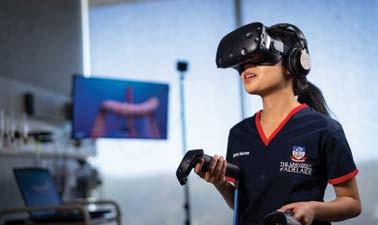
Strong employment predicted (up to 23% by 2026)††

Be part of a remarkable health culture
Taught by passionate and experienced staff who are experts in their field, our close-knit nursing programs ensure you're not just a face in the crowd.
You’ll be surrounded by transformative nursing research that is consistently rated ‘well above world standard’**. And you’ll benefit from the dedication and expertise of our extended team of clinicians and academics. Health excellence is written in our DNA—and we'd be delighted to share it with you.
Gain an incredible depth and breadth of experience
Join a thriving community dedicated to driving health care forward. Adelaide Nursing School is located in our impressive Adelaide Health and Medical Sciences building, situated at the heart of the Adelaide BioMed City precinct, alongside the Royal Adelaide Hospital and the South Australian Health and Medical Research Institute. It’s also home to Adelaide Health Simulation, the most technologically advanced health simulation facility in Australasia.
Throughout your journey with us, you’ll have abundant opportunities to apply the knowledge and skills you're acquiring. You’ll learn in a collaborative environment with other medical and nursing students, researchers and health care professionals. You’ll explore innovative techniques and hone your abilities using world-class simulation technology. And you’ll benefit from our robust industry connections and access to clinical placements. Adelaide Nursing School proudly
holds a major clinical partnership with SA Health, along with collaborations with various public and private health care providers across metropolitan and rural South Australia.
As a University of Adelaide graduate, you’ll have great employment prospects. In 2022, 88% of our recent undergraduate nursing graduates and 97% of our postgraduate nursing graduates secured employment after completing their studies†. Our nursing graduates also enjoy a great reputation among healthcare providers. With a focus on delivering training that’s readily translated into the modern work environment, our programs equip you with the sought-after clinical and professional skills that employers desire. The demand for nurses is high and is projected to grow significantly. In Australia, employment growth for nursing roles is predicted to increase by up to 23% by 2026††.
* QS World University Rankings by Subject, 2023.
^ Good Universities Guide, 2023-24 (UG Nursing).
** 2018 Excellence in Research for Australia (ERA).
† QILT Graduate Outcomes Survey 2022, Nursing (Postgraduate) at the University of Adelaide.
†† Australian Government, Labour Market Insights, 2023.
Undergraduate
• Bachelor of Nursing
Postgraduate coursework
• Master of Clinical Nursing
• Master of Nursing Science
Psychologists support people’s health and wellbeing by helping them understand the way they think, behave, feel and learn.
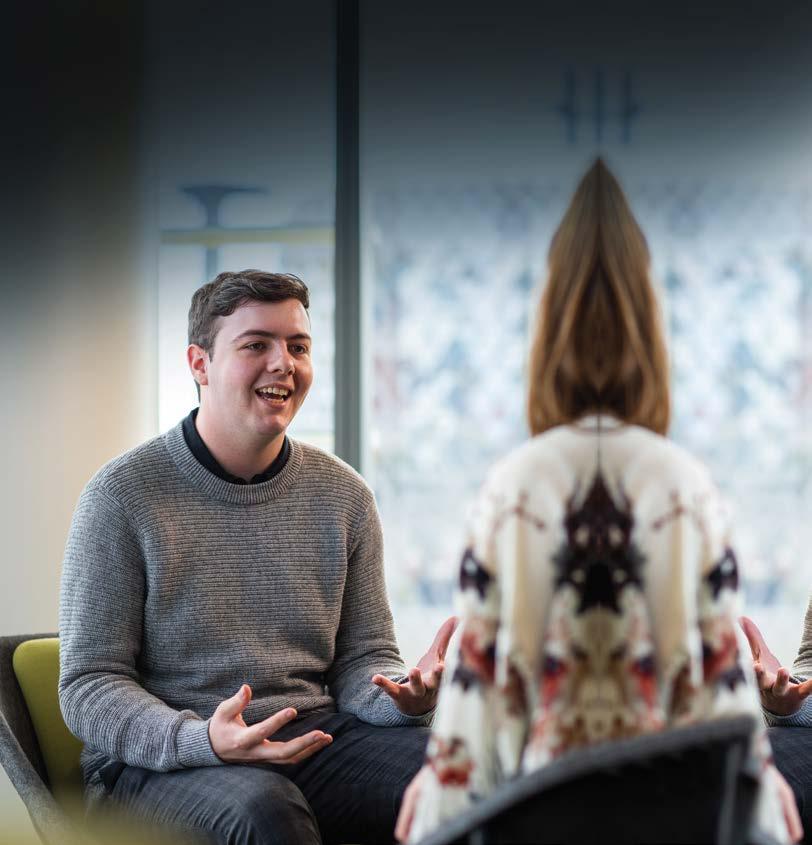
Ranked top-125 globally for Psychology*
The University of Adelaide has a reputation for excellence in health education dating back more than 135 years.
Our School of Psychology has strong connections to industry with expertise in the areas of health, disability and the lifespan; brain and cognition; and social and organisational psychology. And all our teaching is informed by our research, which is universally rated 'above world standard'^.
Producing ‘world standard’ research in Psychology^
Our psychology and psychology-related degrees can get you started on countless rewarding career paths.
And if you complete one of our masters-level psychology programs, you can become a practising clinical, health or organisational psychologist.
Employment growth for the majority of psychology-related roles range from strong to very strong†.
* Times Higher Education University Rankings by Subject, 2024.
^ Excellence in Research for Australia, 2018. † Australian Government, Labour Market Insights, 2023.
Undergraduate
• Bachelor of Psychological Science
Strong career growth predicted (13% by 2026)†

Your highly developed critical thinking skills— and your unique understanding of human behaviour—will be valuable to a huge range of jobs and sectors, including human resource management, advertising, marketing and research. Or, you might work in community services and provide mental health services to children or adults.
• Bachelor of Psychology (Advanced)(Honours)
• Bachelor of Sociology
Postgraduate coursework
• Master of Counselling and Psychotherapy
• Master of Psychology (Clinical)
• Master of Psychology (Health)
• Master of Psychology (Organisational and Human Factors)

Protect and improve the health of communities around the world by preventing disease and promoting wellbeing.
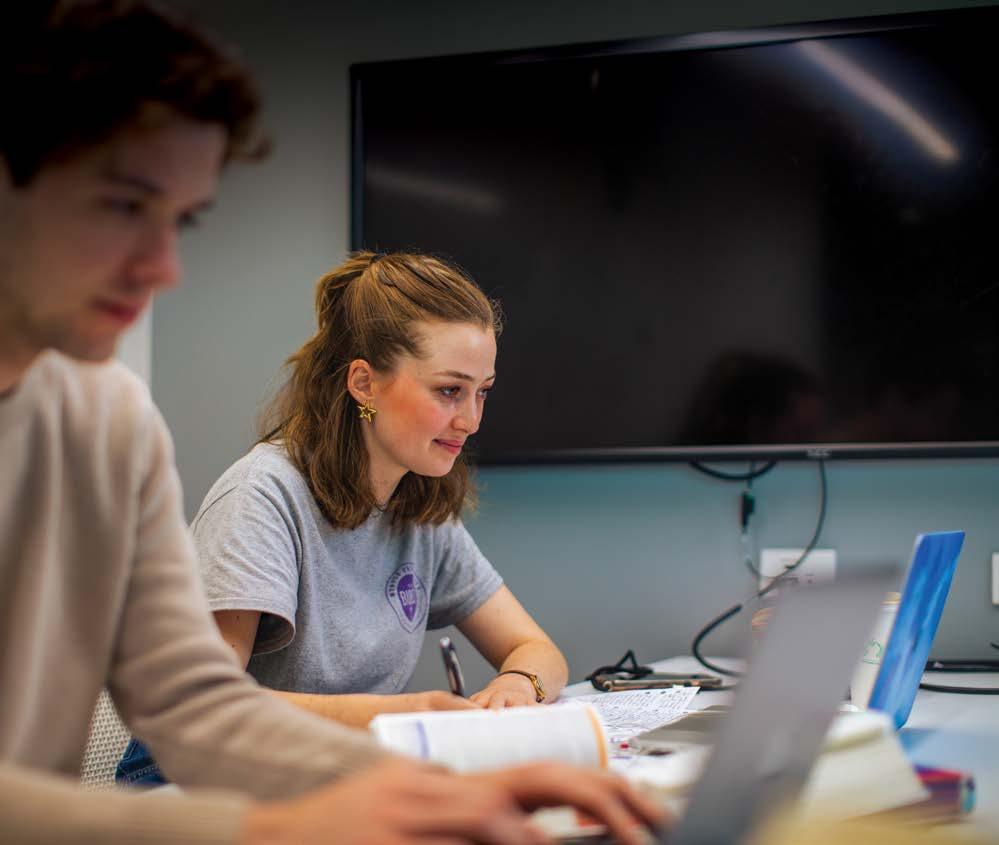
Ranked #95 globally for Public, Environmental and Occupational Health*
By studying public health at the University of Adelaide you’ll become part of a rich history of world-class health education and research that stretches back over 135 years.
You’ll also join a university ranked in the top 100 worldwide for public health*.
Our community of leading scientists, educators and students are working together to advance innovative ideas to change individual behaviours, public policies, and health care practices.
Very strong employment growth predicted (22% by 2026)^
Grow in a career that makes a real difference
The capabilities you’ll gain from our public health degrees will be extensive, readily transferable, and highly sought-after. You'll be well prepared to start—or advance—your career in a wide variety of health areas. You might tackle major chronic illnesses, advocate for better child health outcomes, fight new and emerging infectious diseases, or develop policies and practices to reduce the global burden of disease.
Producing ‘above world standard’ public health research†

Whatever you choose to do, you'll be involved in making a healthier world for all. This includes in:
• medical research
• health policy and advocacy
• health education and outreach services
• government agencies
• community health organisations.
In addition to learning from active researchers, you’ll also benefit from our strong connections to research groups and institutes across Australia, including: BetterStart, Adelaide Exposure Science and Health, Adelaide Health Technology
Assessment and the South Australian Health and Medical Research Institute.
There are also opportunities to undertake professional placements at a range of government agencies and other health organisations—so you can develop real-world skills while you study.
When you work in public health, you can expect a long and varied career where the work you do really makes an impact—whether that’s on an individual, community, or population level.
Employment growth for the majority of publichealth-related roles ranges broadly from stable to very strong. Health is one of Australia's largest and fastest growing industries, with 16% industry growth predicted by 2026†. In South Australia alone, the health and medical industries sector is forecast to more than double by 2030 to reach $5 billion.
* US News Best Global Universities 2023.
^ Australian Government, Labour Market Insights, 2023. † Excellence in Research for Australia, 2018.
Undergraduate
• Bachelor of Health and Medical Sciences
• Bachelor of Health and Medical Sciences (Advanced)
Postgraduate coursework
• Master of Biostatistics
• Master of Counselling and Psychotherapy
• Master of Public Health
• Master of Public Policy
I chose to study the Master of Public Health at the University of Adelaide to gain a global perspective on public health issues and improve my knowledge and skills to further my career."
Romy Hidayat Master of Public Health
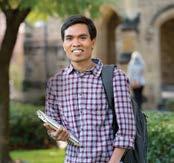
Scientists tackle the world’s biggest challenges, such as extending life, ending world hunger, and fighting climate change.
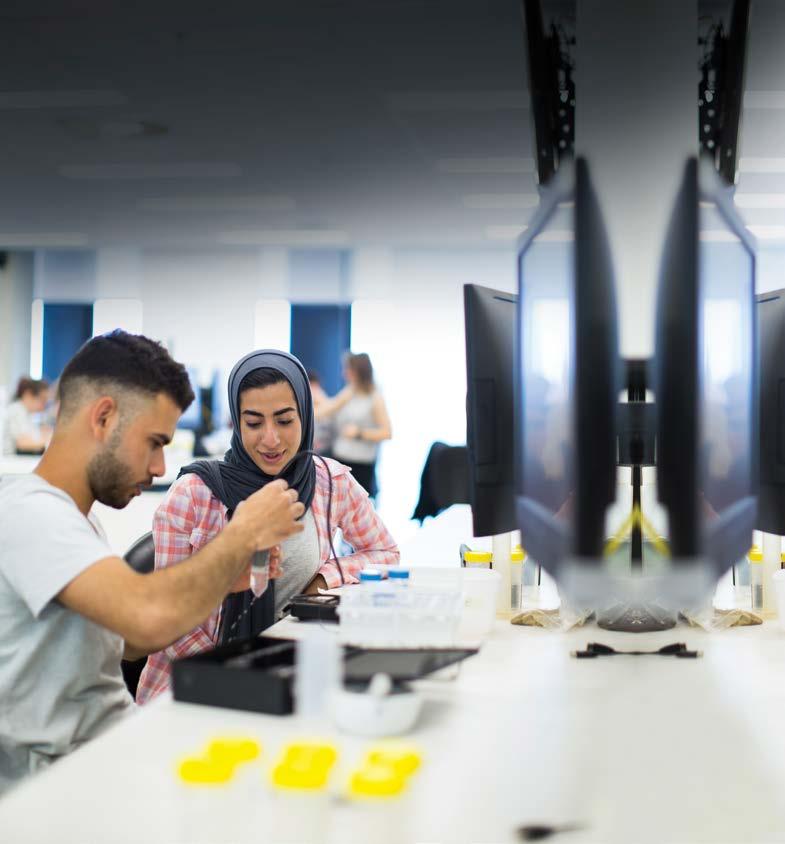
Ranked #45 globally for Physical Chemistry*
Surround yourself with science excellence
As a University of Adelaide science student, you’ll be part of an incredibly high-achieving community. The overall quality of our broad suite of Life Sciences and Natural Sciences programs is ranked #92 and #137 in the world respectively**, while in individual disciplines, we’re:
• #45 globally in Physical Chemistry*
• #74 in Physics*
• #51-70 in Veterinary Science**
• top 100 in Geology, Earth and Marine Sciences**
Ranked #92 globally for Life Sciences**
Producing scientific research ‘well above world standard’†
Fantastic facilities and flexible skills
Regardless of your chosen scientific discipline, you'll have the opportunity to learn and gain practical, hands-on experience—in truly worldclass facilities.
It could be our state-of-the-art veterinary hospital; the largest teaching winery in Australia; or the third largest agricultural research precinct in the world. Perhaps you'll make use of our in-house supercomputer for lightning-fast data analysis.
For flexibility in your degree our Bachelor of Science degree has 13 majors that you can choose from.
Whatever your path, you'll graduate with highly sought-after and transferable skills in communication, critical thinking and creative problem solving, ready to tackle the world's greatest challenges.
Employment growth for the majority of sciencerelated roles range from stable to very strong††, with STEM jobs predicted to grow nearly twice as fast as other occupations‡.
* US News Best Global Universities Rankings by Subject, 2023.
** QS World Universities by Subject, 2024.
† Excellence in Research for Australia, 2018 (Agricultural and Veterinary Sciences, Chemical Sciences, Earth Sciences, Physical Sciences).
†† Australian Government, Labour Market Insights, 2023.
‡ Department of Employment and Workplace Relations, Australian Government, 2020.

Undergraduate
• Bachelor of Agricultural Sciences
• Bachelor of Applied Data Analytics
• Bachelor of Biotechnology
• Bachelor of Biotechnology (Honours)
• Bachelor of Food and Nutrition Science
• Bachelor of Food and Nutrition Science (Honours)
• Bachelor of Marine and Wildlife Conservation
• Bachelor of Science
• Bachelor of Science (Honours)
• Bachelor of Science (Advanced)
• Bachelor of Science (Advanced)(Honours)
• Bachelor of Science (Animal Behaviour)
• Bachelor of Science (Animal Science)
• Bachelor of Science (Biomedical Science)
• Bachelor of Science (High Performance Computational Physics)(Honours)
• Bachelor of Science (Mineral Geoscience)
• Bachelor of Science (Space Science and Astrophysics)
• Bachelor of Science (Veterinary Bioscience)
• Bachelor of Teaching (Secondary) with Bachelor of Science
• Bachelor of Veterinary Technology
• Bachelor of Viticulture and Oenology Postgraduate coursework
• Master of Biostatistics
• Master of Biotechnology (Biomedical)
• Master of Biotechnology (Biomedical)(Advanced)
• Master of Global Food and Nutrition Science
• Master of Medical Radiation Physics
• Master of Viticulture and Oenology
Gain internationally recognised Apple Teacher status
Spark young people's interests, fuel their developing passions, and guide their learning to prepare them for life and career success.
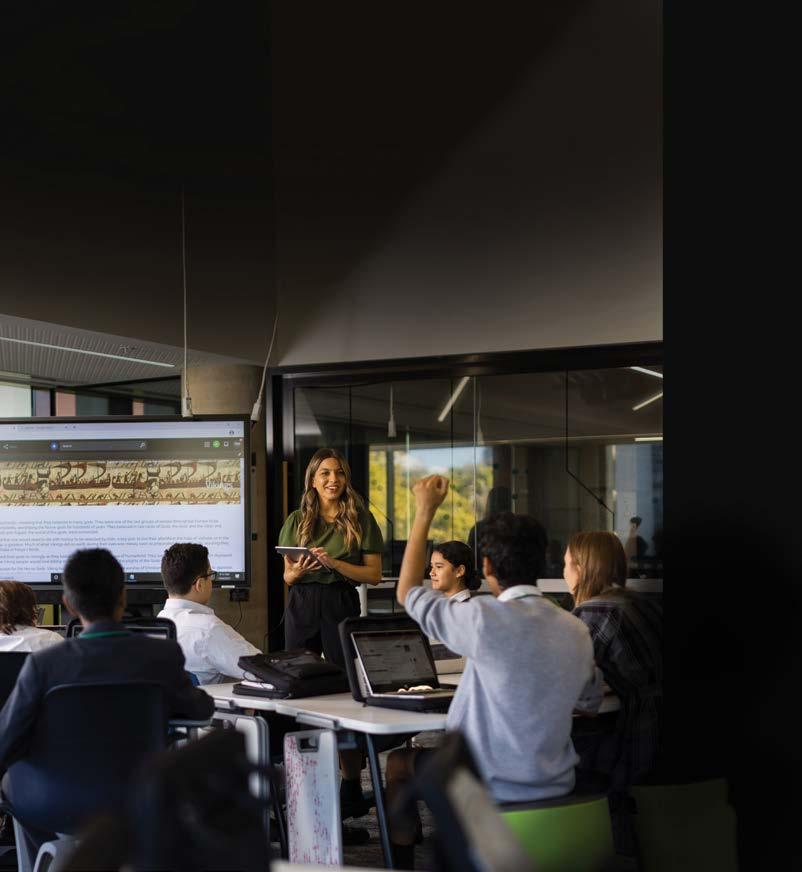
Employment in Education and Training roles projected to grow 13% by 2026*
Gain practical experience through school teaching placements in each year of degree

Australia and New Zealand’s only Apple eLearning program

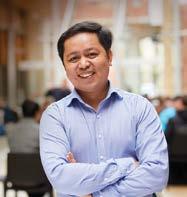
As a University of Adelaide teaching student, you'll graduate with the real-world skills and confidence to immediately enter the classroom and lead young people’s learning. With us you will:
• get hands-on practical teaching experience through in-school placements in every study year
• deepen your practical experience through teaching internships
• learn from a strong network of world-class teaching professionals and education experts.
The University has partnered with Apple Australia and New Zealand to be the only Australian university incorporating the Apple eLearning program in teaching degrees. The program will enable you to:
• develop the ability to create outstanding learning resources and lesson plans with current-generation iPads
I really enjoy interacting with international students from diverse communities, and learning their unique cultures gave me a sense of cross-cultural understanding during my University life."
Wai Maung Master of Education
• hone your digital technology teaching skills through placements in some of Australia’s most cutting-edge schools
• gain internationally recognised Apple Teacher status.
Employment growth for the majority of teaching and education-related roles range from stable to very strong*.
* Australian Government, Labour Market Insights, 2023.
Undergraduate
• Bachelor of Teaching (Secondary) with Bachelor of Arts
• Bachelor of Teaching (Secondary) with Bachelor of Mathematical and Computer Sciences
• Bachelor of Teaching (Secondary) with Bachelor of Music
• Bachelor of Teaching (Secondary) with Bachelor of Science
Postgraduate coursework
• Master of Education
• Master of Teaching (Secondary)
Gain the knowledge and skills to create and apply technology that changes people’s lives, and our planet, for the better.
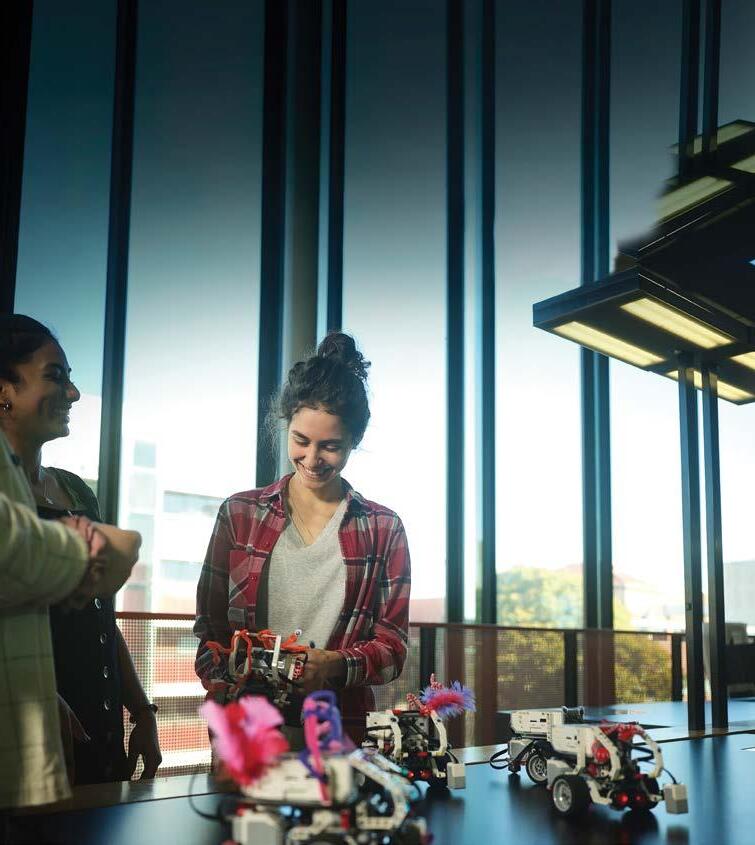

The University of Adelaide provides one of the most stimulating environments in the world for technology-related study. Our main city campus stands literally next door to Lot Fourteen, Adelaide's thriving innovation and technology precinct, which includes:
• our University's own world-leading Australian Institute of Machine Learning (AIML), the largest machine learning research centre in Australia
• the Australian Cyber Collaboration Centre (A3C), in which we collaborate with the Australian Government's Defence Science and Technology group and others
• the Australian Space Agency, Space Discovery Centre, and Mission Control Centre.
Other organisations with a Lot Fourteen presence include Microsoft Azure Space, Amazon, Inovor Technology, and the Massachusetts Institute of Technology (MIT) bigdata Living Lab—all of whom our AIML partners with in ongoing real-world research.
Give yourself a career superpower
Technology and AI is reshaping virtually every industry. Gaining the skills to play a part in that at the University of Adelaide—recognised worldwide for computer science leadership—will give you incredible career scope. You could find yourself:
• developing applications that strengthen capabilities in fields as varied as disease treatment, climate and weather prediction, cybersecurity, defence, or space exploration
• harnessing critical insights from large datasets to inform public health or environmental policy, social services, or business practices
• enhancing, testing and maintaining precisionengineered products, processes, systems and services.
And whichever path you take, we'll ensure you have the confidence to contribute from your first day in the workforce, by including up to 760 hours of hands-on industry experience in your degree.

Our graduates have secured high-level jobs with many leading organisations, such as Australia's: Commonwealth Scientific and Industrial Research Organisation (CSIRO); Defence Science and Technology Group (DSTG); Bureau of Meteorology; and Bureau of Statistics.
Employment growth for the majority of hightechnology roles ranges from strong to very strong†, with STEM jobs predicted to grow nearly twice as fast as other occupations††.
* Australian Institute of Machine Learning (AIML) **US News Best Global Universities by Subject (Artificial Intelligence, Computer Science), 2023. ^ Good Universities Guide, 2022 (Postgraduate computing and IT).
† Australian Government, Labour Market Insights, 2023. †† Department of Employment and Workplace Relations, Australian Government, 2020.
• Bachelor of Computer Science
• Bachelor of Computer Science (Advanced)
• Bachelor of Information Technology
Postgraduate coursework
• Master of Artificial Intelligence and Machine Learning
• Master of Computer Science
• Master of Computing and Innovation
• Master of Cyber Security
• Master of Data

General requirements
Standard requirements for coursework degrees. Applicable to all undergraduate degrees except those specified below.
School of Education
All undergraduate degrees, including double degrees*.
Law School
All undergraduate degrees, including double degrees.
Overall band score of 6.5 and Band score of 6.0 in all bands
Internet-based:
Summary table of all our undergraduate degrees, including entry requirements, prerequisites and indicative tuition fees. What you'll find in the following pages
Information on university pathway programs and minimum English language proficiency requirements for all of our undergraduate degrees.
School of Animal and Veterinary Science
• Bachelor of Science (Veterinary Bioscience)
Overall band score of 7.0 and Band score of 7.0 in all bands
Internet-based: total score of 94 with a minimum of 27 in writing, 23 in speaking and 24 in reading and listening
Overall score of 65 and Skills profile of 65 in writing, speaking, reading and listening
Overall score of 185 and Individual score of 185 in writing, speaking, reading and listening
Overall band score of 7.0 and Band score of 7.0 in writing and speaking and Band score of 6.5 in reading and listening
Overall band score of 7.0 and Band score of 7.0 in all bands
Internet-based: total score of 94 with a minimum of 27 in writing, 23 in speaking and 20 in reading and listening
Overall score of 65 and Skills profile of 65 in writing and speaking and Skills profile of 58 in reading and listening
Internet-based: total score of 94 with a minimum of 27 in writing, 23 in speaking and 24 in reading and listening
Overall score of 65 and Skills profile of 65 in writing, speaking, reading and listening
Overall score of 185 and Individual score of 185 in writing and speaking and Individual score of 176 in reading and listening
Overall score of 185 and Individual score of 185 in writing, speaking, reading and listening
Adelaide Dental School
• Bachelor of Dental Surgery*
• Bachelor of Oral Health*
Adelaide Medical School
• Bachelor of Medical Studies/ Doctor of Medicine*
Adelaide Nursing School
• Bachelor of Nursing*
Overall band score of 7.0 and Band score of 7.0 in all bands
Overall band score of 7.0 and Band score of 7.0 in all bands
Overall band score of 7.0 and Band score of 7.0 in all bands
School of Allied Health Science and Practice
• Bachelor of Speech Pathology (Honours)*
Internet-based: total score of 94 with a minimum of 27 in writing, 23 in speaking and 24 in reading and listening
Internet-based: total score of 94 with a minimum of 27 in writing, 23 in speaking and 24 in reading and listening
Internet-based: total score of 94 with a minimum of 27 in writing, 23 in speaking and 24 in reading and listening
Overall score of 65 and Skills profile of 65 in writing, speaking, reading and listening
Overall score of 65 and Skills profile of 65 in writing, speaking, reading and listening
Overall score of 65 and Skills profile of 65 in writing, speaking, reading and listening
Overall band score of 8.0 and Band score of 8.0 in all bands
Internet-based: total score of 112 with a minimum of 30 in writing, 26 in speaking and 28 in reading and listening
Overall score of 82 and Skills profile of 82 in writing, speaking, reading and listening
Overall score of 185 and Individual score of 185 in writing, speaking, reading and listening
A minimum score of 350 (grade B) in each of the four components (listening, reading, writing and speaking)
Overall score of 185 and Individual score of 185 in writing, speaking reading and listening
A minimum score of 350 (grade B) in each of the four components (listening, reading, writing and speaking)
Not accepted
A minimum score of 350 (grade B) in each of the four components (listening, reading, writing and speaking)
Overall score of 200 and Individual score of 200 in writing, speaking, reading and listening
A minimum result of three As and one B (B only in listening or reading component) or Score of 450-500 in writing and speaking components; and score of 400-500 in listening and reading components
These entry requirements are correct at time of printing. For up-to-date information, visit: international.adelaide.edu.au/admissions/how-to-apply/admission-requirements
The University of Adelaide reserves the right to make the final decision regarding admission to the University.
* Applicants seeking entry to these degrees must present specified IELTS/TOEFL/Pearson/CAE/OET scores to meet the English language proficiency requirements and are not permitted to undertake an Academic English PEP pathway.
School of Allied Health Science and Practice
• Bachelor of Occupational Therapy (Honours)*
• Bachelor of Physiotherapy (Honours)*
Overall band score of 7.0 and Band score of 7.0 in all bands
Internet-based: total score of 94 with a minimum of 27 in writing, 23
A university pathway is a program that you can take before enrolling at university. It is designed to bridge the gap between your grades in your home country and those in Australia.
programs
A university pathway can better prepare you for your academic studies at university. The pathway programs help you develop the required level of language and independent study skills needed for successful university study, while also providing a supportive environment where friendships can be developed with both international and Australian students.
Students from all over the world, including China, Hong Kong, Malaysia, India, Vietnam, Indonesia, Singapore, Egypt, Oman, Korea and more, choose to study in Australia each year.
The University of Adelaide College
college.adelaide.edu.au
The University of Adelaide College is our preferred pathway partner and provides students with dedicated pathways to undergraduate studies at the University. International students who choose to study at the College—at either the Adelaide campus or Melbourne campus— are provided with a strong academic program presented by experienced and highly qualified teachers. Students work in small classes to ensure individual attention, support and guidance is provided. College students are part of the University of Adelaide; they often
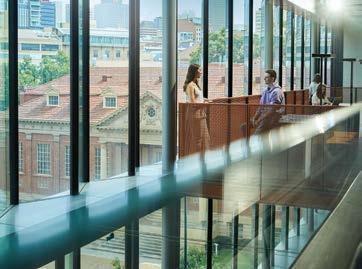
Foundation Studies Program
college.adelaide.edu.au/programs/ foundation-studies
Students who have completed the equivalent of Australian Year 11 may enrol in the College’s Foundation Studies Program.
The College offers a highly supportive environment to enable students to succeed academically and personally.
The program is designed to provide students with the core subject knowledge, vital study skills and academic and pastoral support to seamlessly transition into the first year of undergraduate studies at the University of Adelaide.
Students can undertake a standard or
(Adelaide campus) or three trimesters (Melbourne), over 10 to 11 months. Intakes are available in March, April (Adelaide campus), August and October.
Degree Transfer Program
college.adelaide.edu.au/programs/ degree-transfer
Students who have completed the equivalent of Australian Year 12, may enrol in the College’s Degree Transfer Program.
Studying with the College successfully prepares students for entry into the second year of their packaged bachelor degree at the University of Adelaide. Students are provided with English language and learning support to assist them while studying the Degree Transfer Program.
Students will study the first year University syllabus on campus with University of Adelaide students. Upon successful completion students receive credit for the first-year courses studied and entry into the second year of their packaged degree at the University of Adelaide.
The University of Adelaide College T: +61 (0)8 8313 3430 E: college@adelaide.edu.au W: college.adelaide.edu.au
Foundation Studies and Degree Transfer programs (The University of Adelaide) CRICOS Provider Number 00123M English language programs (Kaplan) CRICOS
study on campus, share the University’s resources and facilities, and—like all our other students—can make the most of the university experience with access to the student clubs and societies.
The University of Adelaide College is an ideal choice for students who:
• are looking for entry to their undergraduate degree of choice at the University of Adelaide
• have dreamt about studying engineering, architecture, medicine, physiotherapy, nursing, business, IT, science and much more at the University of Adelaide, but do not meet the direct entry requirements
• are seeking flexibility around start dates, as there are at least three intakes per year at both the Adelaide campus and Melbourne campus.


Eynesbury College
eynesbury.navitas.com
Eynesbury College welcomes students from all over the world. Its education style is designed to give students the best opportunity to progress to university.
Eynesbury offers English Language (ELICOS), Foundation Studies and Diploma programs. With small classes, flexible timetables and outstanding academic support, Eynesbury will ensure students develop the learning skills necessary to succeed at university and beyond.
Eynesbury is conveniently located in the centre of the city, close to the University of Adelaide, major retail shopping and the Adelaide Central Market.
Eynesbury’s Foundation Studies Program is specifically designed for international students. The program has provided an excellent pathway into the first year of degrees at the University of Adelaide since 1992. Key to Eynesbury’s success is the personalised attention it can provide students due to its small class sizes.
The program takes between 8-12 months to complete, with intakes in February, June and October.

Eynesbury offers diplomas in Business, Engineering, and Computing & IT. These programs provide a pathway into a related undergraduate degree at the University of Adelaide, with up to one full year of credit.
The diplomas take 8-12 months to complete, with intakes in February, June and October. 98.5% of Eynesbury diploma graduates progress to their preferred degree.
Eynesbury also offers a Diploma of Business Studies and a Diploma of Computing & IT Studies. These programs take 16-24 months to complete and are available to students with equivalent Australian Year 11 qualifications. Upon successful completion of the Diploma Studies programs, students are eligible to progress to a related undergraduate degree at the University of Adelaide with up to one full year of credit. Intakes are in February, June and October.
CRICOS Provider Number 00561M
Eynesbury College
T: +61 8 8216 9000
E: eynesbury@navitas.com
W: eynesbury.navitas.com
TAFE South Australia
T: +61 8 8207 8279
W: tafesa.edu.au/international
University Senior College (International Program)
T: +61 8 8313 4988
F: +61 8 8313 4887
E: usc.international@adelaide.edu.au
W: usc.adelaide.edu.au
The University of Adelaide recognises all foundation programs taught by Australian universities (or their partnered providers). Other foundation programs will be considered on a case-by-case basis.
TAFE SA tafesa.edu.au/international
The University of Adelaide offers formal pathways for many degrees in conjunction with TAFE SA. By studying a Certificate IV, Diploma, Advanced Diploma or Associate Degree, students can often meet the entry requirements for University of Adelaide degrees**. For some degrees, completed TAFE SA qualifications may also be counted as credit.
CRICOS Provider Number 00092B
** Students must also meet English language entry requirements.
usc.adelaide.edu.au/enrolment/ international-enrolment
University Senior College (USC) is a senior secondary independent school based on the University of Adelaide’s grounds. The College is dedicated to supporting students through an academic pathway leading to university. It offers English language-intensive courses in preparation for the South Australian Certificate of Education (SACE, years 10, 11 and 12).
Students receive up to 40 SACE credits recognising learning undertaken in Intensive English.
Students learn in a vibrant and stimulating environment that encourages collaboration, being located adjacent to numerous other research-oriented and otherwise significant organisations. These include the South Australian Museum, Adelaide Zoo, Adelaide Botanic Gardens, Art Gallery of South Australia, Migration Museum, Adelaide Magistrates Court and the vibrant multicultural precinct around the Central Market.
USC is committed to developing exceptional graduate attributes in students, all of which are embedded in its curriculum, mentoring program, student-led activities and student governance. Its specialist staff, many of whom are leaders in their
fields, help every student flourish through personalised learning and intellectual challenge. Students have access to the academic, cultural and social activities provided at the University of Adelaide.
Modelling the belief to succeed, they work purposefully to provide the best opportunities and outcomes for students in the senior years. All SACE subjects are taught in classes that include local and international students. USC is one of the biggest feeder schools to universitiesin South Australia (in particular the University of Adelaide), with over 90% of its graduates offered entry into their first-preference degree.
International students will complete USC’s Intensive English Program before entering Year 11 classes. They will develop English language skills and cultural orientation for senior secondary schooling in South Australia. The Program includes development of research skills, sciences, mathematics and English language in use. Students will also complete a SACE subject —the Personal Learning Plan—which is compulsory for all students in South Australia, and have opportunities to engage in cultural and social enrichment activities.
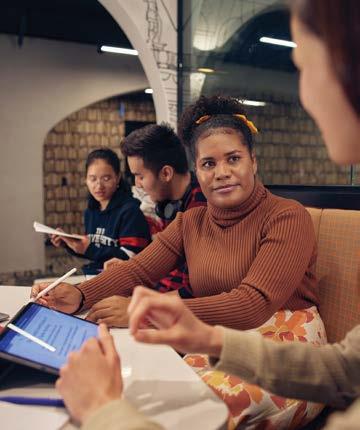
University. Fees may vary depending on enrolment load e.g. if students’ ‘overload’ or ‘underload’, fees may be increased or decreased accordingly. Students are also required to pay a Student Services and Amenities Fee (SSAF) to contribute non-academic services and amenities more information can be found on our website: adelaide. edu.au/student/finance/ssaf You may also incur Incidental fees throughout your studies please see a list of other fees on our website: adelaide.edu.au/student/finance/other-fees
2. Additional note for international students undertaking an Australian Year 12 qualification: students will be required to meet specific prerequisites including passing a designated English subject. Refer to satac.edu.au for more information.
3. Entry scores for 2025 will be finalised in August 2024, and are subject to change. In the meantime, applicants can use the entry scores for 2024 as a guide to future requirements.
4. A Level results are calculated on the aggregate score from three A Level subjects where A*=6, A=5, B=4, C=3, D=2, E=1 for A Level subjects. General Paper or language subject in the applicant’s first language are excluded from the calculation.
5. Average of best six subjects.
6. HKDSE results are calculated on the aggregate score of five subjects where 5**= 6, 5*=5.5, 5=5, 4=4, 3=3, 2=2, 1=1. Category B and C subjects may not be used to calculate an entry score.
7. Indian School Certificate (ISC) and Central Board of Secondary Education (CBSE) –Senior School Certificate Examination. Best three subjects, excluding language and non-academic subjects.
8. Best three academic subjects, excluding applicant's first language subjects and English language. Acceptable State Board Examinations: Maharashtra, Karnataka, Andra Pradesh, Tamil Nadu, Telangana.
9. Best five subjects excluding first language subjects. Students must achieve numerical score lower than that listed, lower the score the better. UEC grades A1=1, A2=2, B3=3, B4=4, B5=5, B6=6, C7=7, C8=8.
An overall band score of 6.5 and band score of 6.0 in all bands is applicable to all undergraduate degrees except those specified on page 98
10. Best 3 subjects. A = GPA 4.0, A- = GPA 3.67, B+ = GPA 3.33, B = GPA 3.0, B- = GPA 2.67, C+ = GPA 2.33, C = GPA 2.0, C- = GPA 1.67, D+ = GPA 1.33, D = 1.0, F = 0.00.
11. SAT undertaken after March 2016 - Aggregate of Evidence Based Reading and Writing and Mathematics scores in conjunction with American High School Diploma.
12. AP results are calculated on the aggregate numeric score of 3 AP subjects in conjunction with an American High School Diploma.
13. Students commencing in July may have a slightly limited selection of courses.
14. Specific selection criteria (audition) applies in addition to academic performance in Year 12.
15. Not all disciplines have July entry.
16. Mid-year entry students will be required to enrol in Summer School (Jan to Feb) in order to complete the program within the three-year duration.
17. Other non-academic criteria may apply.
18. Strict quotas apply. The standard cut-off is the minimum academic threshold, above which applicants will be ranked on merit.
19. Students commencing in July must undertake Maths 1B in Summer School.
20. Other selection criteria (test/interview assessment) apply in addition to academic performance. Strict quotas apply. The standard cut-off is the minimum academic threshold, above which applications will be ranked on merit. In addition to academic performance, other selection criteria may affect merit ranking. Please refer to full entry on program page.
21. Applicants must also complete a written questionnaire and if successful, undergo an interview process.
22. Applicants must have South Australian Certificate of Education (SACE) or equivalent and Audition/Interview and Musicianship test.
23. This program includes compulsory Work-place Based Learning. For more details, visit Degree Finder adelaide.edu.au/degree-finder
24. This program is delivered in partnership with another provider. For more details, visit Degree Finder adelaide.edu.au/degree-finder
25. This program is also offered at our Melbourne Campus and delivered by a third-party provider. For more details, visit Degree Finder adelaide.edu.au/degree-finder ** Applicants seeking entry to these degrees must present the specified IELTS/TOEFL/ Pearson/CAE/OET scores to meet the English
proficiency requirements and are not permitted to undertake an Academic
(Honours)(Architectural and Structural)23
of Engineering (Honours)(Chemical)23
of Engineering (Honours)(Civil)23
of Engineering (Honours) (Electrical and Electronic)23
(Honours) (Environmental and Climate Solutions)23
(Honours)(Mechanical)23
(Honours)(Mining)23
of Engineering (Honours)(Petroleum)19, 23
(Honours)(Petroleum) with major23
(Honours)(Software)23
fee is displayed. Where a degree is offered on a trimester basis, and has a duration of one year or more, the quoted fee is for 24 units only. Each student will be advised of their fee schedule in their offer of admission to the University. Fees may vary depending on enrolment load e.g. if students’ ‘overload’ or ‘underload’, fees may be increased or decreased accordingly. Students are also required to pay a Student Services and Amenities Fee (SSAF) to contribute non-academic services and amenities more information can be found on our website: adelaide. edu.au/student/finance/ssaf You may also incur Incidental fees throughout your studies please see a list of other fees on our website: adelaide.edu.au/student/finance/other-fees
2. Additional note for international students undertaking an Australian Year 12 qualification: students will be required to meet specific prerequisites including passing a designated English subject. Refer to satac.edu.au for more information.
3. Entry scores for 2025 will be finalised in August 2024, and are subject to change. In the meantime, applicants can use the entry scores for 2024 as a guide to future requirements.
4. A Level results are calculated on the aggregate score from three A Level subjects where A*=6, A=5, B=4, C=3, D=2, E=1 for A Level subjects. General Paper or language subject in the applicant’s first language are excluded from the calculation.
5. Average of best six subjects.
6. HKDSE results are calculated on the aggregate score of five subjects where 5**= 6, 5*=5.5, 5=5, 4=4, 3=3, 2=2, 1=1. Category B and C subjects may not be used to calculate an entry score.
7. Indian School Certificate (ISC) and Central Board of Secondary Education (CBSE) –Senior School Certificate Examination. Best three subjects, excluding language and non-academic subjects.
8. Best three academic subjects, excluding applicant's first language subjects and English language. Acceptable State Board Examinations: Maharashtra, Karnataka, Andra Pradesh, Tamil Nadu, Telangana.
9. Best five subjects excluding first language subjects. Students must achieve numerical score lower than that listed, lower the score the better. UEC grades A1=1, A2=2, B3=3, B4=4, B5=5, B6=6, C7=7, C8=8.
10. Best 3 subjects. A = GPA 4.0, A- = GPA 3.67, B+ = GPA 3.33, B = GPA 3.0, B- = GPA 2.67, C+ = GPA 2.33, C = GPA 2.0, C- = GPA 1.67, D+ = GPA 1.33, D = 1.0, F = 0.00.
11. SAT undertaken after March 2016 - Aggregate of Evidence Based Reading and Writing and Mathematics scores in conjunction with American High School Diploma.
12. AP results are calculated on the aggregate numeric score of 3 AP subjects in conjunction with an American High School Diploma.
13. Students commencing in July may have a slightly limited selection of courses.
14. Specific selection criteria (audition) applies in addition to academic performance in Year 12.
15. Not all disciplines have July entry.
16. Mid-year entry students will be required to enrol in Summer School (Jan to Feb) in order to complete the program within the three-year duration.
17. Other non-academic criteria may apply.
18. Strict quotas apply. The standard cut-off is the minimum academic threshold, above which applicants will be ranked on merit.
19. Students commencing in July must undertake Maths 1B in Summer School.
20. Other selection criteria (test/interview assessment) apply in addition to academic performance. Strict quotas apply. The standard cut-off is the minimum academic threshold, above which applications will be ranked on merit. In addition to academic performance, other selection criteria may
is displayed. Where a degree is offered on a trimester basis, and has a duration of one year or more, the quoted fee is for 24 units only. Each student will be advised of their fee schedule in their offer of admission to the University. Fees may vary depending on enrolment load e.g. if students’ ‘overload’ or ‘underload’, fees may be increased or decreased accordingly. Students are also required to pay a Student Services and Amenities Fee (SSAF) to contribute non-academic services and amenities more information can be found on our website: adelaide. edu.au/student/finance/ssaf You may also incur Incidental fees throughout your studies please see a list of other fees on our website: adelaide.edu.au/student/finance/other-fees
2. Additional note for international students undertaking an Australian Year 12 qualification: students will be required to meet specific prerequisites including passing a designated English subject. Refer to satac.edu.au for more information.
3. Entry scores for 2025 will be finalised in August 2024, and are subject to change. In the meantime, applicants can use the entry scores for 2024 as a guide to future requirements.
4. A Level results are calculated on the aggregate score from three A Level subjects where A*=6, A=5, B=4, C=3, D=2, E=1 for A Level subjects. General Paper or language subject in the applicant’s first language are excluded from the calculation.
5. Average of best six subjects.
6. HKDSE results are calculated on the aggregate score of five subjects where 5**= 6, 5*=5.5, 5=5, 4=4, 3=3, 2=2, 1=1. Category B and C subjects may not be used to calculate an entry score.
7. Indian School Certificate (ISC) and Central Board of Secondary Education (CBSE) –Senior School Certificate Examination. Best three subjects, excluding language and non-academic subjects.
8. Best three academic subjects, excluding applicant's first language subjects and English language. Acceptable State Board Examinations: Maharashtra, Karnataka, Andra Pradesh, Tamil Nadu, Telangana.
9. Best five subjects excluding first language subjects. Students must achieve numerical score lower than that listed, lower the score the better. UEC grades A1=1, A2=2, B3=3, B4=4, B5=5, B6=6, C7=7, C8=8.
10. Best 3 subjects. A = GPA 4.0, A- = GPA 3.67, B+ = GPA 3.33, B = GPA 3.0, B- = GPA 2.67, C+ = GPA 2.33, C = GPA 2.0, C- = GPA 1.67, D+ = GPA 1.33, D = 1.0, F = 0.00.
11. SAT undertaken after March 2016 - Aggregate of Evidence Based Reading and Writing and Mathematics scores in conjunction with American High School Diploma.
12. AP results are calculated on the aggregate numeric score of 3 AP subjects in conjunction with an American High School Diploma.
13. Students commencing in July may have a slightly limited selection of courses.
14. Specific selection criteria (audition) applies in addition to academic performance in Year 12.
15. Not all disciplines have July entry.
16. Mid-year entry students will be required to enrol in Summer School (Jan to Feb) in order to complete the program within the three-year duration.
17. Other non-academic criteria may apply.
18. Strict quotas apply. The standard cut-off is the minimum academic threshold, above which applicants will be ranked on merit.
19. Students commencing in July must undertake Maths 1B in Summer School.
20. Other selection criteria (test/interview assessment) apply in addition to academic performance. Strict quotas apply. The standard cut-off is the minimum academic threshold, above which applications will be ranked on merit. In addition to academic performance, other selection criteria may affect
(Jazz Performance)14
(Music Education)14
Where the standard duration of the degree is greater than one year, the annual fee is displayed. Where a degree is offered on a trimester basis, and has a duration of one year or more, the quoted fee is for 24 units only. Each student will be advised of their fee schedule in their offer of admission to the University. Fees may vary depending on enrolment load e.g. if students’ ‘overload’ or ‘underload’, fees may be increased or decreased accordingly. Students are also required to pay a Student Services and Amenities Fee (SSAF) to contribute non-academic services and amenities more information can be found on our website: adelaide. edu.au/student/finance/ssaf You may also incur Incidental fees throughout your studies please see a list of other fees on our website: adelaide.edu.au/student/finance/other-fees
2. Additional note for international students undertaking an Australian Year 12 qualification: students will be required to meet specific prerequisites including passing a designated English subject. Refer to satac.edu.au for more information.
3. Entry scores for 2025 will be finalised in August 2024, and are subject to change. In the meantime, applicants can use the entry scores for 2024 as a guide to future requirements.
4. A Level results are calculated on the aggregate score from three A Level subjects where A*=6, A=5, B=4, C=3, D=2, E=1 for A Level subjects. General Paper or language subject in the applicant’s first language are excluded from the calculation.
5. Average of best six subjects.
6. HKDSE results are calculated on the aggregate score of five subjects where 5**= 6, 5*=5.5, 5=5, 4=4, 3=3, 2=2, 1=1. Category B and C subjects may not be used to calculate an entry score.
7. Indian School Certificate (ISC) and Central Board of Secondary Education (CBSE) –Senior School Certificate Examination. Best three subjects, excluding language and non-academic subjects.
8. Best three academic subjects, excluding applicant's first language subjects and English language. Acceptable State Board Examinations: Maharashtra, Karnataka, Andra Pradesh, Tamil Nadu, Telangana.
9. Best five subjects excluding first language subjects. Students must achieve numerical score lower than that listed, lower the score the better. UEC grades A1=1, A2=2, B3=3, B4=4, B5=5, B6=6, C7=7, C8=8.
An overall band score of 6.5 and band score of 6.0 in all bands is applicable to all undergraduate degrees except those specified on page 98
10. Best 3 subjects. A = GPA 4.0, A- = GPA 3.67, B+ = GPA 3.33, B = GPA 3.0, B- = GPA 2.67, C+ = GPA 2.33, C = GPA 2.0, C- = GPA 1.67, D+ = GPA 1.33, D = 1.0, F = 0.00.
11. SAT undertaken after March 2016 - Aggregate of Evidence Based Reading and Writing and Mathematics scores in conjunction with American High School Diploma.
12. AP results are calculated on the aggregate numeric score of 3 AP subjects in conjunction with an American High School Diploma.
13. Students commencing in July may have a slightly limited selection of courses.
14. Specific selection criteria (audition) applies in addition to academic performance in Year 12.
15. Not all disciplines have July entry.
16. Mid-year entry students will be required to enrol in Summer School (Jan to Feb) in order to complete the program within the three-year duration.
17. Other non-academic criteria may apply.
18. Strict quotas apply. The standard cut-off is the minimum academic threshold, above which applicants will be ranked on merit.
19. Students commencing in July must undertake Maths 1B in Summer School.
20. Other selection criteria (test/interview assessment) apply in addition to academic performance. Strict quotas apply. The standard cut-off is the minimum academic threshold, above which applications will be ranked on merit. In addition to academic performance, other selection criteria may affect merit ranking. Please refer to full entry on program page.
21. Applicants must also complete a written questionnaire and if successful, undergo an interview process.
22. Applicants must have South Australian Certificate of Education (SACE)
(Advanced)(Honours)
(Animal Behaviour)23
of Science (Animal Science)17, 23
of Science (Biomedical Science)
Bachelor of Science (High Performance Computational Physics) (Honours)
of Science (Mineral Geoscience)
N. Tce 4
and has a duration of one year or more, the quoted fee is for 24 units only. Each student will be advised of their fee schedule in their offer of admission to the University. Fees may vary depending on enrolment load e.g. if students’ ‘overload’ or ‘underload’, fees may be increased or decreased accordingly. Students are also required to pay a Student Services and Amenities Fee (SSAF) to contribute non-academic services and amenities more information can be found on our website: adelaide. edu.au/student/finance/ssaf You may also incur Incidental fees throughout your studies please see a list of other fees on our website: adelaide.edu.au/student/finance/other-fees
2. Additional note for international students undertaking an Australian Year 12 qualification: students will be required to meet specific prerequisites including passing a designated English subject. Refer to satac.edu.au for more information.
$48,000 Advanced Mathematics (Mathematical Methods and
Geology, Mathematical Methods, Physics, Agriculture and Horticulture or Nutrition (note: only 1 maths subject can be counted).
3. Entry scores for 2025 will be finalised in August 2024, and are subject to change. In the meantime, applicants can use the entry scores for 2024 as a guide to future requirements.
4. A Level results are calculated on the aggregate score from three A Level subjects where A*=6, A=5, B=4, C=3, D=2, E=1 for A Level subjects. General Paper or language subject in the applicant’s first language are excluded from the calculation.
5. Average of best six subjects.
6. HKDSE results are calculated on the aggregate score of five subjects where 5**= 6, 5*=5.5, 5=5, 4=4, 3=3, 2=2, 1=1. Category B and C subjects may not be used to calculate an entry score.
7. Indian School Certificate (ISC) and Central Board of Secondary Education (CBSE) –Senior School Certificate Examination. Best three subjects, excluding language and non-academic subjects.
8. Best three academic subjects, excluding applicant's first language subjects and English language. Acceptable State Board Examinations: Maharashtra, Karnataka, Andra Pradesh, Tamil Nadu, Telangana.
9. Best five subjects excluding first language subjects. Students must achieve numerical score lower than that listed, lower the score the better. UEC grades A1=1, A2=2, B3=3, B4=4, B5=5, B6=6, C7=7, C8=8.
IELTS (academic) minimum scores
An overall band score of 6.5 and band score of 6.0 in all bands is applicable to all undergraduate degrees except those specified on page 98
10. Best 3 subjects. A = GPA 4.0, A- = GPA 3.67, B+ = GPA 3.33, B = GPA 3.0, B- = GPA 2.67, C+ = GPA 2.33, C = GPA 2.0, C- = GPA 1.67, D+ = GPA 1.33, D = 1.0, F = 0.00.
11. SAT undertaken after March 2016 - Aggregate of Evidence Based Reading and Writing and Mathematics scores in conjunction with American High School Diploma.
12. AP results are calculated on the aggregate numeric score of 3 AP subjects in conjunction with an American High School Diploma.
13. Students commencing in July may have a slightly limited selection of courses.
14. Specific selection criteria (audition) applies in addition to academic performance in Year 12.
15. Not all disciplines have July entry.
16. Mid-year entry students will be required to enrol in Summer School (Jan to Feb) in order to complete the program within the three-year duration.
17. Other non-academic criteria may apply.
18. Strict quotas apply. The standard cut-off is the minimum academic threshold, above which applicants will be ranked on merit.
19. Students commencing in July must undertake Maths 1B in Summer School.
20. Other selection criteria (test/interview assessment) apply in addition to academic performance. Strict quotas apply. The standard cut-off is the minimum academic threshold, above which applications will be ranked on merit. In addition to academic performance, other selection criteria may affect merit ranking. Please refer to full entry on program page.
21.
of Science (Space Science and Astrophysics)
of Science (Veterinary Bioscience)17, 21, 23
Bachelor of Speech Pathology (Honours)17, 18, 23**
Bachelor of Teaching (Secondary) with Bachelor of Arts17, 23**
Bachelor of Teaching (Secondary) with Bachelor of Mathematical and Computer Sciences17, 23**
Bachelor of Teaching (Secondary) with Bachelor of Music14, 17, 23**
Bachelor of Teaching (Secondary) with Bachelor of Science17, 23
of Viticulture and Oenology
the quoted fee is for 24 units only. Each student will be advised of their fee schedule in their offer of admission to the University. Fees may vary depending on enrolment load e.g. if students’ ‘overload’ or ‘underload’, fees may be increased or decreased accordingly. Students are also required to pay a Student Services and Amenities Fee (SSAF) to contribute non-academic services and amenities more information can be found on our website: adelaide. edu.au/student/finance/ssaf You may also incur Incidental fees throughout your studies please see a list of other fees on our website: adelaide.edu.au/student/finance/other-fees
2. Additional note for international students undertaking an Australian Year 12 qualification: students will be required to meet specific prerequisites including passing a designated English subject. Refer to satac.edu.au for more information.
3. Entry scores for 2025 will be finalised in August 2024, and are subject to change. In the meantime, applicants can use the entry scores for 2024 as a guide to future requirements.
4. A Level results are calculated on the aggregate score from three A Level subjects where A*=6, A=5, B=4, C=3, D=2, E=1 for A Level subjects. General Paper or language subject in the applicant’s first language are excluded from the calculation.
5. Average of best six subjects.
6. HKDSE results are calculated on the aggregate score of five subjects where 5**= 6, 5*=5.5, 5=5, 4=4, 3=3, 2=2, 1=1. Category B and C subjects may not be used to calculate an entry score.
7. Indian School Certificate (ISC) and Central Board of Secondary Education (CBSE) –Senior School Certificate Examination. Best three subjects, excluding language and non-academic subjects.
8. Best three academic subjects, excluding applicant's first language subjects and English language. Acceptable State Board Examinations: Maharashtra, Karnataka, Andra Pradesh, Tamil Nadu, Telangana.
9. Best five subjects excluding first language subjects. Students must achieve numerical score lower than that listed, lower the score the better. UEC grades A1=1, A2=2, B3=3, B4=4, B5=5, B6=6, C7=7, C8=8.
An overall band score of 6.5 and band score of 6.0 in all bands is applicable to all undergraduate degrees except those specified on page 98
10. Best 3 subjects. A = GPA 4.0, A- = GPA 3.67, B+ = GPA 3.33, B = GPA 3.0, B- = GPA 2.67, C+ = GPA 2.33, C = GPA 2.0, C- = GPA 1.67, D+ = GPA 1.33, D = 1.0, F = 0.00.
11. SAT undertaken after March 2016 - Aggregate of Evidence Based Reading and Writing and Mathematics scores in conjunction with American High School Diploma.
12. AP results are calculated on the aggregate numeric score of 3 AP subjects in conjunction with an American High School Diploma.
13. Students commencing in July may have a slightly limited selection of courses.
14. Specific selection criteria (audition) applies in addition to academic performance in Year 12.
15. Not all disciplines have July entry.
16. Mid-year entry students will be required to enrol in Summer School (Jan to Feb) in order to complete the program within the three-year duration.
17. Other non-academic criteria may apply.
18. Strict quotas apply. The standard cut-off is the minimum academic threshold, above which applicants will be ranked on merit.
19. Students commencing in July must undertake Maths 1B in Summer School.
20. Other selection criteria (test/interview assessment) apply in addition to academic performance. Strict quotas apply. The standard cut-off is the minimum academic threshold, above which applications will be ranked on merit. In addition to academic performance, other selection criteria may affect merit ranking. Please refer to full entry on program page.
21. Applicants must also complete a written questionnaire and
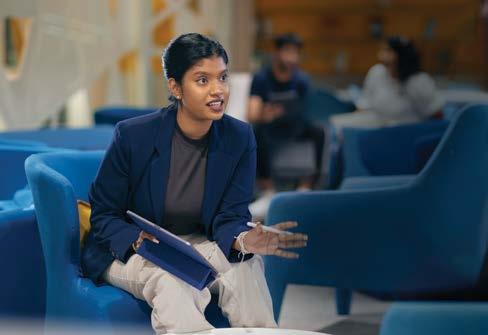
What you'll find in the following pages
Information on minimum English language proficiency requirements for all of our postgraduate coursework degrees.
Summary table of all our postgraduate coursework degrees, including entry requirements, prerequisites and indicative tuition fees.
School of Public Health
All postgraduate coursework programs in Counselling and Psychotherapy Overall band score of 7.0 and Band score of 7.0 in all bands
School of Psychology
• Master of Psychology (Clinical)2
• Master of Psychology (Health)2
• Master of Psychology (Organisational and Human Factors)2 Overall band score of 7.0 and Band score of 7.0 in all bands
Internet-based: total score of 94 with a minimum of 27 in writing, 23 in speaking and 24 in reading and listening
profile of 65 in writing, speaking, reading and listening
Overall score of 65 and Skills profile of 65 in writing, speaking, reading and listening
Internet-based: total score of 94 with a minimum of 27 in writing, 23 in speaking and 24 in reading and listening Overall score of 65 and Skills profile of 65 in writing, speaking, reading and listening
Overall score of 185 and Individual score of 185 in writing, speaking, reading and listening
of B or 350 in each of the four components (listening, reading, writing and speaking)
minimum score of B or 350 in each of the four components (listening, reading, writing and speaking)
of Education • Master of Teaching (Secondary)
Business School
• Executive Master of Business Administration
• Executive Graduate Diploma in Business Administration
• Executive Graduate Certificate in Business Administration1
Law School
• Graduate Diploma in Legal Practice
band score of 7.0 and Band score of 7.0 in all bands
Internet-based: total score of 94 with a minimum of 27 in writing, 23 in speaking and 24 in reading and listening Overall score of 65 and Skills profile of 65 in writing, speaking, reading and listening Overall score of 185 and Individual score of 185 in writing, speaking, reading and listening
band score of 7.0 and Band score of 6.5
total score of 94 with a minimum of 24 in writing, 22 in speaking and 20 in reading and listening
Overall band score of 7.0 and Band score of 7.0 in writing and speaking and Band score of 6.5 in reading and listening
Internet-based: total score of 94 with a minimum of 27 in writing, 23 in speaking and 20 in reading and listening
School of Animal and Veterinary Science
• Doctor of Veterinary Medicine1 Overall band score of 7.0 and Band score of 7.0 in all bands
Internet-based: total score of 94 with a minimum of 27 in writing, 23 in speaking and 24 in reading and listening
Overall
and Skills profile of 58 in writing, speaking, reading and listening Overall
and
of
score of
in writing, speaking, reading and listening
Overall score of 65 and Skills profile of 65 in writing and speaking and Skills profile of 58 in reading and listening
Overall score of 65 and Skills profile of 65 in writing, speaking, reading and listening
1. Applicants seeking entry to these degrees must present the specified IELTS/TOEFL/ Pearson/CAE/OET scores to meet the English language proficiency requirements and are not permitted to undertake an Academic English PEP pathway.
Overall score of 185 and
score of 185 in writing and speaking and Individual score of 176 in reading and listening
Overall score of 185 and Individual score of 185 in writing, speaking, reading and listening
2. Applicants to master degrees offered by the School of Psychology must provide an ELP test, unless eligible for an exemption in accordance with the Psychology Board of Australia requirements prescribed at: psychologyboard.gov.au/registration/overseas-applicants
* These entry requirements are correct at the time of printing. For up-to-date information, visit: international.adelaide.edu.au/admissions/apply
The University of Adelaide reserves the right to make the final decision regarding admission to the University.
Architecture by coursework6 059319A N. Tce 2 years $45,500 Feb, Jul12 Bachelor of Architectural Design with a GPA of 4.0 out of 7.0 or above or equivalent degree and comparable score; and applicants are required to submit a portfolio of work and a curriculum vitae if they do not hold a Bachelor of Architectural Design from the University of Adelaide.
Architecture with Landscape Architecture
Artificial Intelligence and Machine Learning7
Biopharmaceutical Engineering
059390E N. Tce 2 years $45,500 Feb, Jul12 Bachelor of Architectural Design with a GPA of 4.0 out of 7.0 or above or equivalent degree and comparable score; and students are required to submit a portfolio of work and a curriculum vitae if they do not hold a Bachelor of Architectural Design from the University of Adelaide.
107539J N. Tce 2 years $51,000 Jan, May, Sep Bachelor degree with a GPA of 4.5 out of 7.0 or above or equivalent degree and comparable score. Prerequisite: Mathematics equivalent to SACE Stage 2: Mathematical Methods
0101345 N. Tce 2 years $52,000 Feb, Jul Bachelor degree in science, engineering, technology or related backgrounds with a GPA of 4.5 out of 7.0 or above or equivalent degree and comparable score.
Biostatistics Available to nonstudent visa holders only. N. Tce 1.5 years
$44,500 Feb, Jul A four-year Bachelor degree (Honours) in Statistics, Mathematics, Science, Psychology, Medicine, Pharmacy, Nursing, Economics, Health Sciences or other appropriate discipline from an approved University, or equivalent; or Graduate Certificate in Biostatistics13 and all applicants must attend an interview for admission.
Biotechnology (Biomedical) 072995M N. Tce 2 years $50,500 Feb, Jul Bachelor degree in a relevant field of genetics, biochemistry, molecular biology or another related field with a GPA of 6.0 out of 7.0 or above or equivalent degree and comparable score.
Biotechnology (Biomedical)(Advanced) 107749K N. Tce 2 years $50,500 Feb, Jul Relevant bachelor degree or equivalent in the fields of genetics, biochemistry, molecular biology or related fields.
Business Administration (International)7 107818B N. Tce 2 years $49,900 Jan, May, Sep Bachelor degree field with a GPA of 4.0 out of 7.0 or above or equivalent degree and comparable score.
Business Administration7 0100793 N. Tce 1.5 years $49,900 Jan, May, Sep Bachelor degree or equivalent degree.
Business Analytics 107750F N. Tce 2 years $49,900 Feb, Jul Bachelor degree or equivalent degree.
IELTS (academic) minimum scores
An overall band score of 6.5 and band score of 6.0 in all bands is applicable to all postgraduate coursework degrees except those specified on page 116
N. Tce, M 2 years $50,500 Feb, Jul5 Bachelor degree with a GPA of 4.5 out of 7.0 or above or equivalent degree and comparable score.
Construction Management 096832K N. Tce 2 years $45,500 Feb, Jul Bachelor degree with a GPA of 4.5 out of 7.0 or above in a relevant field such as civil engineering, building, architecture, landscape architecture, quantity surveying, construction management, real estate and property or qualification deemed or equivalent degree and comparable score.
Counselling and Psychotherapy14, 17, 18 091225G N. Tce 2 years $43,000 Feb Bachelor degree or equivalent. All applicants must submit a CV and attend an interview (by phone or Skype).13
Curatorial and Museum Studies 107751E N. Tce 2 years $42,500 Feb, Jul • Bachelor degree with a GPA of 4.0 out of 7.0 or above or equivalent degree and comparable score; OR • Successful completion of the Graduate Certificate in Curatorial and Museum Studies; OR • Successful completion of the Graduate Diploma in Curatorial and Museum Studies.
Cyber Security7 107536A N. Tce 2 years $52,000 Jan, May, Sep Bachelor degree with a GPA of 4.5 out of 7.0 or above or equivalent degree and comparable score.
Data Science7 107542C N. Tce 2 years $51,000 Jan, May, Sep Bachelor degree with a GPA of
Economics
be advised of their fee schedule in their offer of admission to the
University. Fees may vary depending on enrolment load e.g. if students’ ‘overload’ or ‘underload’, fees may be increased or decreased accordingly. Students are also required to pay a Student Services and Amenities Fee (SSAF) to contribute non-academic services and amenities more information can be found on our website adelaide.edu.au/ student/finance/ssaf You may also incur Incidental fees throughout your studies please see a list of other fees on our website adelaide.edu.au/student/finance/other-fees
3. External degree: Available to non-student visa holders only. To apply, please contact the relevant school/department as stated in the detailed degree information for this program on our Degree Finder website: adelaide.edu.au/degree-finder
4. Available online, to non-student visa holders only.
5. Melbourne campus offers intakes in February and July.
6. Applicants must submit a portfolio and a curriculum vitae to Admissions. The portfolio should be of the applicant’s own work (uploaded as a .pdf or link to their online application, or by mail as a CD/DVD) demonstrating manual graphic skills and ability through freehand drawing or sketches, skills in relevant design-related areas, as well as familiarity using a computer-aided design (CAD) software package.
7. Delivered on a trimester basis. Trimesters are compressed study periods which usually run from late January to May, May to August and September to November.
10.
8. A total tuition fee for 12 units of study is provided for graduate certificates. 9. Trimester 2 delivery considered on a case-by-case basis.
or
or equivalent
and comparable score. Prerequisite: Mathematics equivalent to SACE Stage 2: Mathematical Methods
score.
Engineering (Electronic)18 071204M N. Tce 2 years $51,000 Feb, Jul Four year Bachelor degree in a related field (Electrical Engineering, Electronics, Computer, Computer Systems, Communications or Telecommunications) or equivalent.
Engineering (Mechanical)18 071205K N. Tce 2 years $51,000 Feb, Jul Four year Bachelor degree in a related field (Mechanical, Mechatronic, Aerospace or Automotive Engineering) with a GPA of 4.5 out of 7.0 or above or equivalent degree and comparable score.
Engineering (Mechatronic)18
Engineering (Mining)18
Environmental Policy and Management
Executive Master of Business Administration7
071206J N. Tce 2 years $51,000 Feb, Jul Four year Bachelor degree in a related field (Mechanical, Mechatronic, Aerospace or Automotive Engineering) with a GPA of 4.5 out of 7.0 or above or equivalent degree and comparable score.
071207G N. Tce 2 years $51,000 Feb, Jul Four year Bachelor degree in a related field (Mining Engineering) with a GPA of 4.5 out of 7.0 or above or equivalent degree and comparable score.
083482A N. Tce 2 years $51,000 Feb, Jul Bachelor degree with a GPA of 4.0 out of 7.0 or above or equivalent degree and comparable score; or Graduate Diploma in Environmental Policy and Management or equivalent.
059067E N. Tce 1.5 years $50,000 Jan, May, Sep Academic requirement:
• A minimum of five years' relevant work experience is required for applicants with a completed AQF Bachelor's degree with a GPA 5.0 out of 7.0 or above or above or equivalent degree and comparable score; OR
• A minimum of seven years' related work experience and a satisfactory GMAT score (550) is required for applications without a completed Bachelor's degree; OR
• Completed Graduate Certificate in Business Administration; and Interview:
• Interview with MBA Director where the applicant must demonstrate Leadership, Communication, Team Skills, Motivation, Business Skills.
Finance20
089703M N. Tce 2 years $49,900 Feb, Jul5 Bachelor degree or equivalent.
Finance and Business Economics 056498F N. Tce 2 years $49,900 Feb, Jul Bachelor degree or equivalent. Food and Nutrition Science 109091J
2. The indicative
quoted is based on the
full-time enrolment load of 24
per
or 12
•
• Bachelor of Laws [AQF Level 7 qualification] with GPA plus relevant research experience within the profession*. * Refer to entry requirements in Degree Finder for further clarification.
Maritime Engineering16 073672M N. Tce 1.5 years $53,000 Feb, Jul Bachelor of Engineering (Honours). Applicants without an Honours degree in engineering must provide evidence of formal qualifications and professional work experience providing equivalent learning outcomes.
Marketing7 107748M N. Tce 2 years $49,900 Jan, May, Sept Bachelor degree or equivalent
Materials Engineering 099708A N. Tce 2 years $52,000 Feb, Jul Bachelor degree science, engineering or technology or related background with a GPA of 4.5 out of 7.0 or above or equivalent degree and comparable score.
Mathematical Sciences 109316H N. Tce 2 years $51,500 Feb, Jul Bachelor degree in mathematical sciences or related background with a GPA of 5.0 out of 7.0 or above or equivalent degree and comparable score.
Media (Strategic Communication) 0100934 N. Tce 2 years $43,000 Feb, Jul Bachelor degree or equivalent; or 5 years’ relevant professional work experience assessed as equivalent to a bachelor degree; or Graduate Diploma/Certificate in Media (Strategic Communication)
Medical Radiation Physics 0101506 N. Tce 2 years $52,000 Feb, Jul
or above or equivalent degree and comparable score; and Mathematics and Physics knowledge equivalent to MATHS 2101 Multivariable & Complex Calculus, MATHS 2102 Differential Equations, ENG 1100 Programming (Matlab C) or ENG 1003 Programming (Matlab and Excel), PHYSICS 1100 Physics IA, PHYSICS 1200 Physics IB and Physics 2534 Electromagnetism II.
3. External degree: Available to non-student visa holders only. To apply, please contact the relevant school/department as stated in the detailed degree information for this program on our Degree Finder website: adelaide.edu.au/degree-finder
4. Available online, to non-student visa holders only.
per semester. These fees cover the cost of teaching and student support services. The quoted fee is reviewed on a yearly basis. Prospective students should be aware that their fees may increase each year and that they are liable for these fees upon acceptance of their offer. Where the standard duration is less than one year, the full cost of the degree is displayed. Where the standard duration of the degree is greater than one year, the annual fee is displayed. Where a degree is offered on a trimester basis, and has a duration of one year or more, the quoted fee is for 24 units only. Each student will be advised of their fee schedule in their offer of admission to the University. Fees may vary depending on enrolment load e.g. if students’ ‘overload’ or ‘underload’, fees may be increased or decreased accordingly. Students are also required to pay a Student Services and Amenities Fee (SSAF) to contribute non-academic services and amenities more information can be found on our website adelaide.edu.au/ student/finance/ssaf You may also incur Incidental fees throughout your studies please see a list of other fees on our website adelaide.edu.au/student/finance/other-fees
5. Melbourne campus offers intakes in February and July.
6. Applicants must submit a portfolio and a curriculum vitae to Admissions. The portfolio should be of the applicant’s own work (uploaded as a .pdf or link to their online application, or by mail as a CD/DVD) demonstrating manual graphic skills and ability through freehand drawing or sketches, skills in relevant design-related areas, as well as familiarity using a computer-aided design (CAD) software package.
7. Delivered on a trimester basis. Trimesters are compressed study periods which usually run from late January to May, May to August and September to November.
8. A total tuition
Nursing Science17 022523B Teaching hospitals 2 years $40,000 Feb, Jul Bachelor of Nursing or equivalent, plus two years’ post-registration nursing experience.13
Petroleum Engineering 083678M N. Tce 1.5 years $52,000 Feb Bachelor of Engineering (Honours) degree in a discipline other than petroleum engineering with a GPA of 4.0 out of 7.0 or above or equivalent degree and comparable score.13
Professional Accounting20 072988K N. Tce, M 1.5 years $49,900 Feb, Jul5 Bachelor degree or equivalent.
Project Management7 086352J N. Tce 1.5 years $49,900 Jan, Sep Bachelor degree with a GPA of 4.0 out of 7.0 or above or equivalent degree and comparable score.
Project Management (Complex Systems)7 075813J N. Tce 2 years $49,900 Jan, Sep Bachelor degree with a GPA of 4.0 out of 7.0 or above or equivalent degree and comparable score.
Property 086021F N. Tce 2 years $46,500 Feb, Jul Bachelor degree with a GPA of 5.0 out of 7.0 or above or equivalent degree and comparable score.
Psychology (Clinical)14, 17, 18 001449C N. Tce 2 years $46,500 Jan Four year qualification in Psychology including Honours with a minimum grade of Second Class, Division A approved by the Australian Psychological Society (or equivalent and recognised); and Casper Situational Judgement Test. Additional requirements are needed for entry.13
Psychology (Health)14, 17,18 061743M N. Tce 2 years $46,500 Jan Four year qualification in Psychology including Honours with a minimum grade of Second Class, Division A approved by the Australian Psychological Society, (or equivalent and recognised); and Casper Situational Judgement Test. Additional requirements are needed for entry.13
Psychology (Organisational and Human Factors)14, 17,18 042771J N. Tce 2 years $46,500 Jan Four year qualification in Psychology including Honours with a minimum grade of Second Class, Division A approved by the Australian Psychological Society, (or equivalent and recognised); and Casper Situational Judgement Test. Additional requirements are needed for entry.13
a minimum of 7 years Australian public health related work experience.
(Doctor of) Veterinary Medicine18 086311G R
IELTS (academic) minimum scores
An overall band score of 6.5 and band score of 6.0 in all bands is applicable to all postgraduate coursework degrees except those specified on page 116
2.
1. Students can expect to complete an academic program within this duration, if the student satisfactorily completes all courses. It may take students who have failed courses longer.
will
of
in
of
to
University. Fees may vary depending on enrolment load e.g. if students’ ‘overload’ or ‘underload’, fees may be increased or decreased accordingly. Students are also required to pay a Student Services and Amenities Fee (SSAF) to contribute non-academic services and amenities more information can be found on our website adelaide.edu.au/ student/finance/ssaf You may also incur Incidental fees throughout your studies please see a list of other fees on our website adelaide.edu.au/student/finance/other-fees
3. External degree: Available to non-student visa holders only. To apply, please contact the relevant school/department as stated in the detailed degree information for this program on our Degree Finder website: adelaide.edu.au/degree-finder
4. Available online, to non-student visa holders only.
5. Melbourne campus offers intakes in February and July.
with
At least a major and a minor (but preferably two majors) in the bachelor degree which align with the available specialist teaching areas. Applicants should refer to Degree Finder (adelaide.edu.au/degree-finder) for teaching areas and additional requirements.13
Completed the Bachelor of Science (Veterinary Bioscience) from the University of Adelaide. Not being offered as direct entry. Viticulture and Oenology
$53,500 Jul Bachelor degree in a field such as agriculture, biology, microbiology, biochemistry, chemistry, plant and general science, or engineering with a GPA of 5.0 out of 7.0 or above or equivalent degree with a comparable score.
Wine Business7 081149G N. Tce 2 years $49,900 Jan, May, Sep Bachelor degree or equivalent.
Diploma
with
score. Prerequisite: Mathematics equivalent to SACE Stage 2 Mathematical Methods
Biostatistics Available to nonstudent visa holders only N. Tce year $44,500 Feb, Jul Bachelor degree in Statistics, Mathematics, Science, Psychology, Medicine, Pharmacy, Nursing, Economics, Health Sciences or other relevant discipline or equivalent degree; or Graduate Certificate in Biostatistics.13
Biotechnology (Biomedical)
Business
6. Applicants must submit a portfolio and a curriculum vitae to Admissions. The portfolio should be of the applicant’s own work (uploaded as a .pdf or link to their online application, or by mail as a CD/DVD) demonstrating manual graphic skills and ability through freehand drawing or sketches, skills in relevant design-related
Environmental Policy and Management 062048D N. Tce 1 year $42,500 Feb, Jul Bachelor degree with a GPA of 4.0 out of 7.0 or above or equivalent degree with a comparable score; or Graduate Certificate in Environmental Policy and Management
Executive Graduate Diploma in Business Administration7
016427G N. Tce 1 year $50,000 Jan, May, Sept
• A minimum of five years' relevant work experience is required for applicants with a completed AQF Bachelor's degree with a GPA 5.0 out of 7.0 or above or equivalent degree and comparable score; OR
• A minimum of seven years' related work experience and a satisfactory GMAT score (550) is required for applications without a completed Bachelor degree; AND
• Interview with MBA Director where the applicant must demonstrate Leadership, Communication, Team Skills, Motivation, Business Skills.
Food and Nutrition Science 109092H W 1 year $52,000 Feb, Jul Bachelor degree in a Science related field including but not restricted to Agriculture, Biology, Microbiology, Biochemistry, Chemistry, Plant and General Science and Engineering with a GPA of 4.5 out of 7.0 or above or equivalent degree with comparable score.
Forensic Odontology17 002798G Teaching hospitals 1 year $69,500 Feb Bachelor of Dental Surgery or equivalent degree. At least two years' experience in general dental practice, current AHPRA registration and academic approval to enter program
Global Food and Nutrition Science 109095E W 1 year $52,000 Feb, Jul Bachelor degree in the fields of food science, food technology, food engineering and nutrition with a GPA of 4.5 out of 7.0 or above or equivalent degree with a comparable score.
Immersive Media Technologies 0101746 N. Tce 1 year $43,000 Feb Bachelor degree or equivalent.
International Addiction Studies11 Available to nonstudent visa
Tce 2
Visit ipas. vcu.edu
All applicants must meet the admission entry requirements as set out by the Virginia Commonwealth University at: ipas.vcu.edu International Security 0101768 N. Tce 1 year $42,500 Feb Bachelor degree or equivalent. Law 068883J N. Tce 1 year $49,900 Feb, Jul Bachelor degree or equivalent with a minimum GPA of 5.0 (not available to applicants with a Bachelor of Law or equivalent).
Legal Practice18 077967G N. Tce 1 year $19,000 Feb, Apr, Jul, Oct Bachelor of Laws or equivalent. Applicants must provide a letter from the Law Society of South Australia that confirms accreditation of their course if their degree is awarded by an institution other than the University of Adelaide or University of South Australia.
1. Students can expect to complete an academic program within this duration, if the student satisfactorily completes all courses. It may take students who have failed courses longer.
2. The indicative annual tuition fee quoted is based on the standard full-time enrolment load of 24 units per year, or 12 units per semester. These fees cover the cost of teaching and student support services. The quoted fee is reviewed on a yearly basis. Prospective students should be aware that their fees may increase each year and that they are liable for these fees upon acceptance of their offer. Where the standard duration is less than one year, the full cost of the degree is displayed. Where the standard duration of the degree is greater than one year, the annual fee is displayed. Where a degree is offered on a trimester basis, and has a duration of one year or more, the quoted fee is for 24 units only. Each student will be advised of their fee schedule in their offer of admission to the
IELTS (academic) minimum scores
An overall band score of 6.5 and band score of 6.0 in all bands is applicable to all postgraduate coursework degrees except those specified on page 116
University. Fees may vary depending on enrolment load e.g. if students’ ‘overload’ or ‘underload’, fees may be increased or decreased accordingly. Students are also required to pay a Student Services and Amenities Fee (SSAF) to contribute non-academic services and amenities more information can be found on our website adelaide.edu.au/ student/finance/ssaf You may also incur Incidental fees throughout your studies please see a list of other fees on our website adelaide.edu.au/student/finance/other-fees
3. External degree: Available to non-student visa holders only. To apply, please contact the relevant school/department as stated in the detailed degree information for this program on our Degree Finder website: adelaide.edu.au/degree-finder
4. Available online, to non-student visa holders only.
5. Melbourne campus offers intakes in February and July.
Nursing
Petroleum
Public
6. Applicants must submit a portfolio and a curriculum vitae to Admissions. The portfolio should be of the applicant’s own work (uploaded as a .pdf or link to their online application, or by mail as a CD/DVD) demonstrating manual graphic skills and ability through freehand drawing or sketches, skills in relevant design-related areas, as well as familiarity using a computer-aided design (CAD) software package.
7. Delivered on a trimester basis. Trimesters are compressed study periods which usually run from late January to May, May to August and September to November.
8. A total tuition fee for
cognate discipline plus 2 years relevant work experience in Machine Learning / AI or cognate roles. Prerequisite: Mathematics equivalent to SACE Stage 2 Mathematical Methods. Biostatistics
Tce 6 months $22,250 Feb, Jul Bachelor degree in Statistics, Mathematics, Science, Psychology, Medicine, Pharmacy, Nursing, Economics, Health Sciences or other appropriate discipline from an approved University or equivalent degree.
Biotechnology (Biomedical) 072997J N. Tce 6 months $25,250 Feb Relevant degree in the field of genetics, biochemistry, molecular biology or a related field with a GPA of 4.0 on a 7.0 scale or equivalent degree with a comparable score.
Business Analytics 103283E N. Tce 6 months $24,950 Feb, Jul Bachelor degree in accounting, business, economics, information technology, management, sales, marketing and tourism or equivalent degree.
Counselling and Psychotherapy17
Cyber Security7
Data Science7
Economics and Resource Policy
072306G N. Tce 6 months $21,500 Feb Bachelor degree or equivalent. All applicants must submit a CV and attend an interview (by phone or Skype).13
107538K N. Tce 6 months $26,000 Jan, May, Sep • Bachelor degree or equivalent; OR
• Relevant work experience of at least 3 years in Computer Science/Cyber Security roles; OR
• Diploma or above in Networking and IT plus 2 years relevant work experience in Computer Science/Cyber Security.
107544A N. Tce 6 months $25,500 Jan, May, Sep • Bachelor degree or equivalent; OR
• Relevant work experience of at least 3 years in data science or cognate roles; OR
• Diploma or above in cognate discipline plus two years relevant work experience in data science or cognate roles.
Prerequisite: Mathematics equivalent to SACE Stage 2 Mathematical Methods
113830M N. Tce 6 months $24,950 Feb, Jul Bachelor degree with a GPA of 4.0 out of 7.0 or above or equivalent degree with comparable score.
Education 073129A N. Tce 6 months $20,000 Feb, Jul Bachelor degree or equivalent.
Environmental Policy and Management 062049C N. Tce 6 months $21,250 Feb, Jul Bachelor degree or equivalent.
Tce
1. Students can expect to complete an academic program within this duration, if the student satisfactorily completes all courses. It may take students who have failed courses longer.
2. The indicative annual tuition fee quoted is based on the standard full-time enrolment load of 24 units per year, or 12 units per semester. These fees cover the cost of teaching and student support services. The quoted fee is reviewed on a yearly basis. Prospective students should be aware that their fees may increase each year and that they are liable for these fees upon acceptance of their offer. Where the standard duration is less than one year, the full cost of the degree is displayed. Where the standard duration of the degree is greater than one year, the annual fee is displayed. Where a degree is offered on a trimester basis, and has a duration of one year or more, the quoted fee is for 24 units only. Each student will be advised of their fee schedule in their offer of admission to the
IELTS (academic) minimum scores
An overall band score of 6.5 and band score of 6.0 in all bands is applicable to all postgraduate coursework degrees except those specified on page 116
University. Fees may vary depending on enrolment load e.g. if students’ ‘overload’ or ‘underload’, fees may be increased or decreased accordingly. Students are also required to pay a Student Services and Amenities Fee (SSAF) to contribute non-academic services and amenities more information can be found on our website adelaide.edu.au/ student/finance/ssaf You may also incur Incidental fees throughout your studies please see a list of other fees on our website adelaide.edu.au/student/finance/other-fees
3. External degree: Available to non-student visa holders only. To apply, please contact the relevant school/department as stated in the detailed degree information for this program on our Degree Finder website: adelaide.edu.au/degree-finder
4. Available online, to non-student visa holders only.
5. Melbourne campus offers intakes in February and July.
Immersive
International
Maritime
Honours degree in engineering must provide evidence of formal qualifications and professional work experience providing equivalent learning outcomes.
Materials Engineering 099710G N. Tce 6 months $26,000 Feb, Jul Bachelor degree in science, engineering, technology or related field with a GPA of 4.5 out of 7.0
Media (Strategic Communication)
Petroleum
6. Applicants must submit a portfolio and a curriculum vitae to Admissions. The portfolio should be of the applicant’s own work (uploaded as a .pdf or link to their online application, or by mail as a CD/DVD) demonstrating manual graphic skills and ability through freehand drawing or sketches, skills in relevant design-related areas, as well as familiarity using a computer-aided design (CAD) software package.
7. Delivered on a trimester basis. Trimesters are compressed study periods which usually run from late January to May, May to August and September to November.
8. A total tuition fee for
Advanced standing Also known as status/ credit/exemptions. The value assigned for the recognition of equivalence in content and learning outcomes between different types of learning and/or qualifications. Credit reduces the amount of learning required to achieve a qualification and may be through credit transfer, articulation or recognition of prior learning.
Articulation agreement A formal agreement between the University and a third party that enables students to progress from completed qualification to another with credit in a defined pathway.
Assumed knowledge Knowledge that is assumed a student will have before commencing a course. Teaching in a course will proceed on the assumption that students enrolled in the course have such knowledge.
Bachelor degree An undergraduate qualification gained after a minimum of three years full-time study. A bachelor degree is made up of a range of core (compulsory) courses and elective courses, usually delivered via lectures and tutorials.
Campus The grounds of a university or other institution of higher education.
Combined degree A combined degree allows students to complete the requirements of two degrees in less time than when completed separately. Successful completion results in the award of a single parchment listing the combined degrees. A student may not graduate until the requirements for both degrees have been met.
Confirmation of Enrolment The document sent by the University after receipt of the tuition fee deposit. May be used as proof of student status to apply for a student visa.
Core course Courses that are required for the completion of a program and/or a major.
Course A component of study of an academic program assigned a unit value.
Coursework program A degree structured around particular courses, usually delivered via lectures and tutorials.
CRICOS Commonwealth Register of Institutions and Courses for Overseas Students.
DHA Department of Home Affairs.
Diploma Some schools in the University offer diplomas, which usually consist of 1-2 years of full-time coursework, delivered via lectures and tutorials.
Discipline A field or area of study, e.g. engineering, architecture, nursing.
Double degree A double degree allows students to complete the requirements of two degrees in less time than when completed separately. Successful completion results in the award of two degrees with separate parchments. A student may graduate from each degree as soon as the requirements for each degree have been met. For example: Bachelor of Engineering (Chemical) with Bachelor of Arts.
Elective course A non-compulsory subject that may be chosen as part of a program of study.
Education Services for Overseas Students (ESOS) Act The ESOS Act sets out the legal framework governing delivery of education to
international students in Australia on a student visa. The Australian Government, through the Department of Education, administers the ESOS Act and its associated instruments.
Exchange agreement Study at another university with which the University of Adelaide has an exchange agreement, and that is concurrent with the applicant's enrolment in a program offered by the University.
Extra admission requirements Requirements in addition to the specified qualifications, needed for a student to be accepted into a particular degree, e.g. audition, interview, portfolio submission, University Clinical Aptitude Test.
Full-time study A standard full-time study load consists of 24 units per academic year, or 12 units per semester. International students holding a student visa are required to complete within the duration specified on their Confirmation of Enrolment.
Faculty An academic branch in the University, consisting of various schools, e.g. the Faculty of Health and Medical Sciences.
GEAP (General English for Academic Purposes)
A course for students looking to improve their English for a variety of reasons, such as to assist with future study or their career. GEAP by itself is not a direct entry pathway to undergraduate or postgraduate study at the University of Adelaide.
Grade Point Average (GPA) The GPA is the average of the grades obtained in all courses, weighted by the unit value of each course. If enrolled in more than one program, there will be a Program GPA for each, calculated using the final grades for the courses associated with each program.
Honours A one-year full-time (or equivalent part-time) program that allows students to consolidate learning from their undergraduate studies by undertaking research and a thesis.
IELTS (International English Language Testing System) An internationally recognised test for English language assessment, essential for student visa requirements.
Indicative annual tuition fee The indicative annual tuition fee quoted in this prospectus is based on the standard full-time enrolment load of 24 units per year or 12 units per semester. These fees cover the cost of teaching and the cost of student support services. The quoted fee is reviewed on a yearly basis. Prospective students should be aware that their fees may increase each year and that they are liable for these fees upon acceptance of their offer. Each student will be advised of their fee schedule in their offer of admission to the University. Fees may vary depending on enrolment load, e.g. if students ‘overload’ or ‘underload’, fees may be increased or decreased accordingly. All fees listed are in Australian dollars (AUD$).
Lecture Oral and audio-visual presentations designed to convey critical information and theories.
Level This refers to the level of study of a course. Level I, II, III, IV are the first, second, third and fourth year (where relevant) of a bachelor degree respectively. Level IV courses may also be honours courses. Level V, VI and VII courses indicate postgraduate coursework courses. In most instances the first digit of the four digit number of the catalogue number indicates the level of the course (eg. 1109 is a Level course whilst 2092 is a Level II course).
Major sequence Coherent bodies of study, usually in a single discipline in a Bachelor degree.
OSHC (Overseas Student Health Cover)
Compulsory health insurance that provides basic and emergency health cover. It is an essential requirement for international students to obtain a student visa.
Part-time study Any study load that is less "than 75% of a full time load, or 18 units a year. Note that under current Australian student visa regulations, part-time study is not recommended for international students. International students on an Australian Student visa are required by DHA to complete within the specified duration of their Confirmation of Enrolment (CoE). Part-time studies may be permitted in compassionate and compelling circumstances, with approval by the University.
PEP (Pre-enrolment English Program)
A direct entry pathway English language program for students who have not met the entry requirements for their chosen award program.
Prerequisites Courses that must be successfully completed before another course may be undertaken.
Program An approved combination of courses and other requirements (where relevant) in which a student is enrolled which, when completed, leads to the conferral of an award.
PTE (Pearson Test of English) - Academic An internationally recognised test for English language assessment, essential for student visa requirements. Selection rank A score that is given to a degree and used as part of the admissions process.
Semester The standard length of an individual course. University courses are usually taught in two semesters: semester 1, from February/ March until late June, and semester 2, from July/August until November.
Seminar A small class similar to a tutorial, involving presentations by students.
Tertiary Education Quality and Standards Agency (TEQSA) TEQSA regulates and assures the quality of Australia’s large, diverse and complex higher education sector, guided by the Tertiary Education Quality and Standards Agency Act 2011 and Higher Education Standards Framework (Threshold Standards) 2021
TOEFL (Test of English as a Foreign Language) – internet based an internationally recognised English language test.
Trimester Trimesters are compressed study periods which usually run from late January to May, May to August and September to November. (Note: Melbourne campus trimesters run slightly different timeline.)
Tutorial Small, weekly classes led by a tutor or lecturer, where students discuss issues relevant to a particular course.
Unit Numeric values assigned to an individual course, reflective of student workload. University’s official international representatives International applicants applying to the University can apply with assistance from an official international representative. This could be, but is not limited to, Education Agent, International Study Agencies or Institutional Partner.
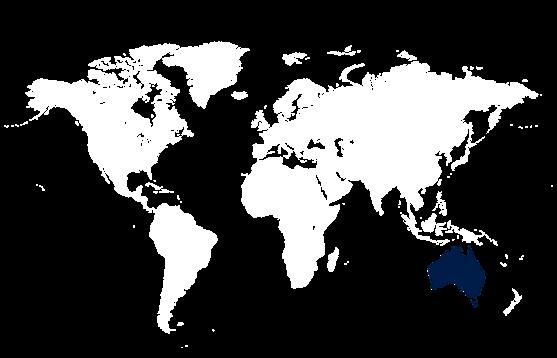
Kaurna acknowledgement
We acknowledge and pay our respects to the Kaurna people, the original custodians of the Adelaide Plains and the land on which the University of Adelaide’s campuses at North Terrace, Waite, and Roseworthy are built. We acknowledge the deep feelings of attachment and relationship of the Kaurna people to country and we respect and value their past, present and ongoing connection to the land and cultural beliefs. The University continues to develop respectful and reciprocal relationships with all Indigenous peoples in Australia, and with other Indigenous peoples throughout the world.
The University of Adelaide SA 5005 Australia enquiries future.ask.adelaide.edu.au
phone +61 8 8313 7335
web adelaide.edu.au
facebook facebook.com/uniofadelaide
snapchat snapchat.com/add/uniofadelaide instagram instagram.com/uniofadelaide
wechat UniversityOfAdelaide weibo weibo.com/uniadelaide
international.adelaide.edu.au/admissions/ find-an-international-study-agency
Disclaimer The information in this publication is current as at the date of printing and is subject to change. You can find updated information on our website at adelaide.edu.au The University of Adelaide assumes no responsibility for the accuracy of information provided by third parties.
© The University of Adelaide February 2024. Job no. 7156
CRICOS Provider No. 00123M
Australian University Provider No. PRV12105

Please visit our website: international.adelaide.edu.au